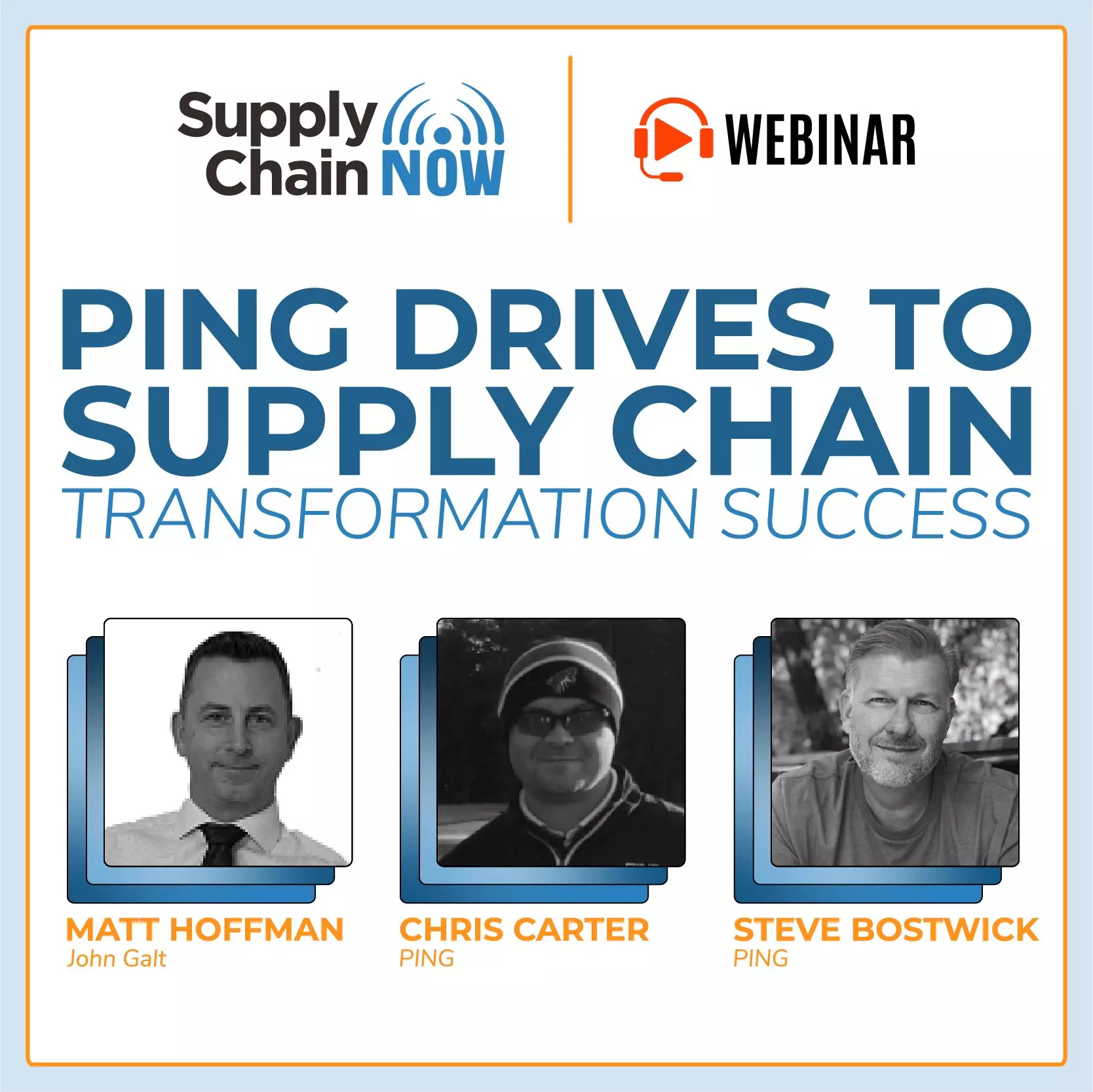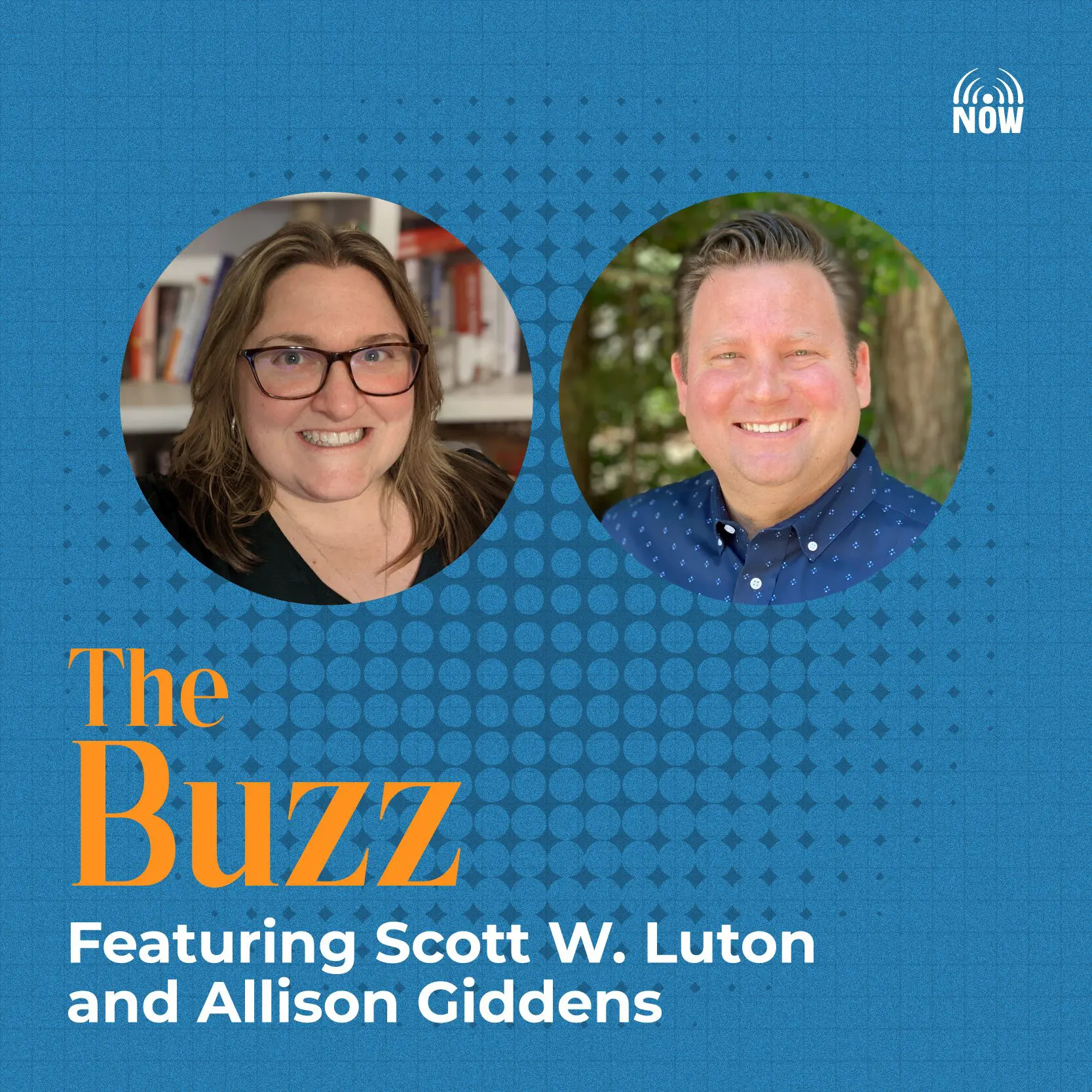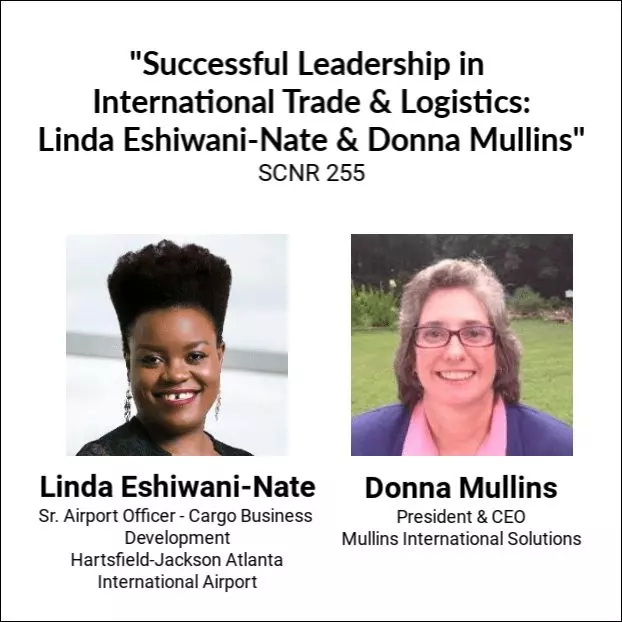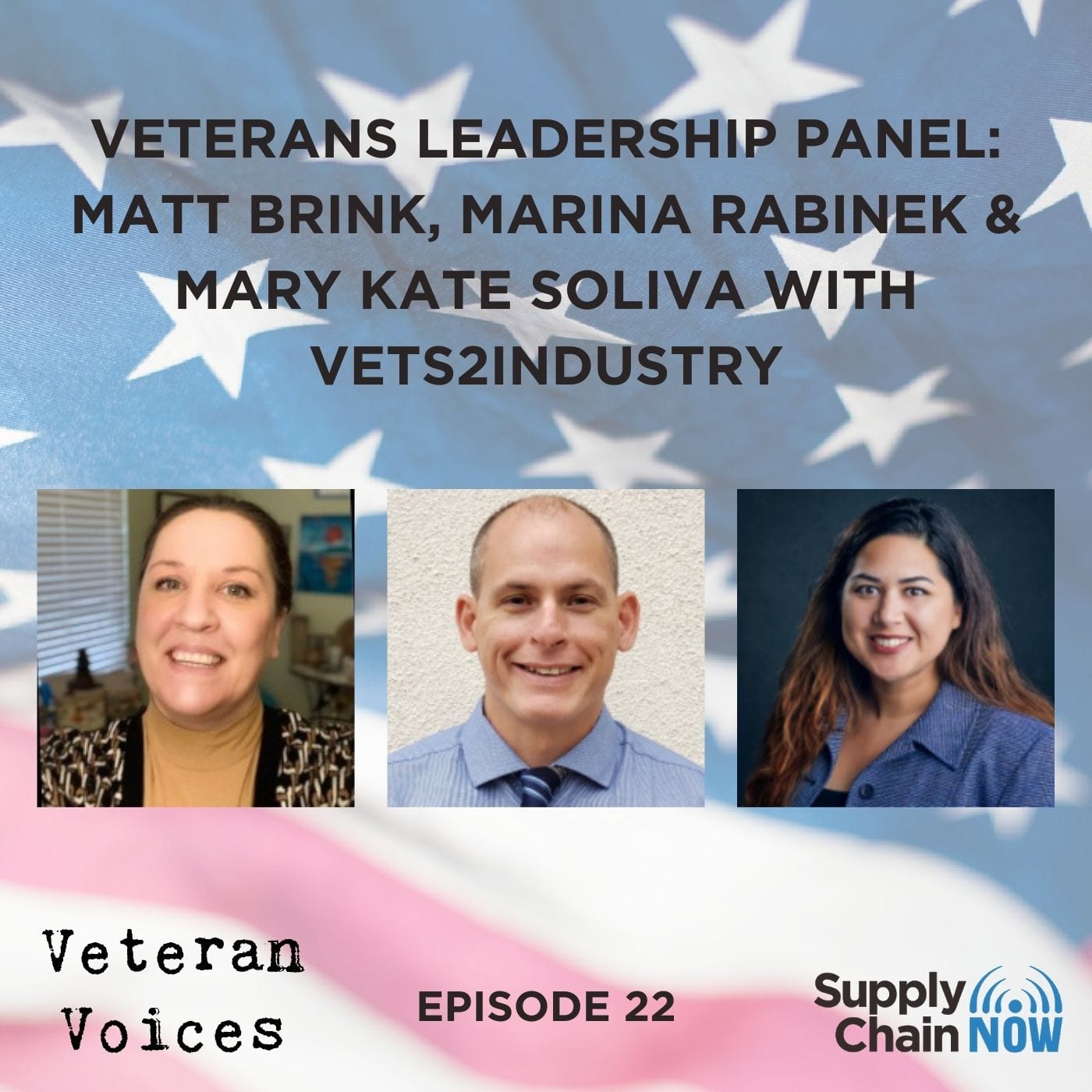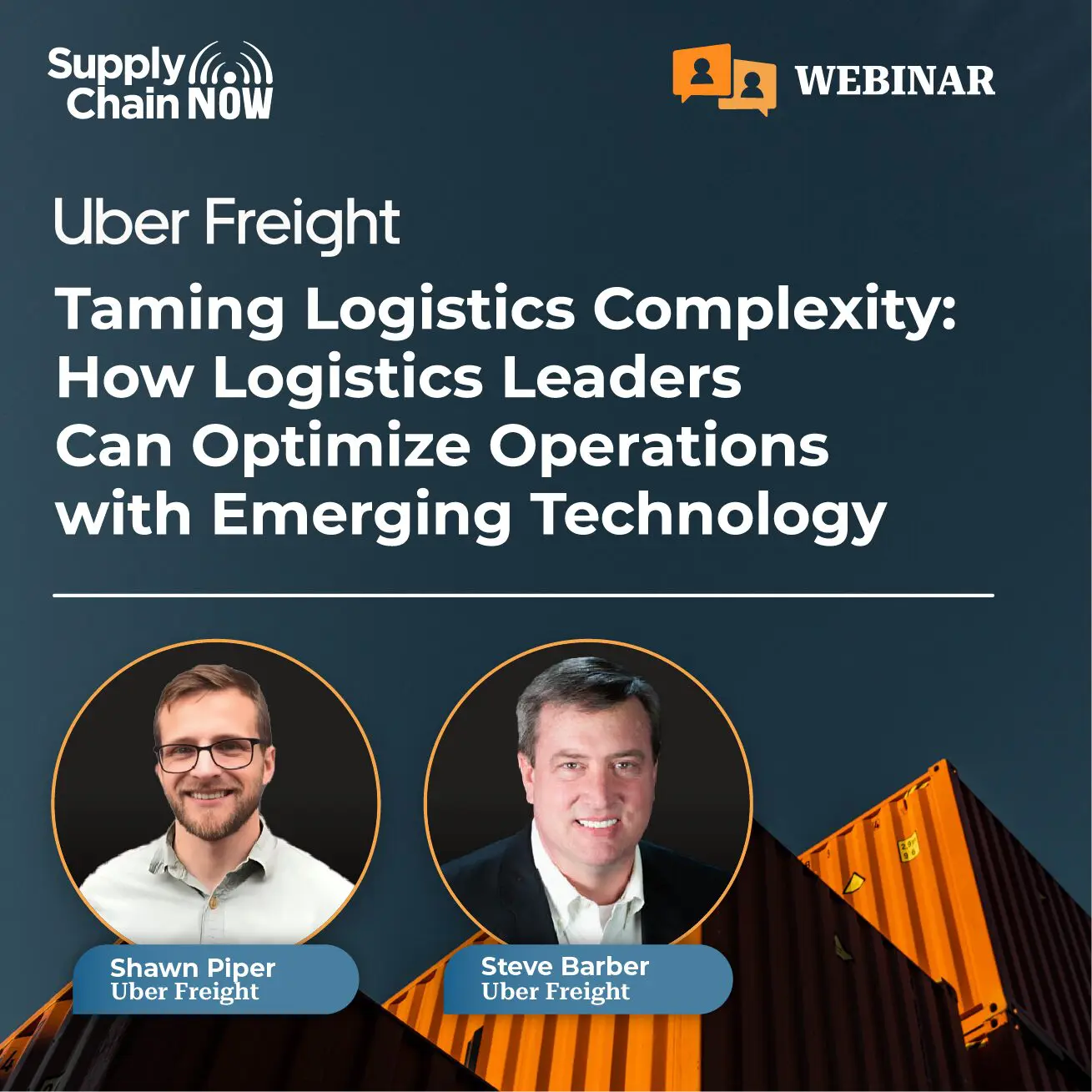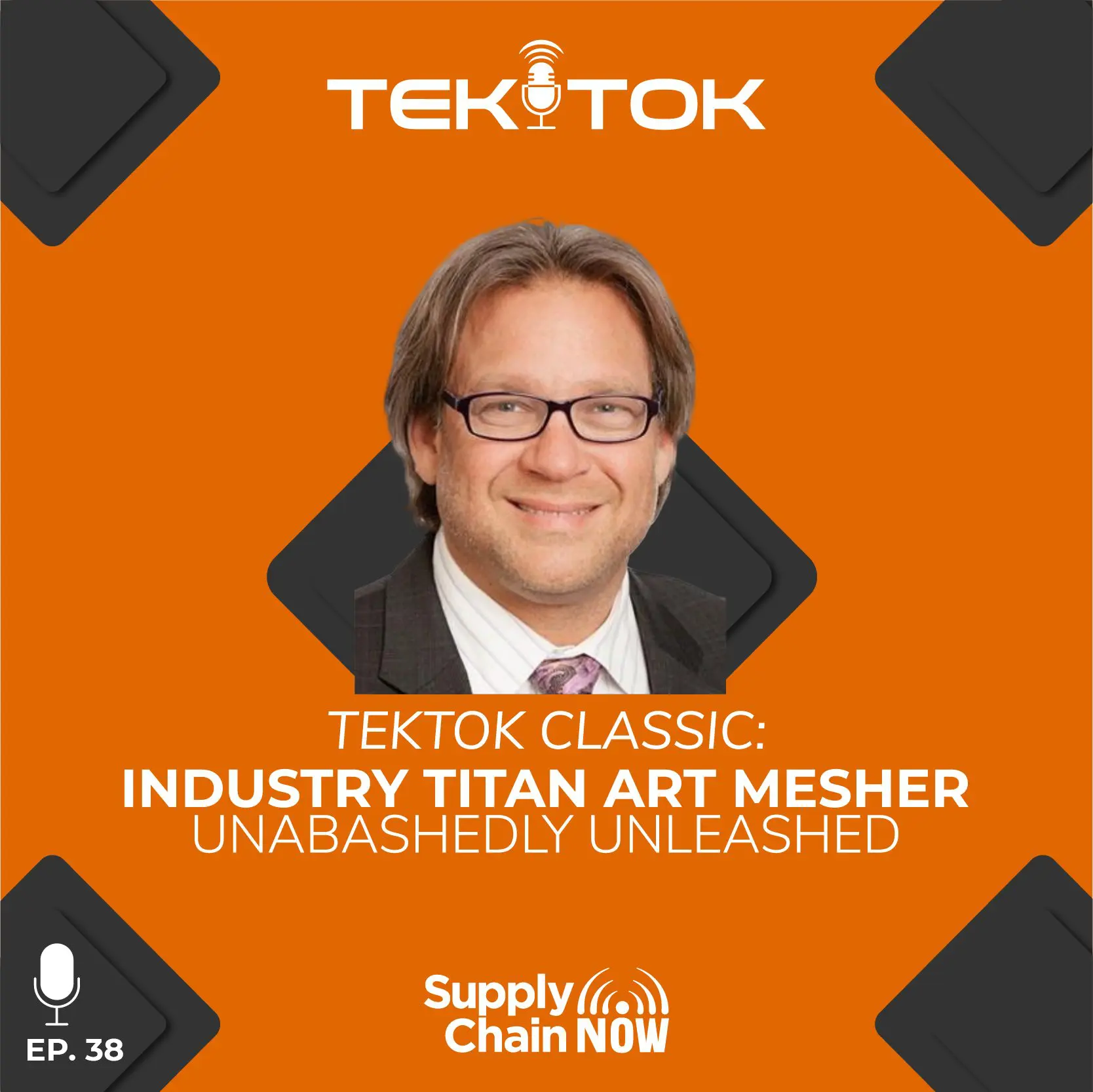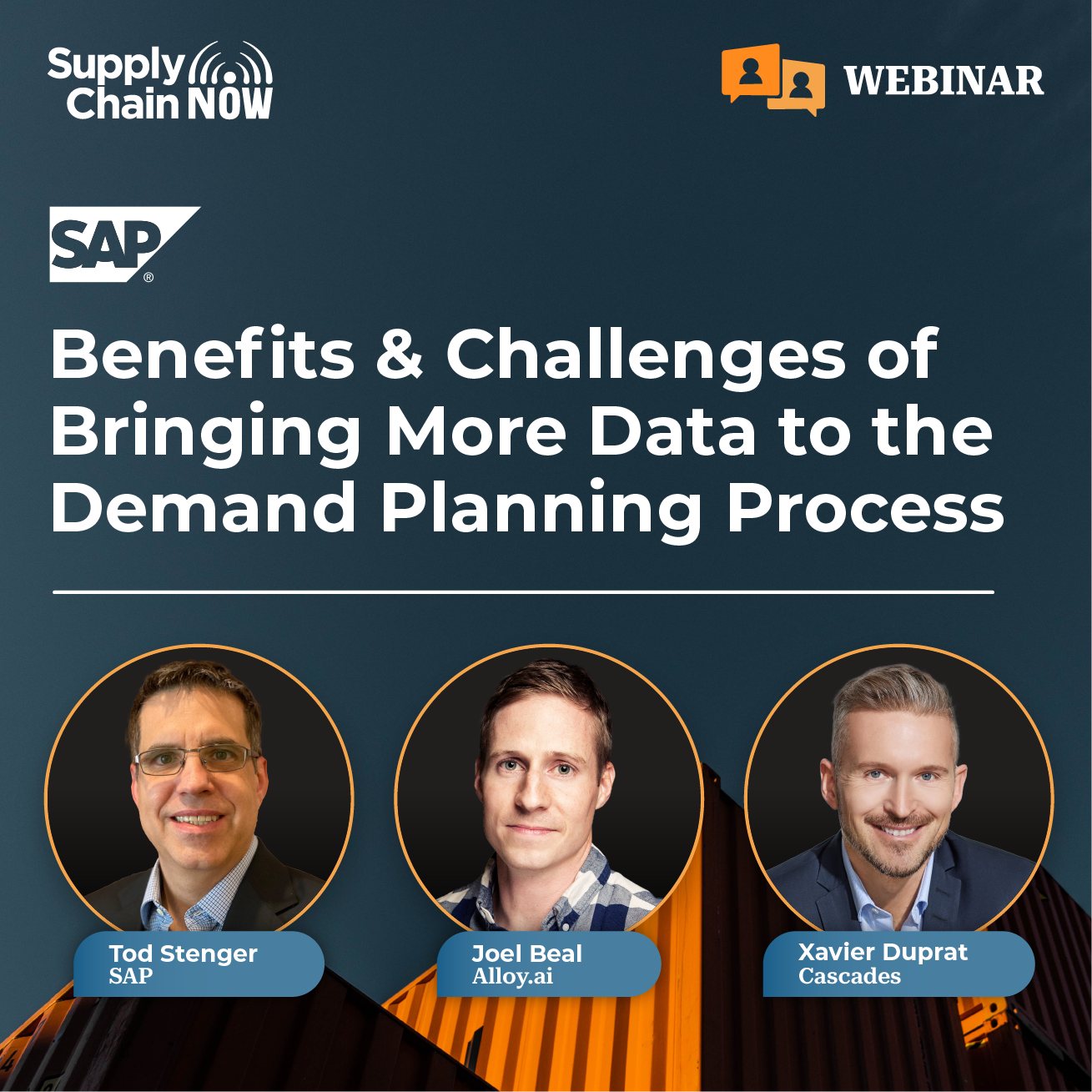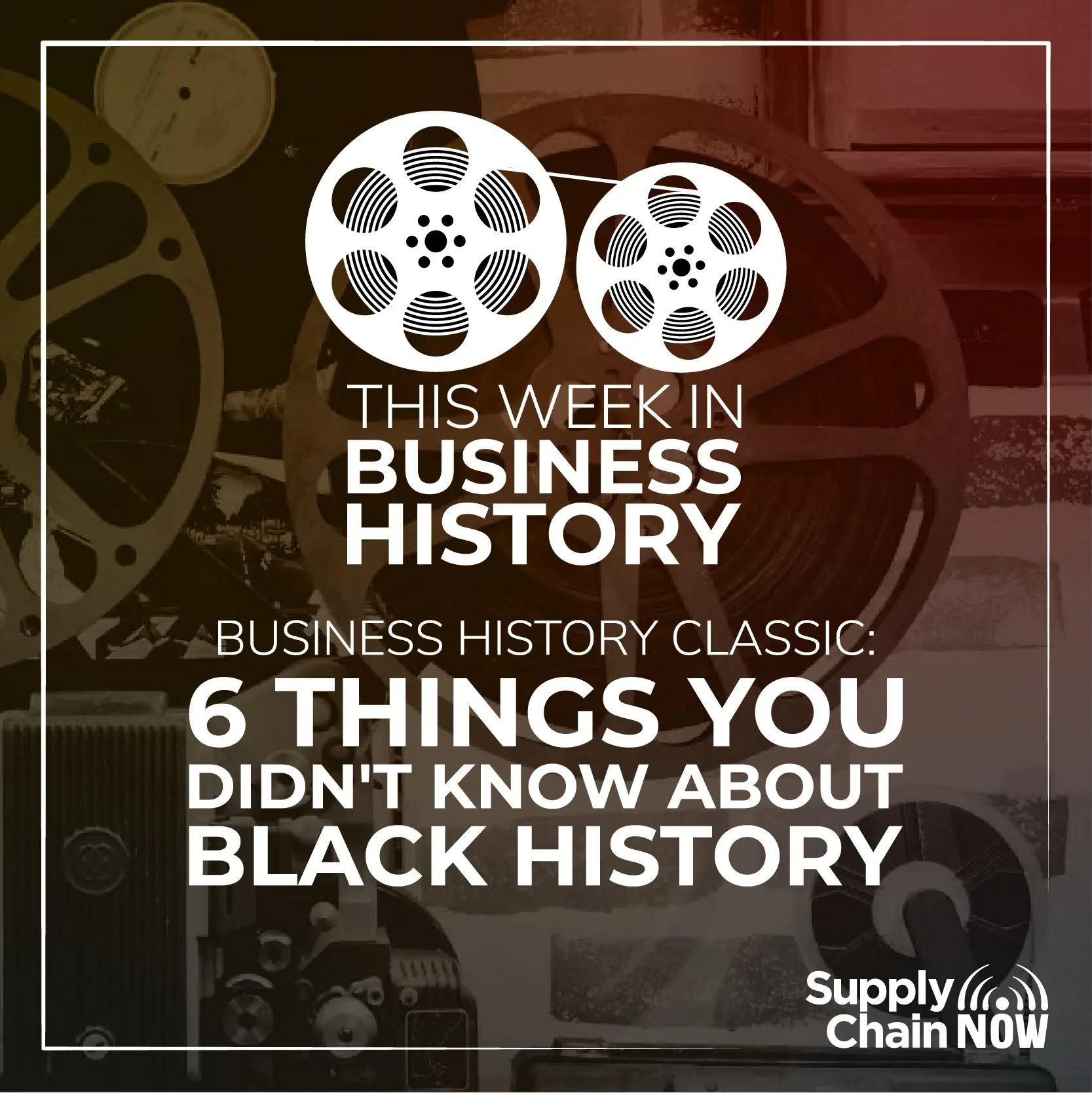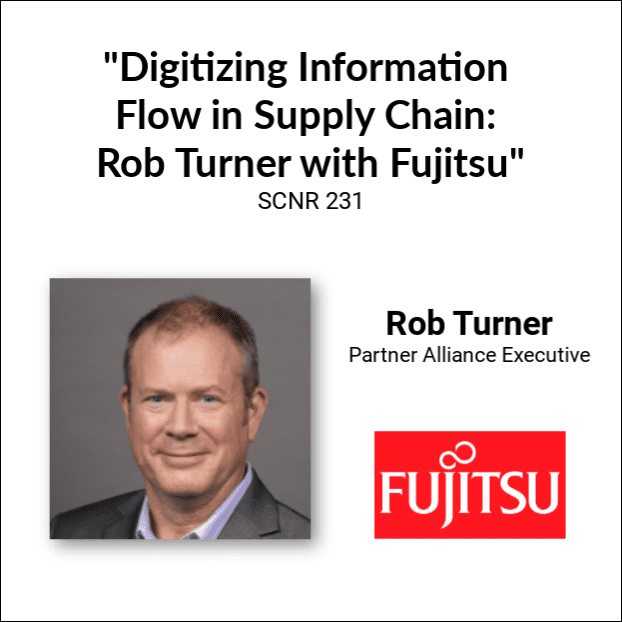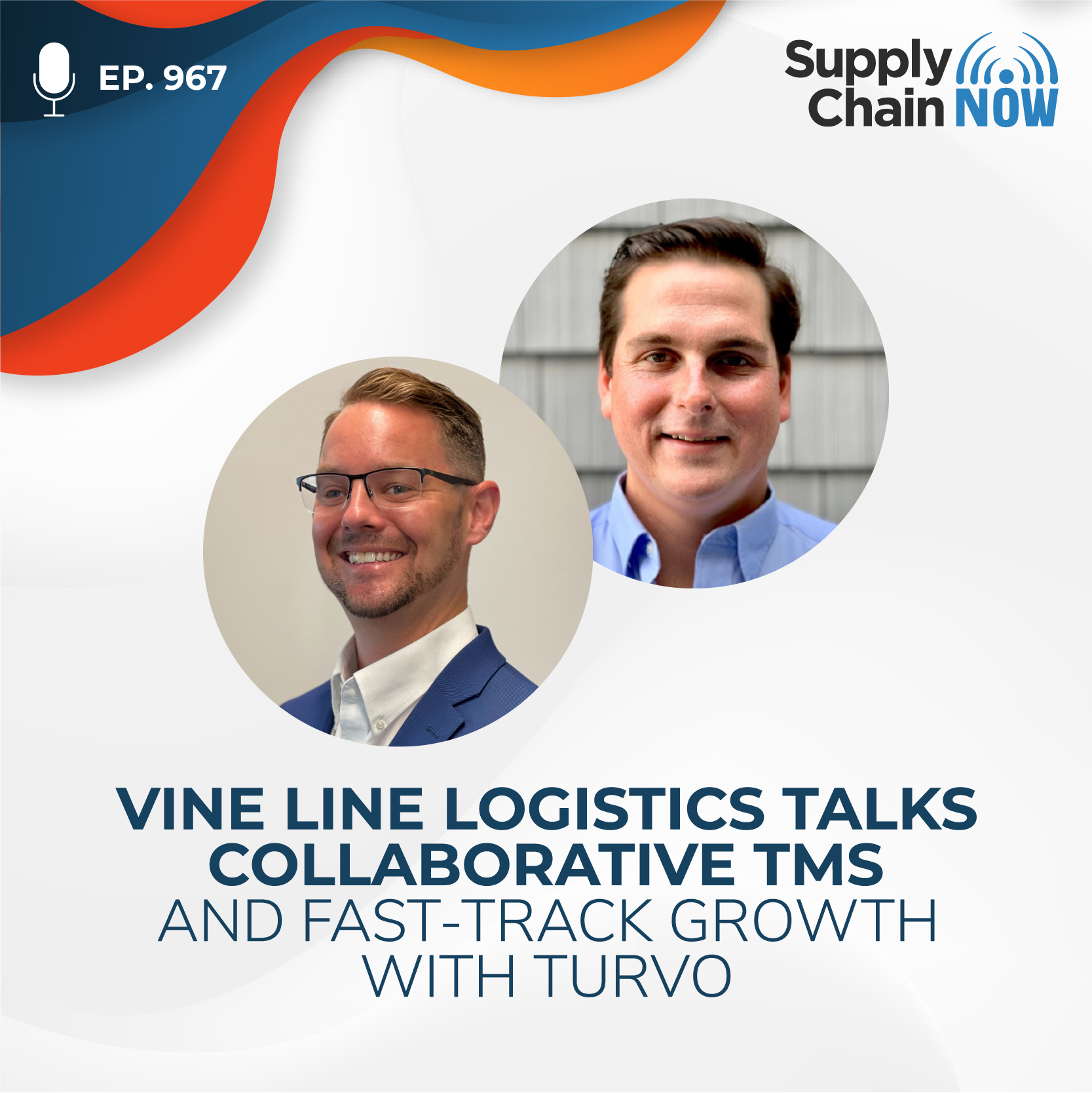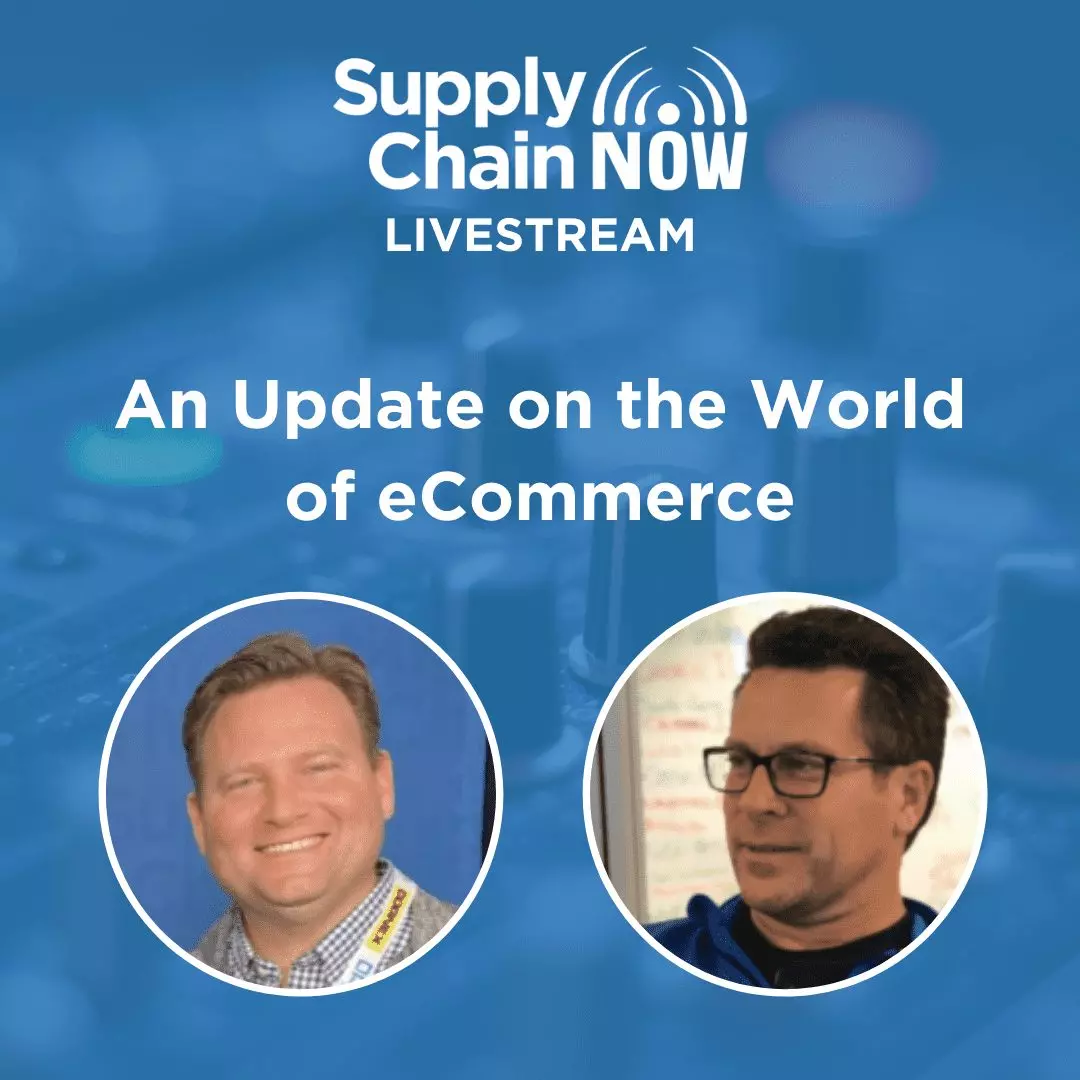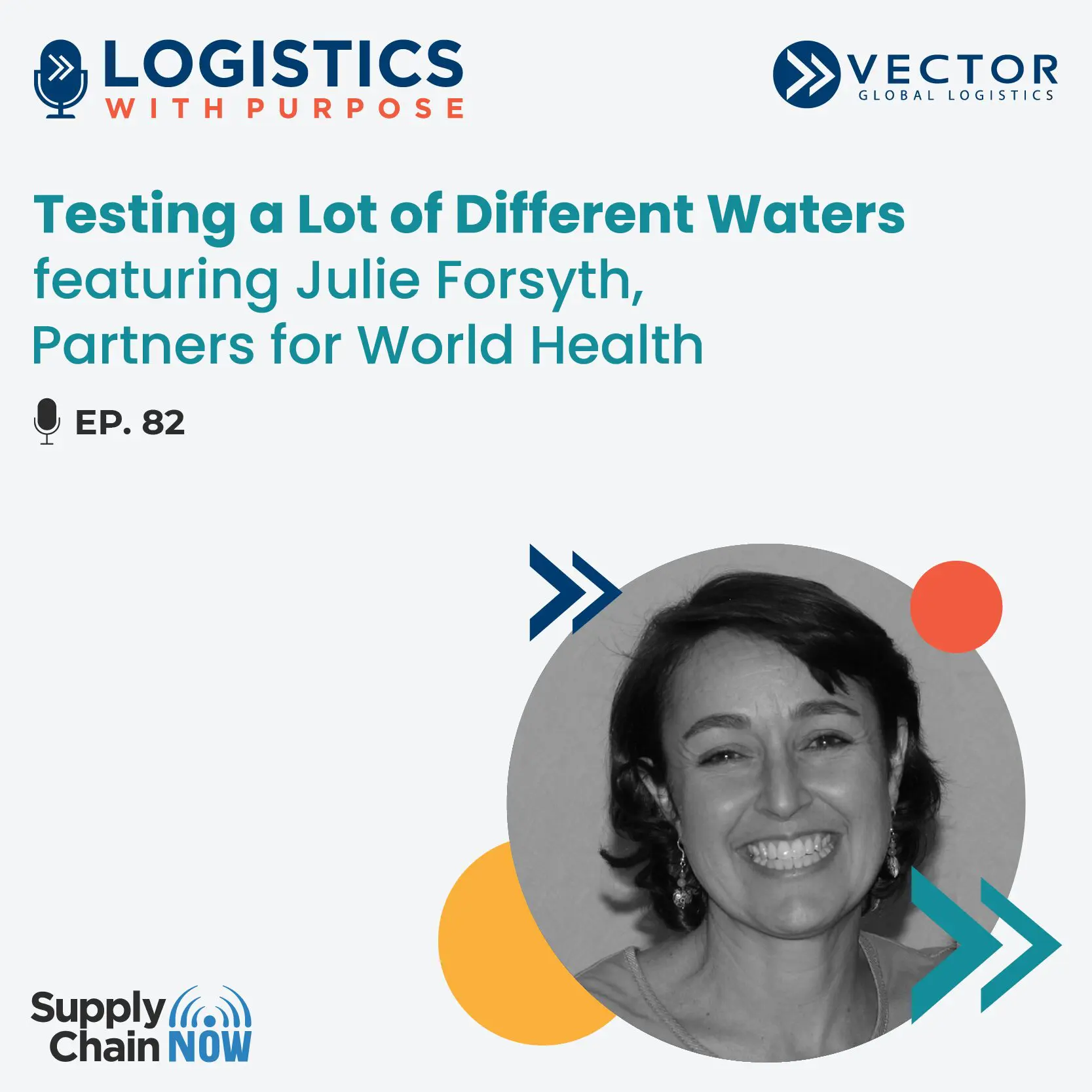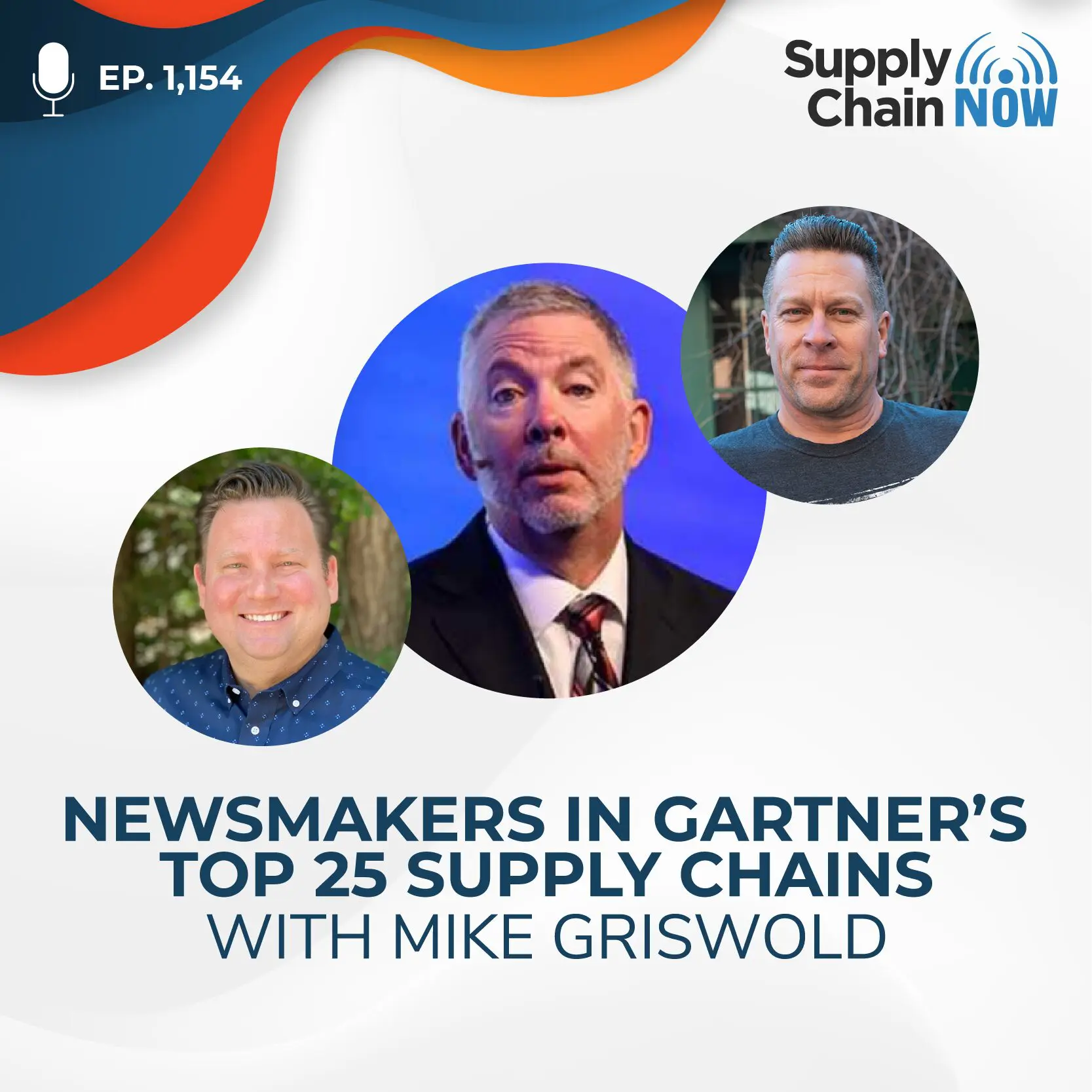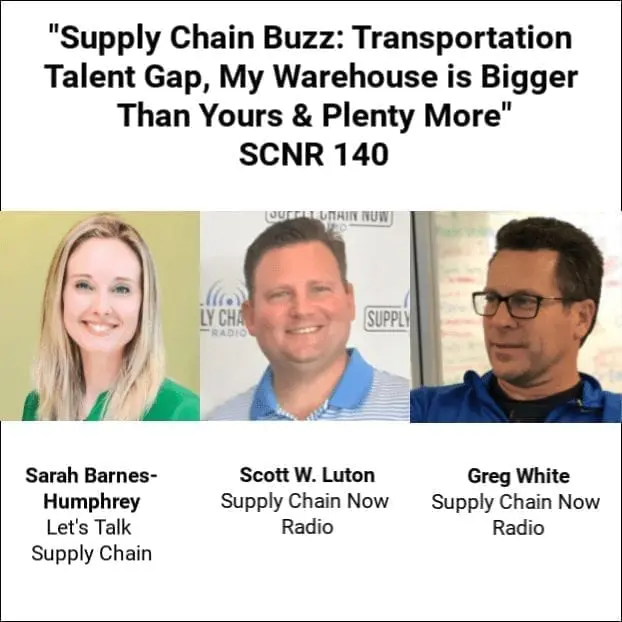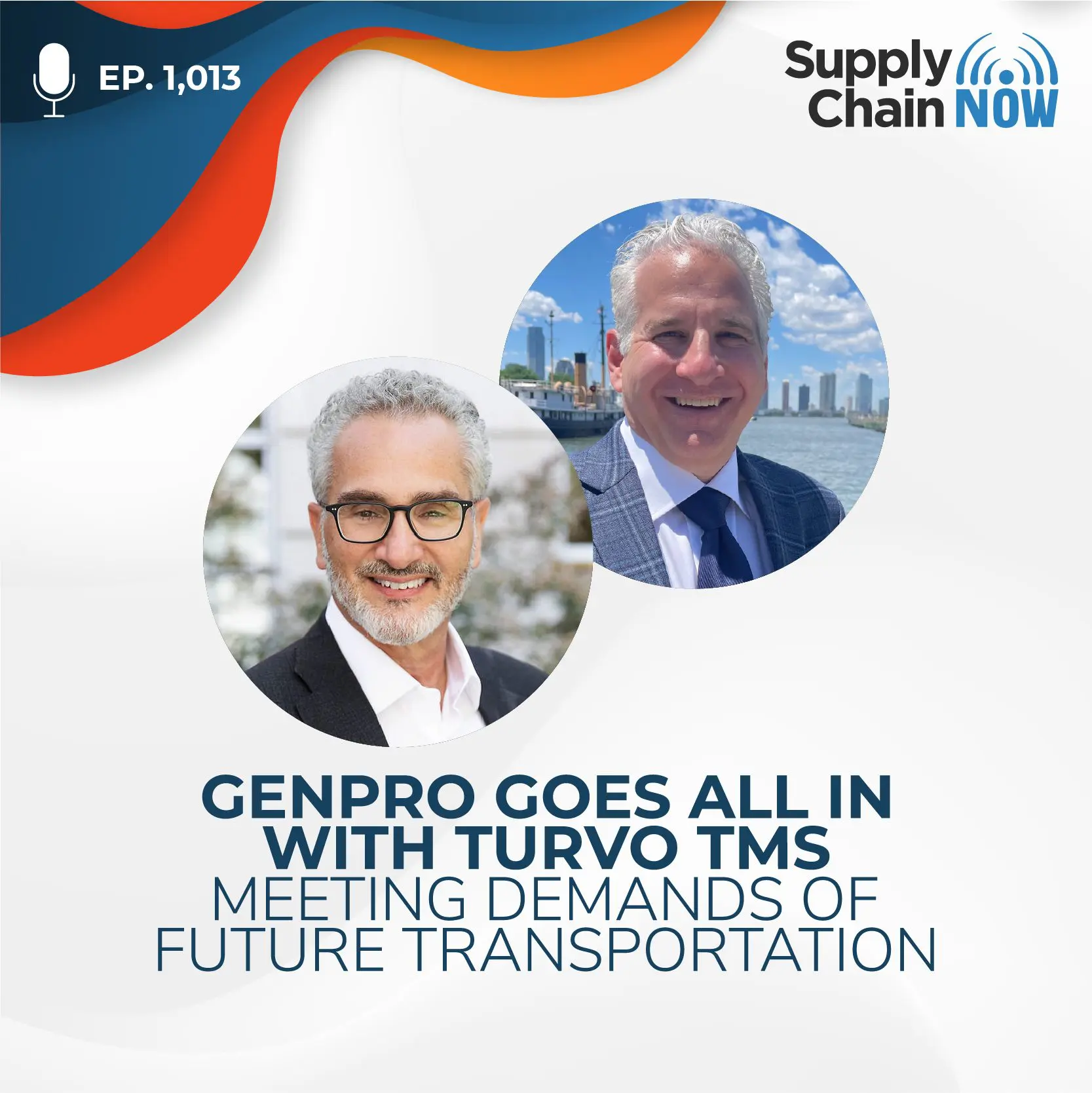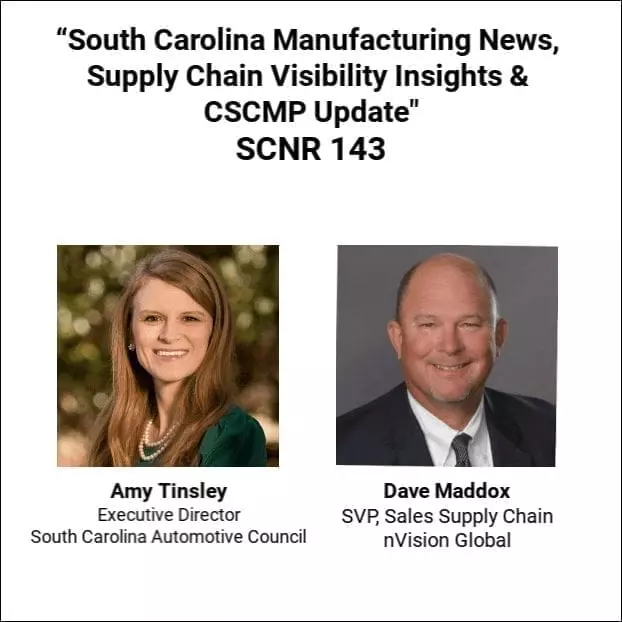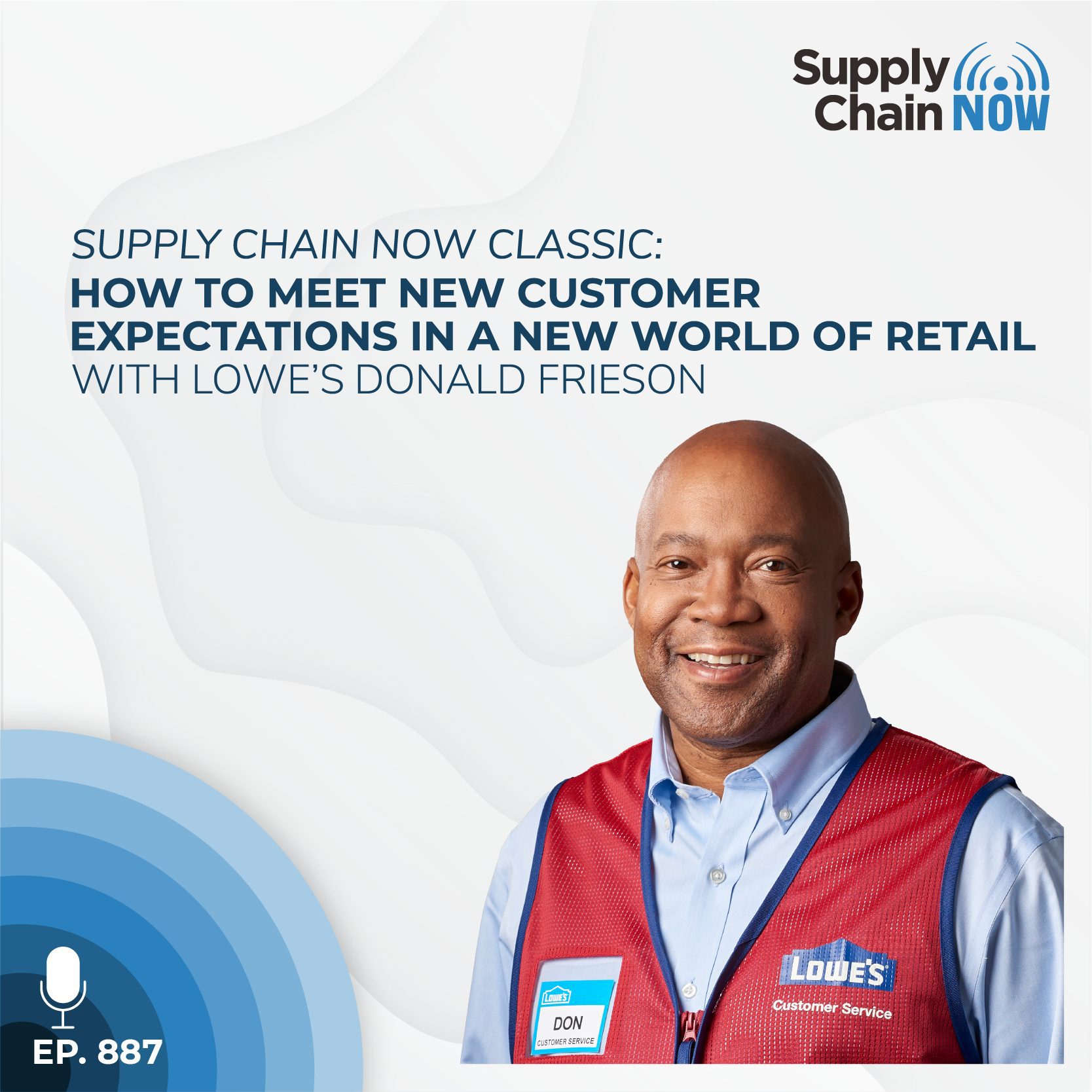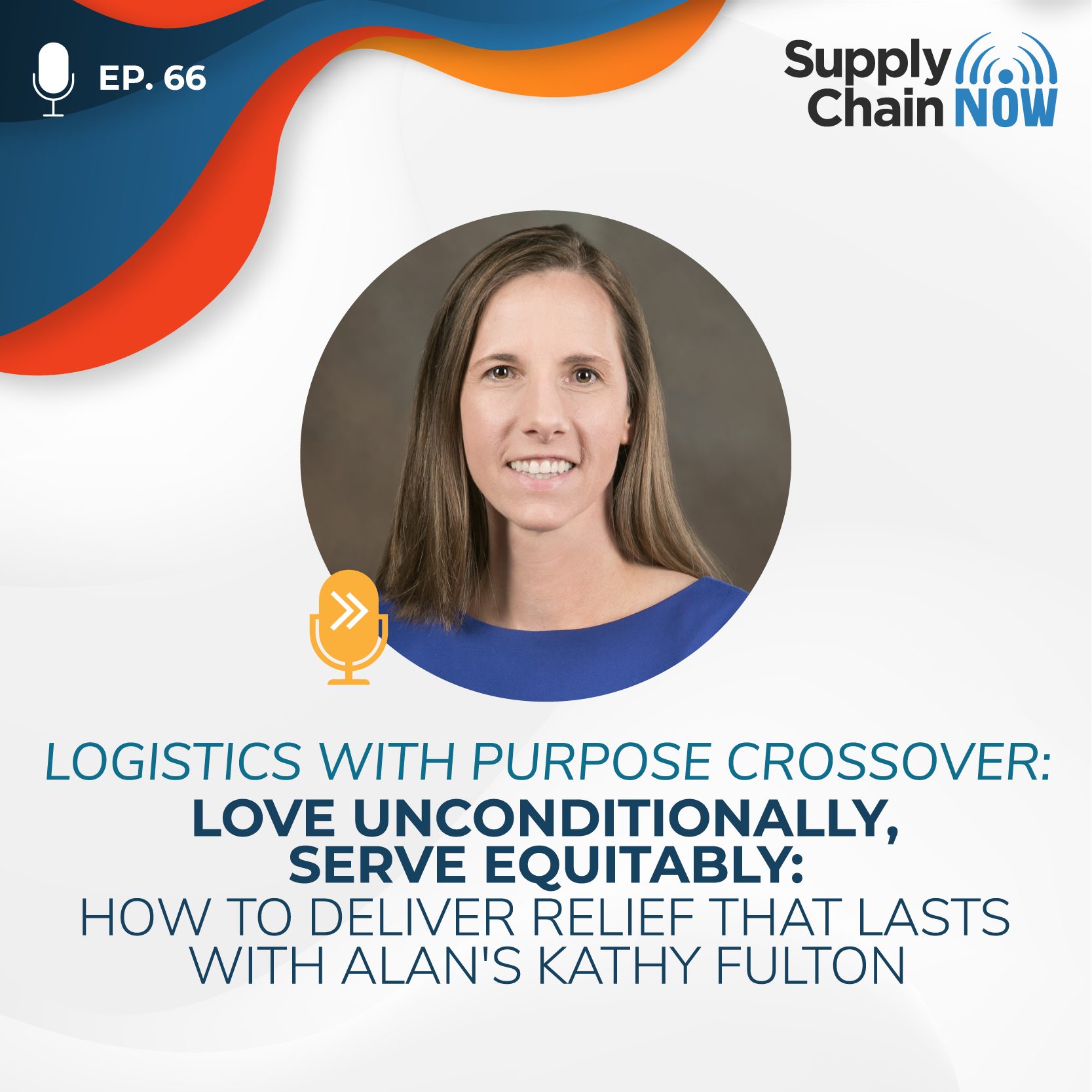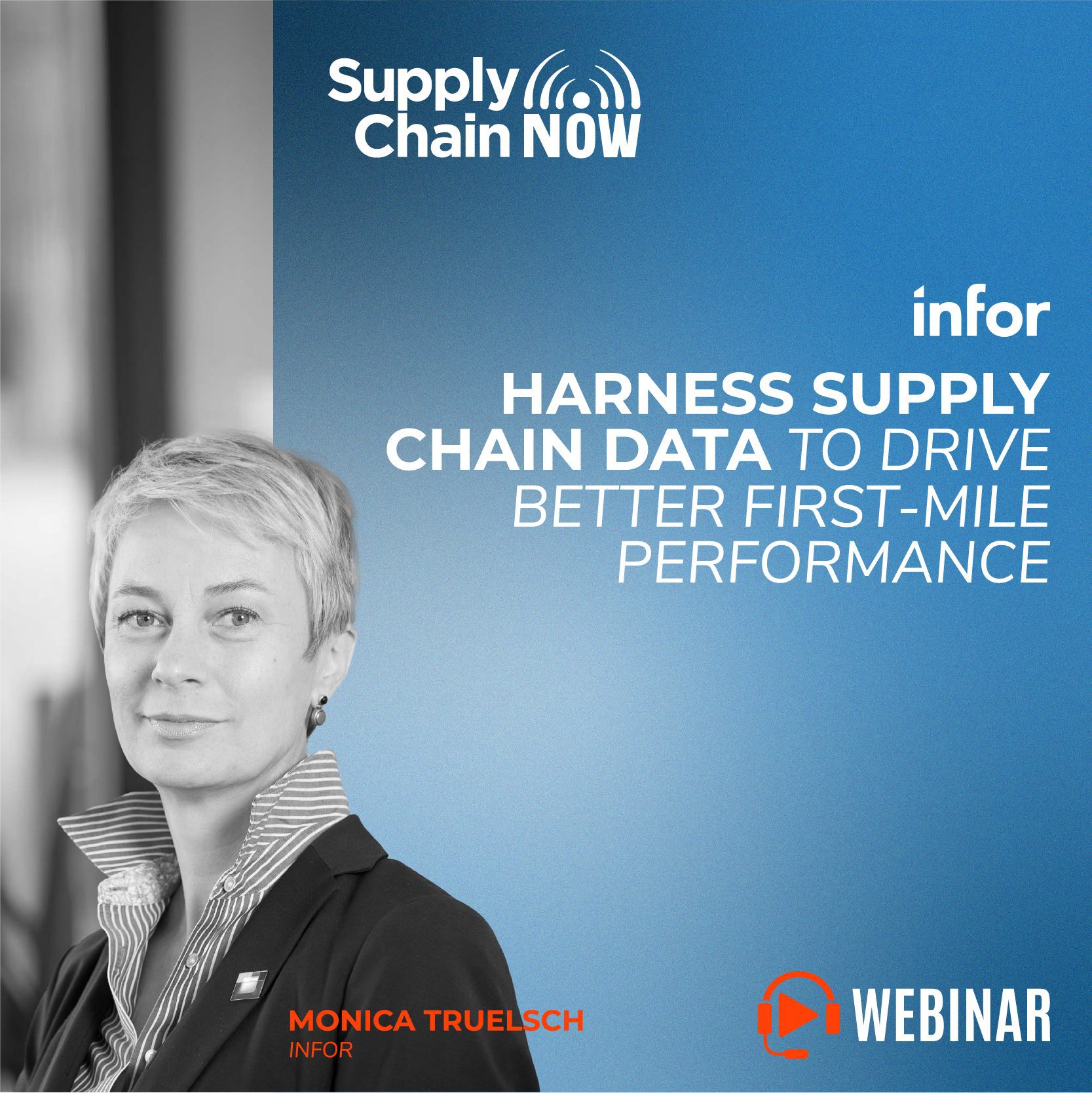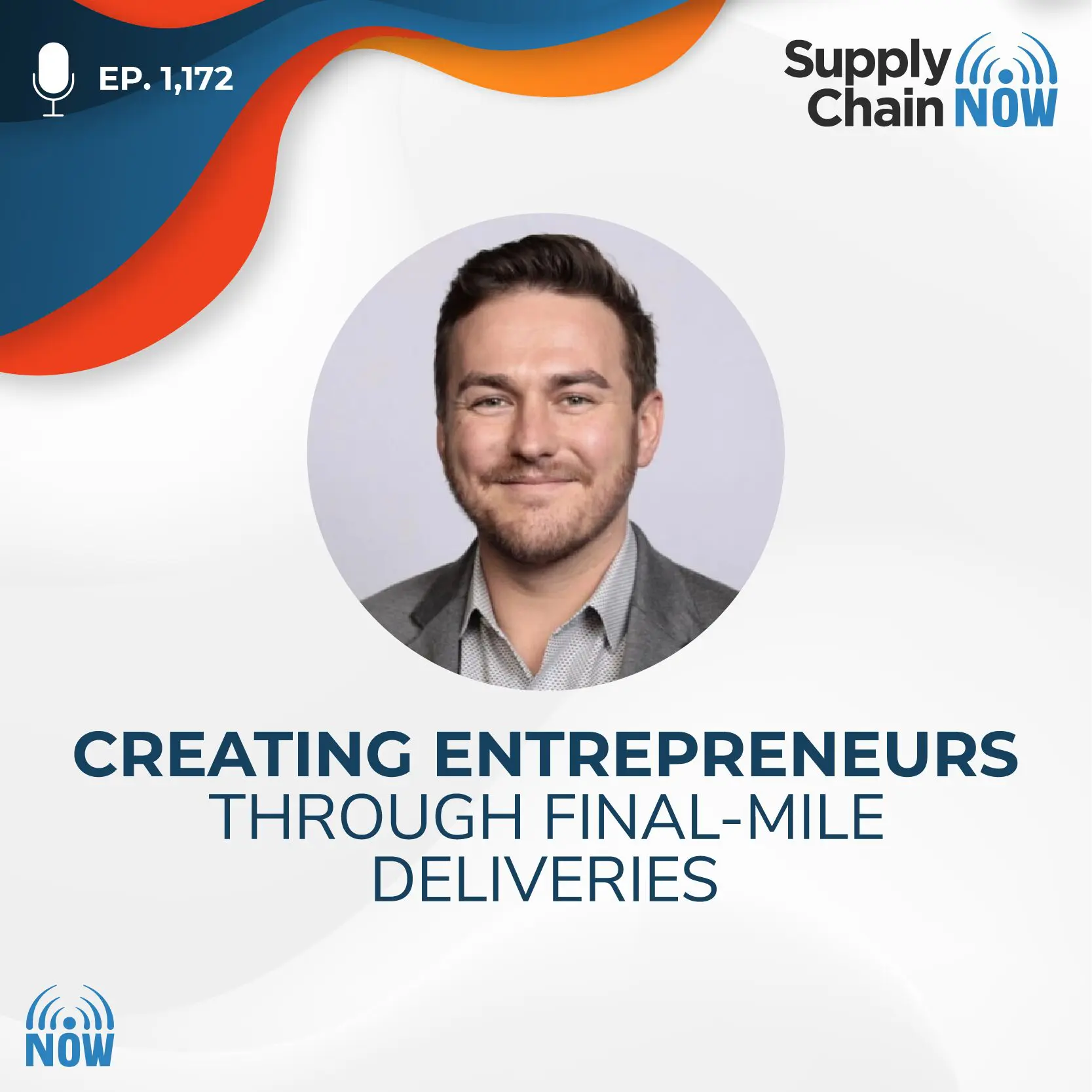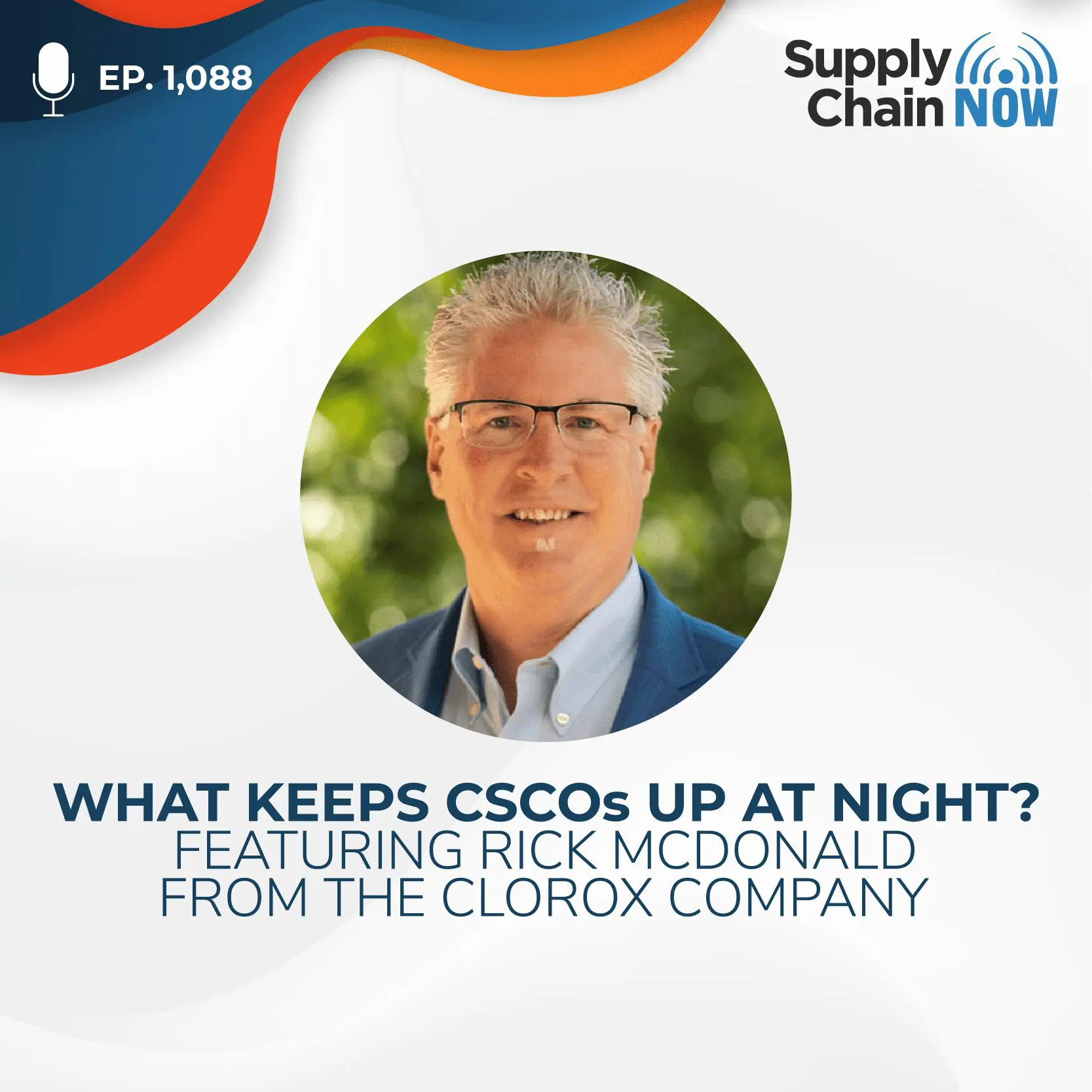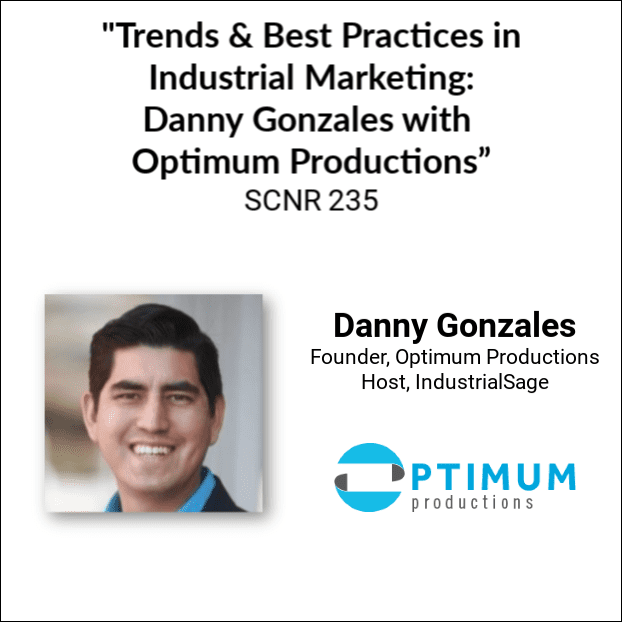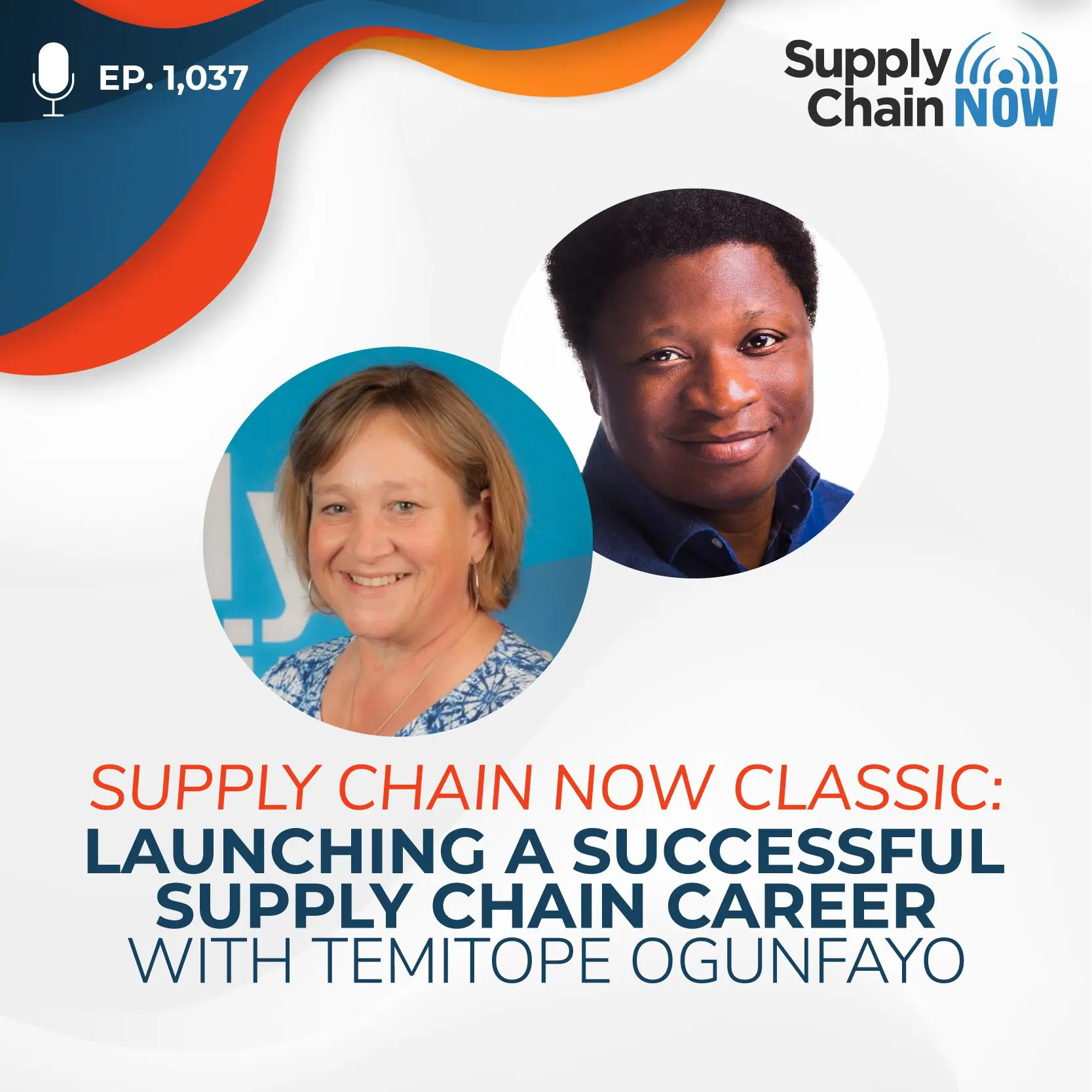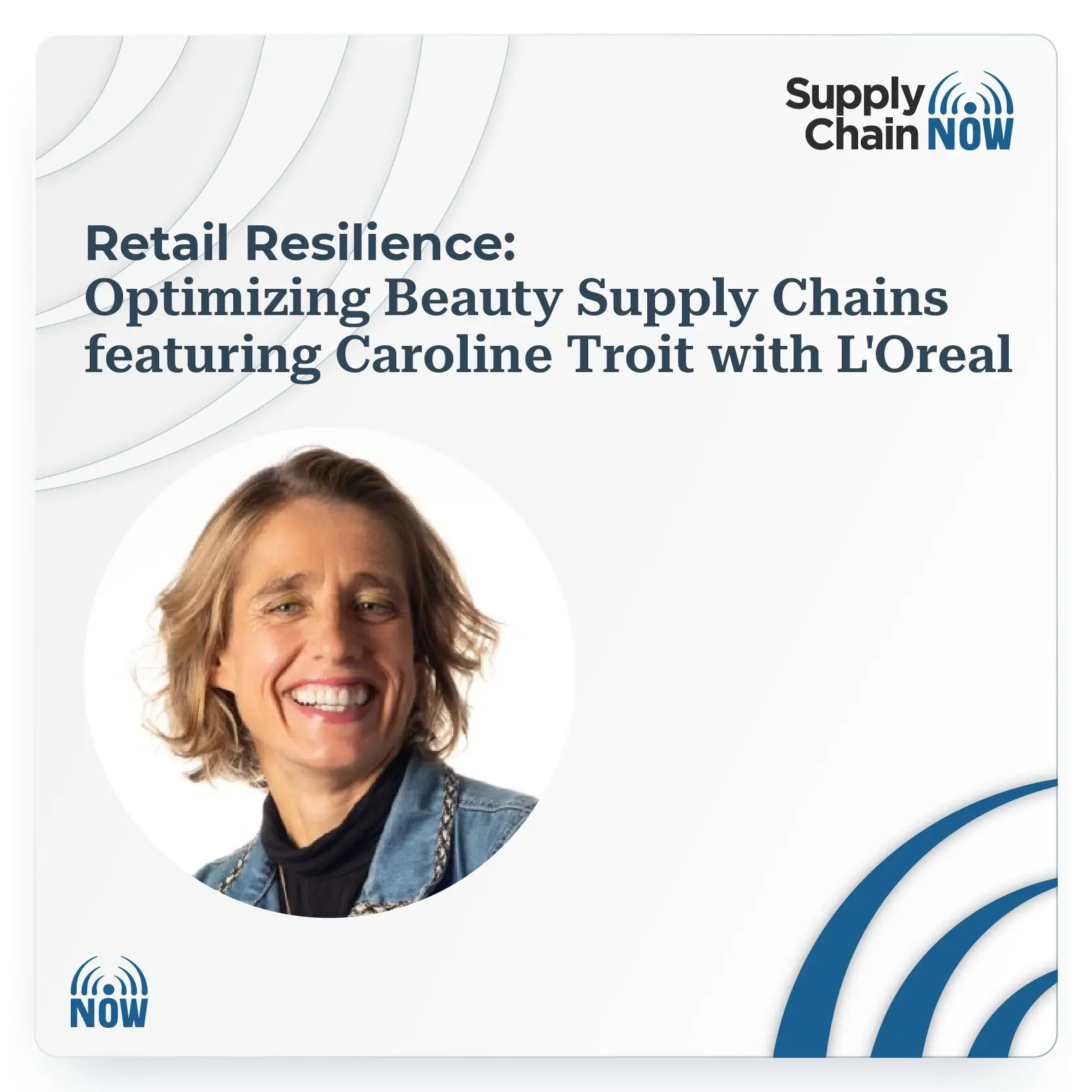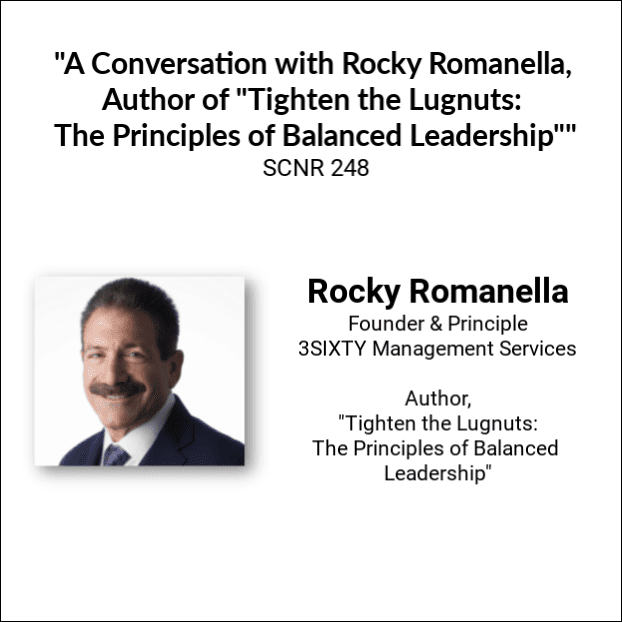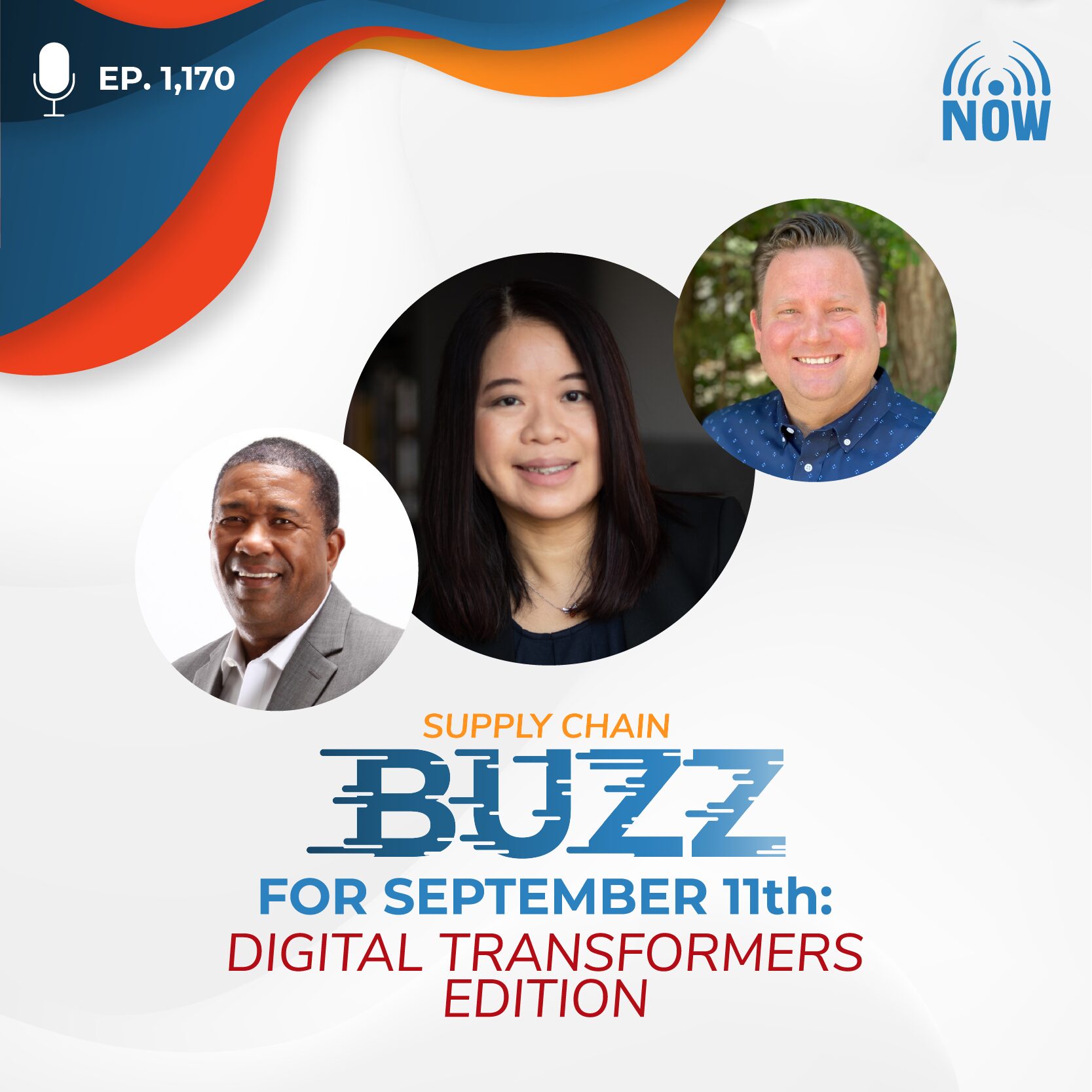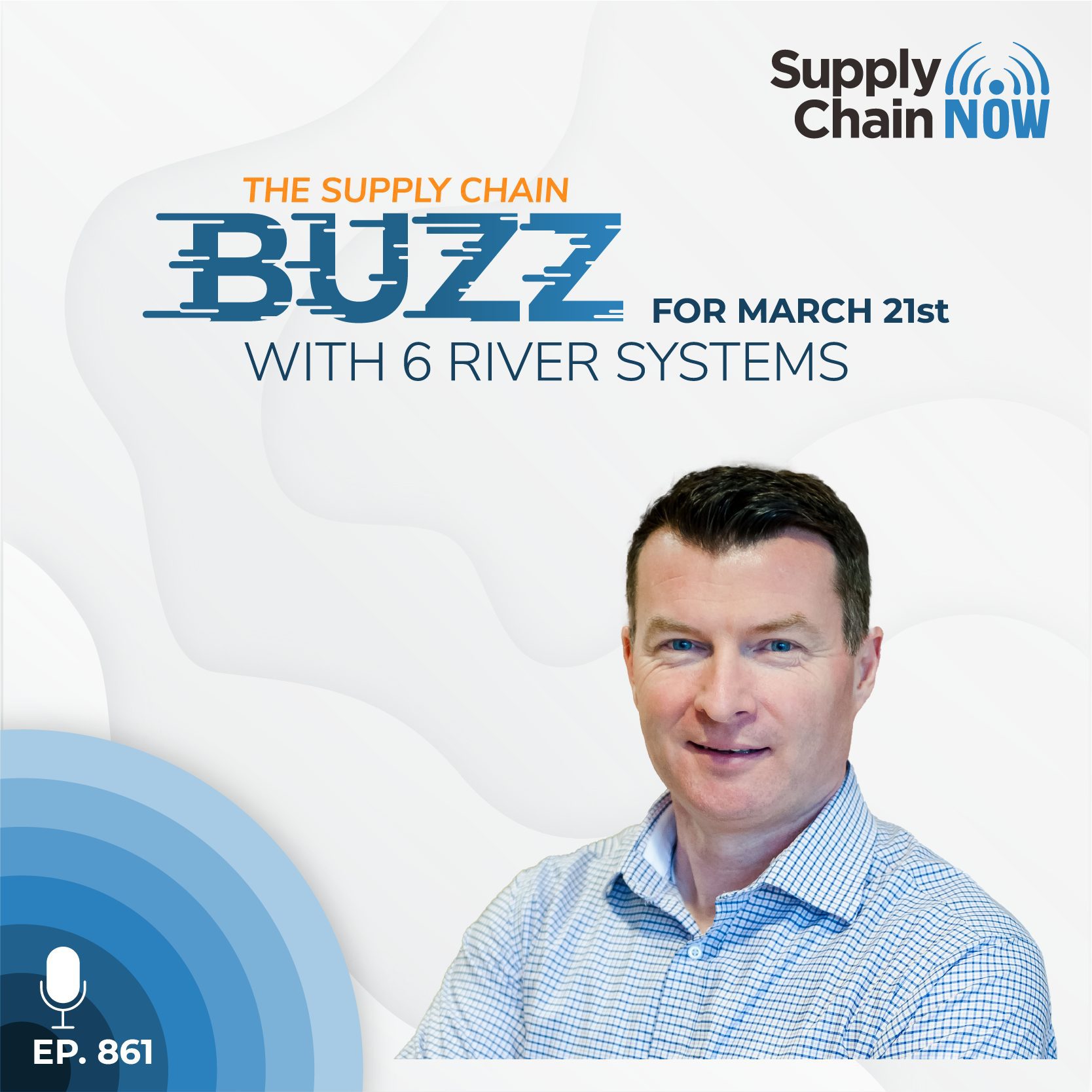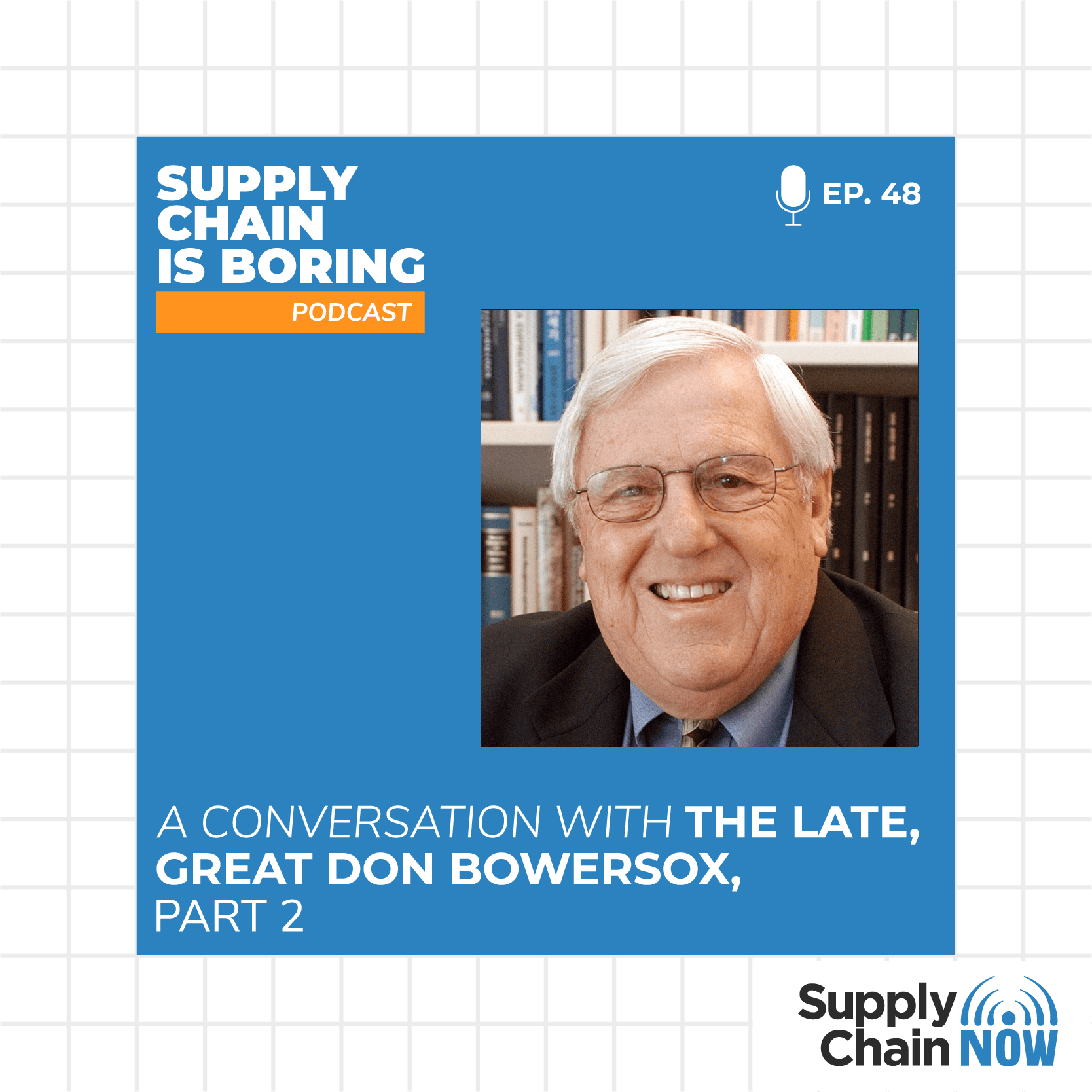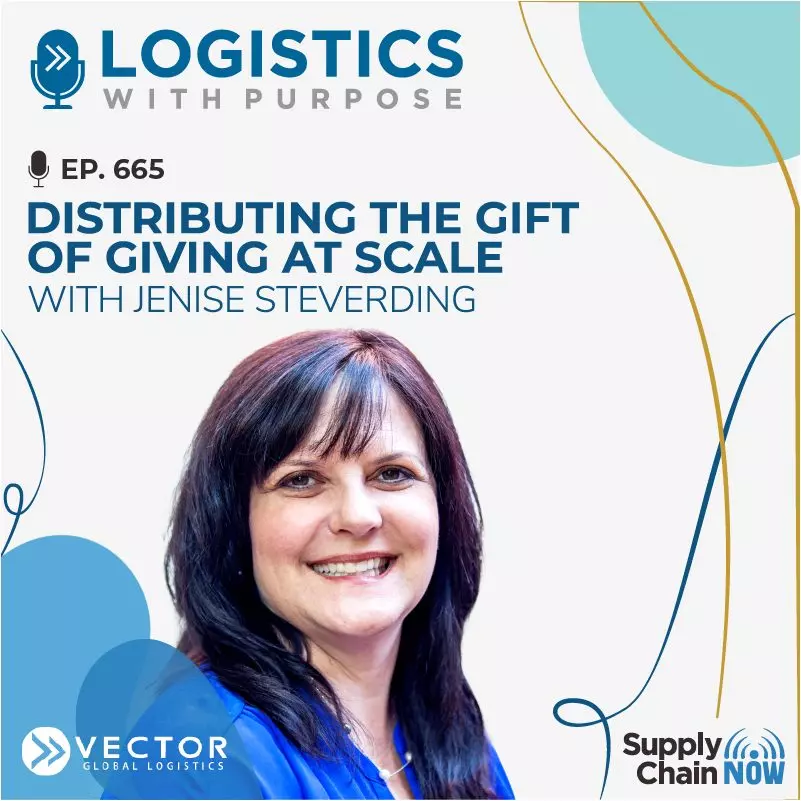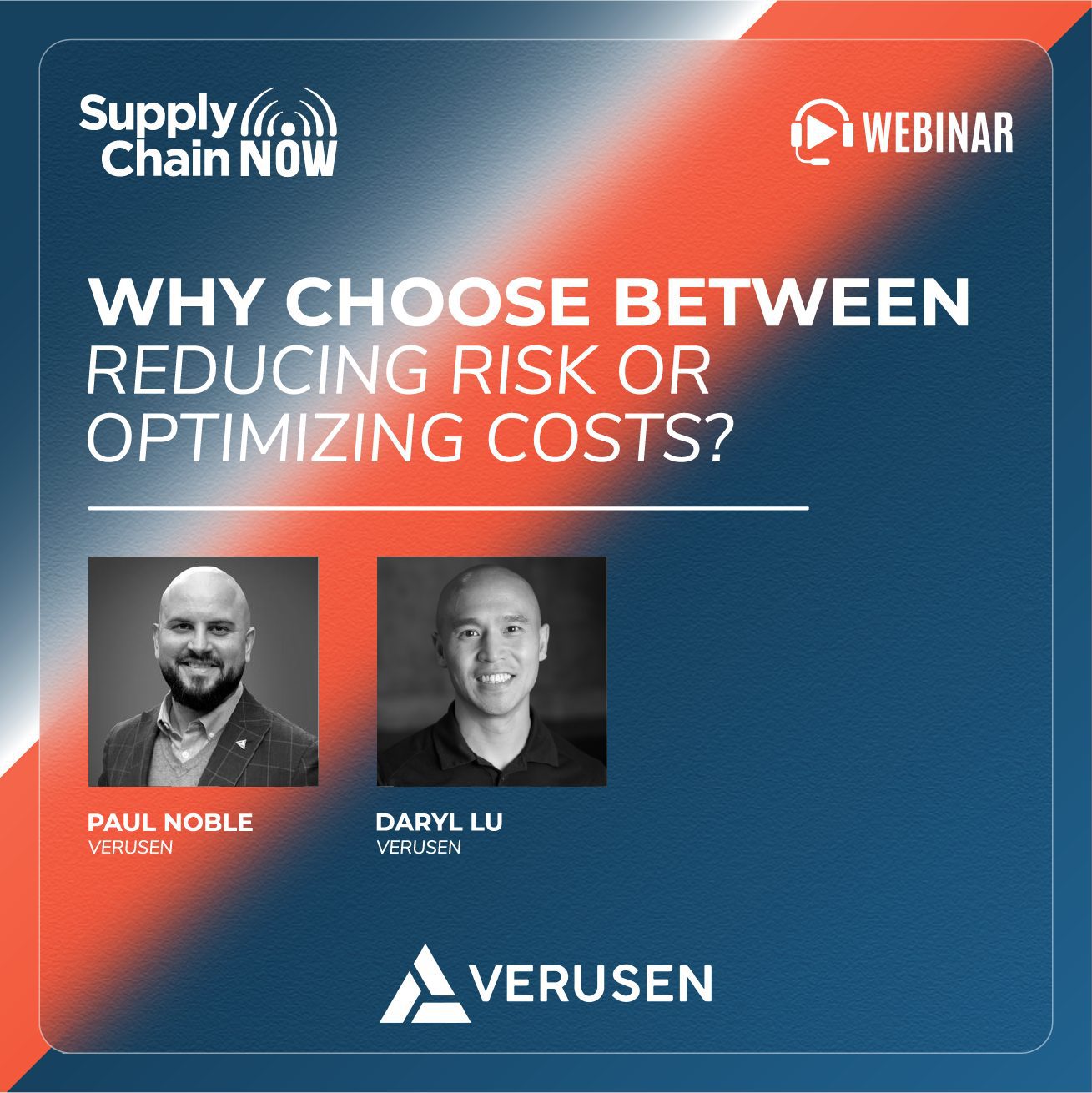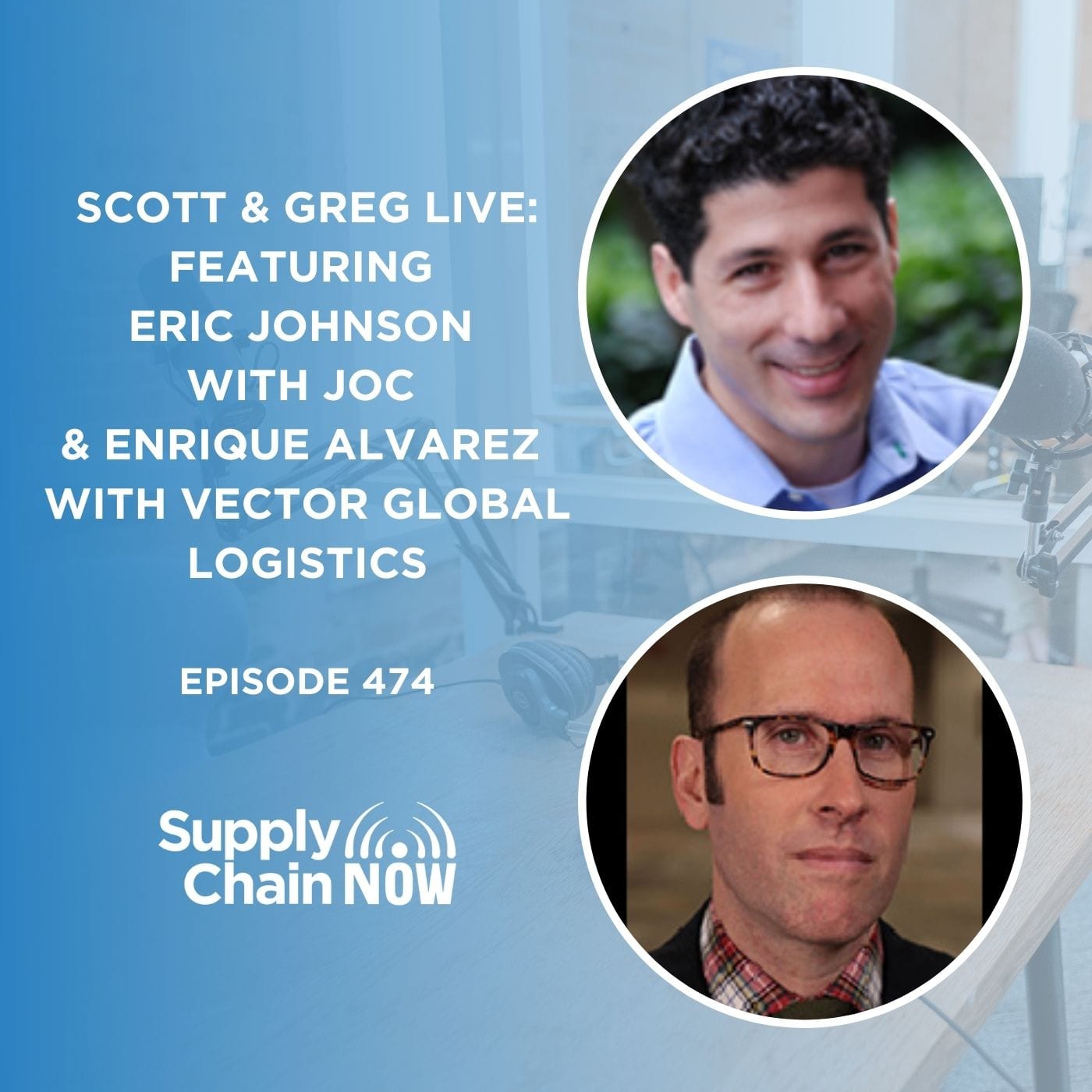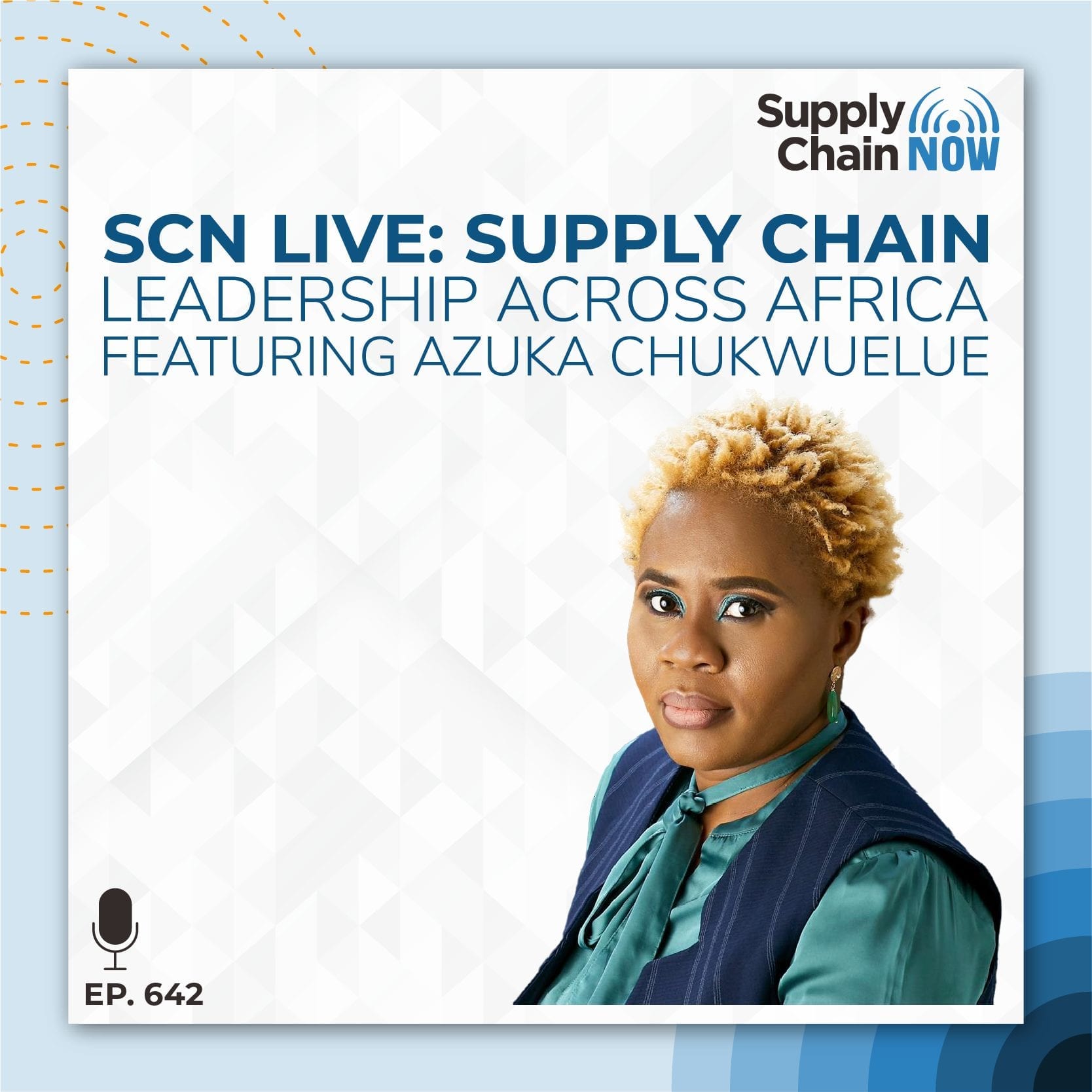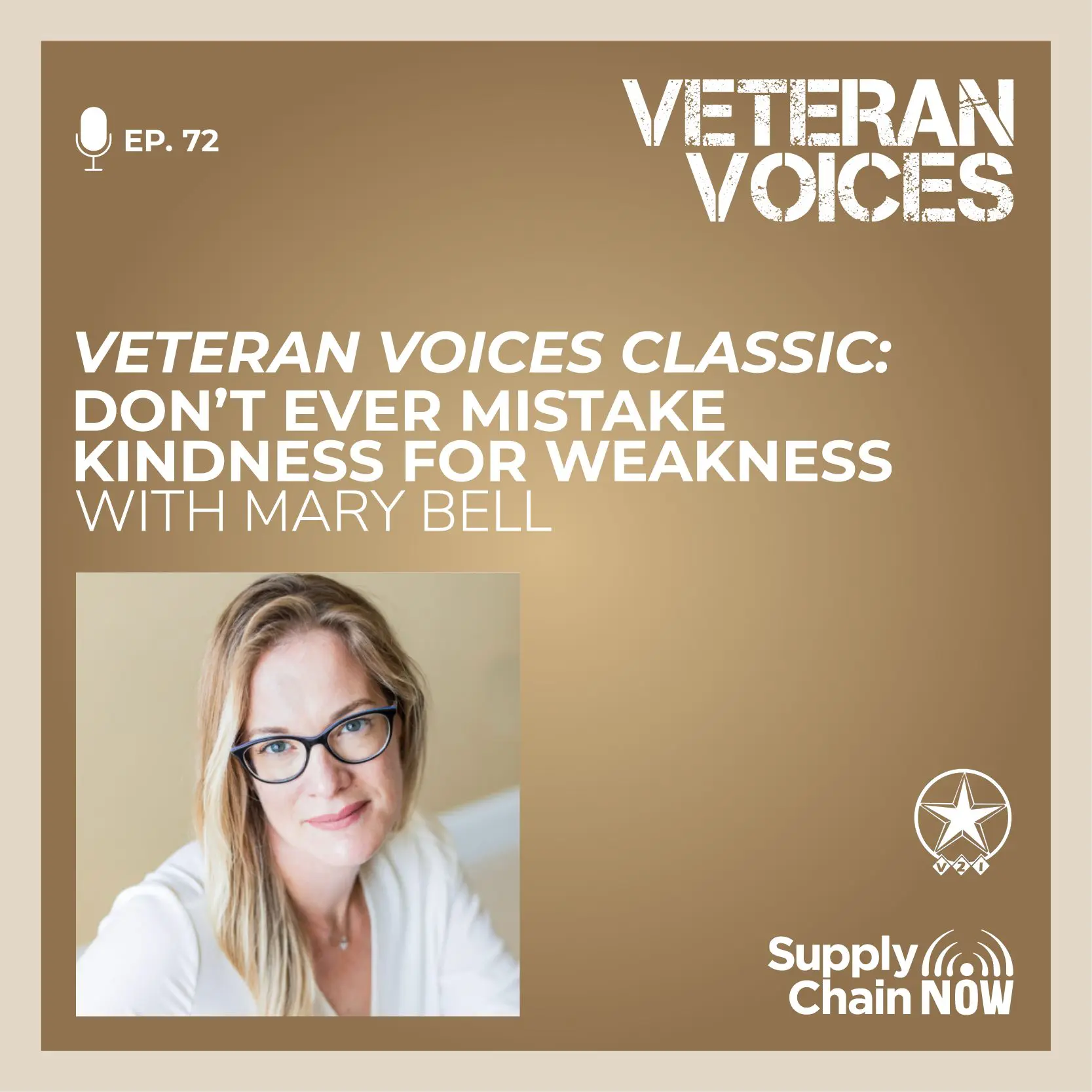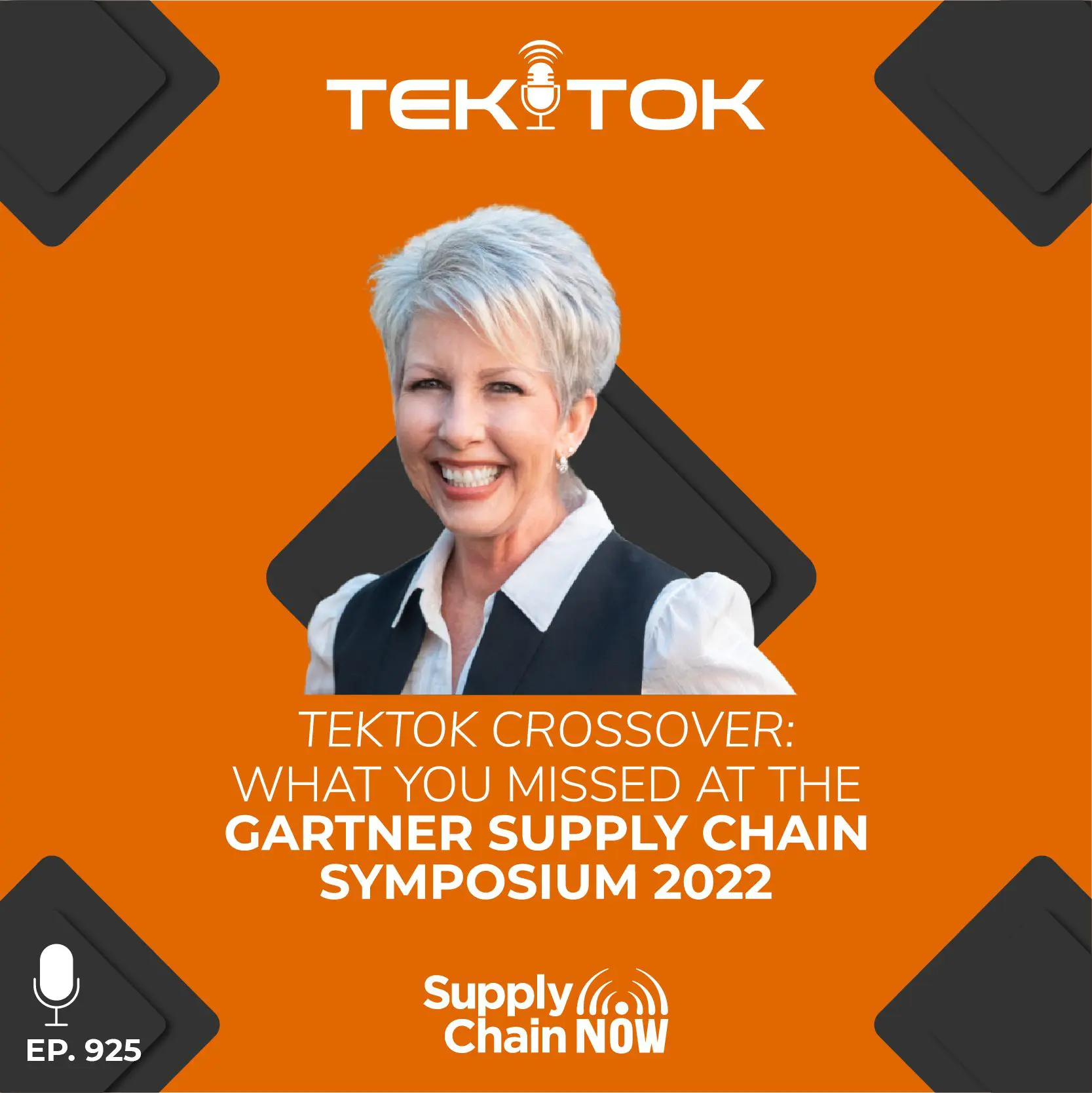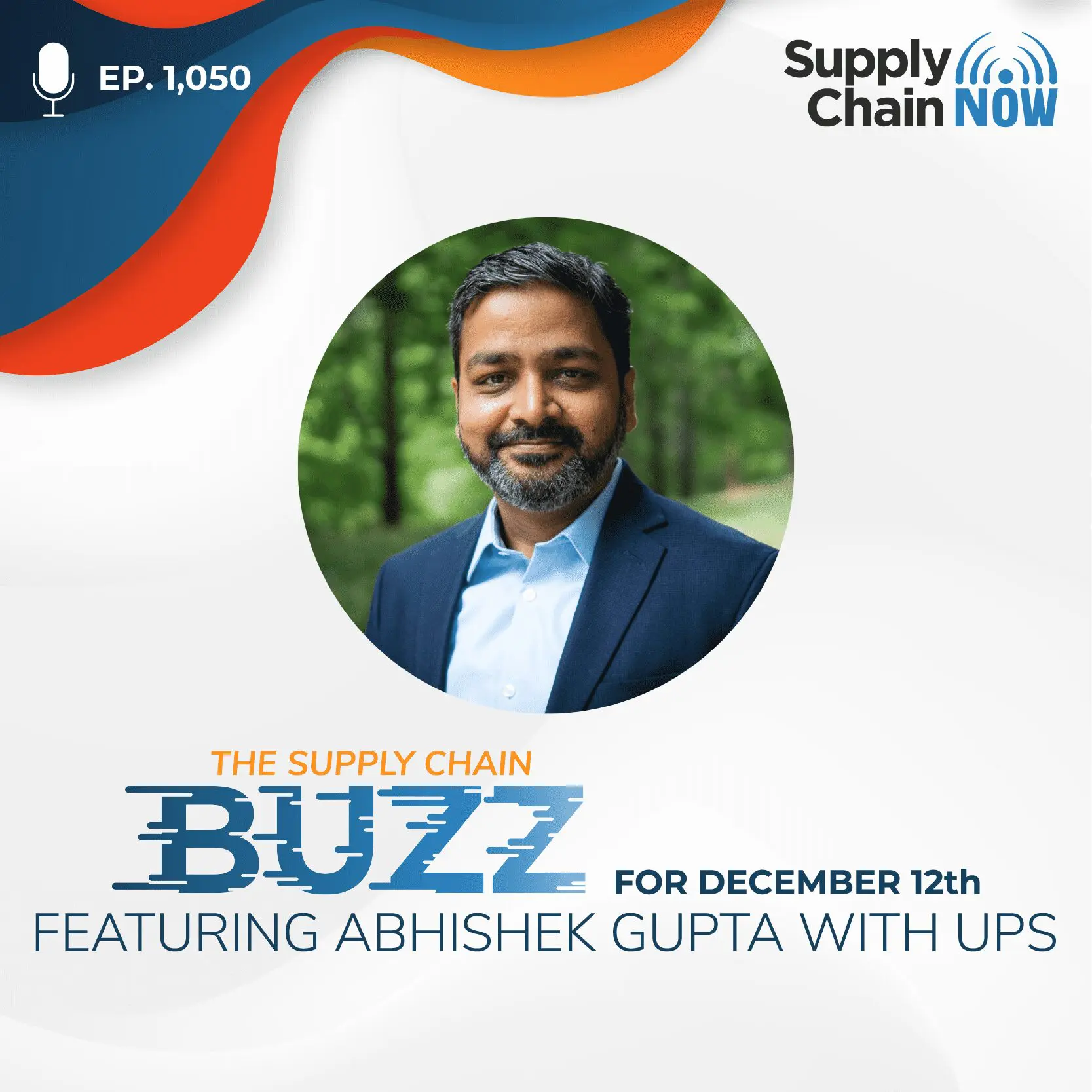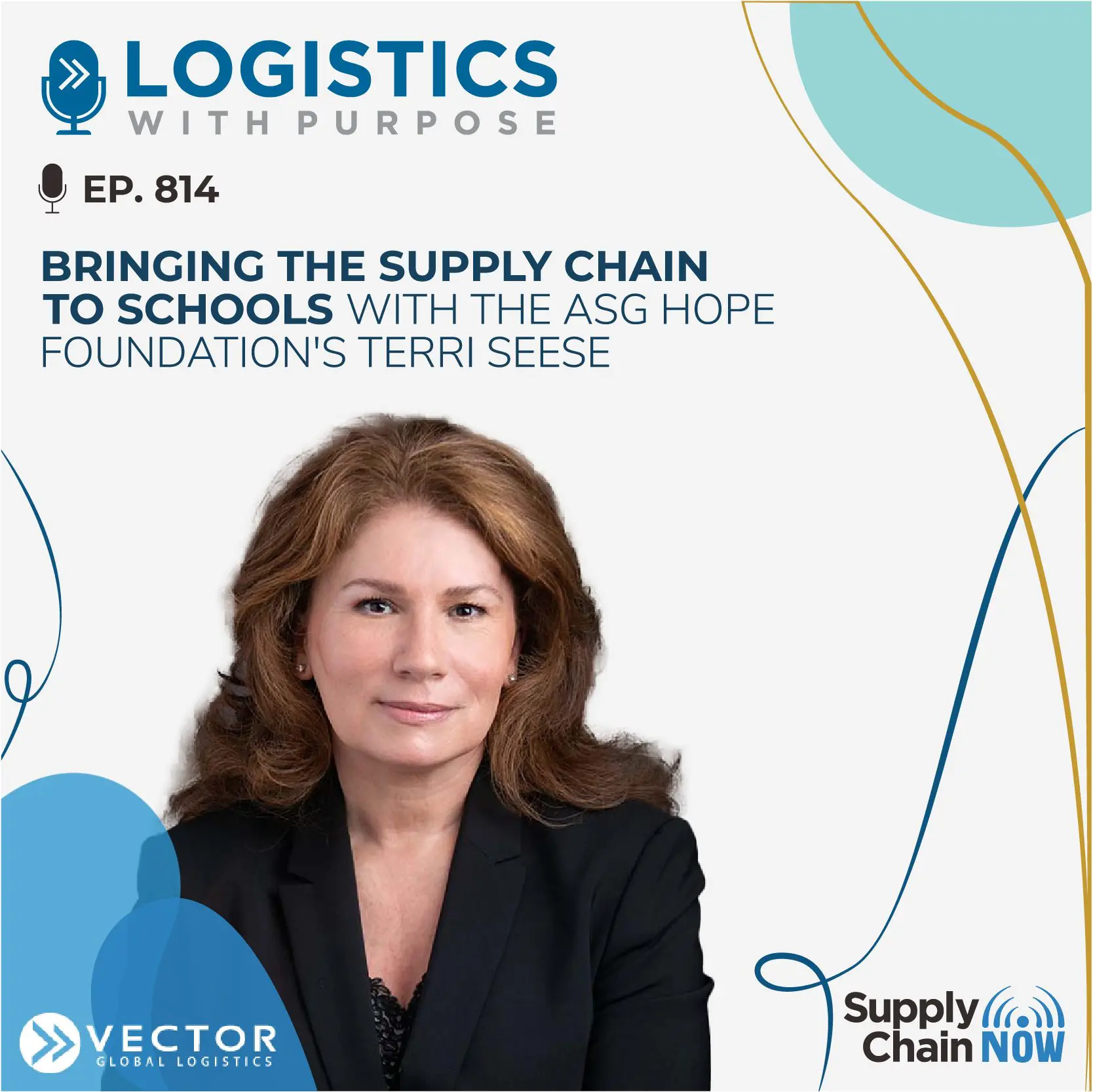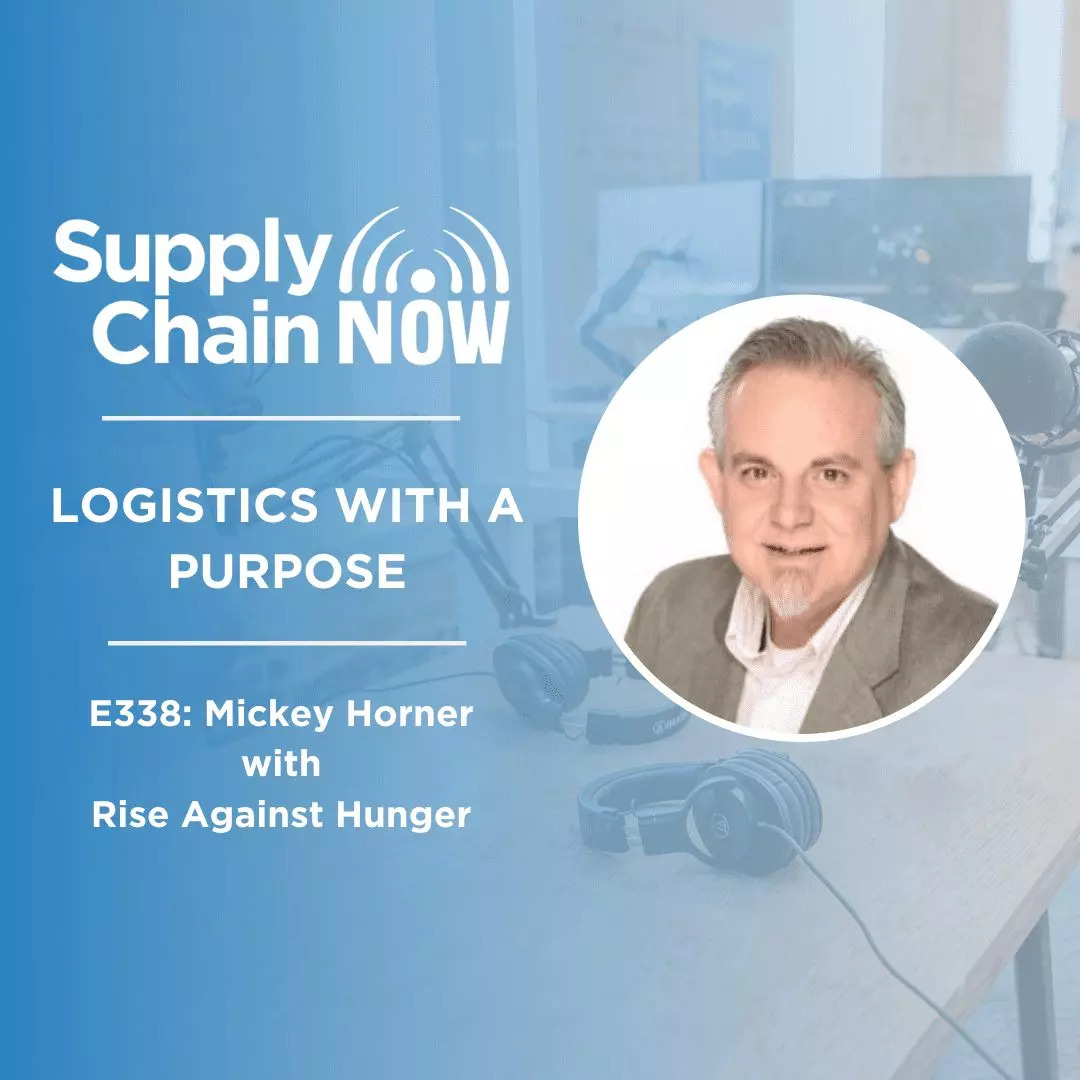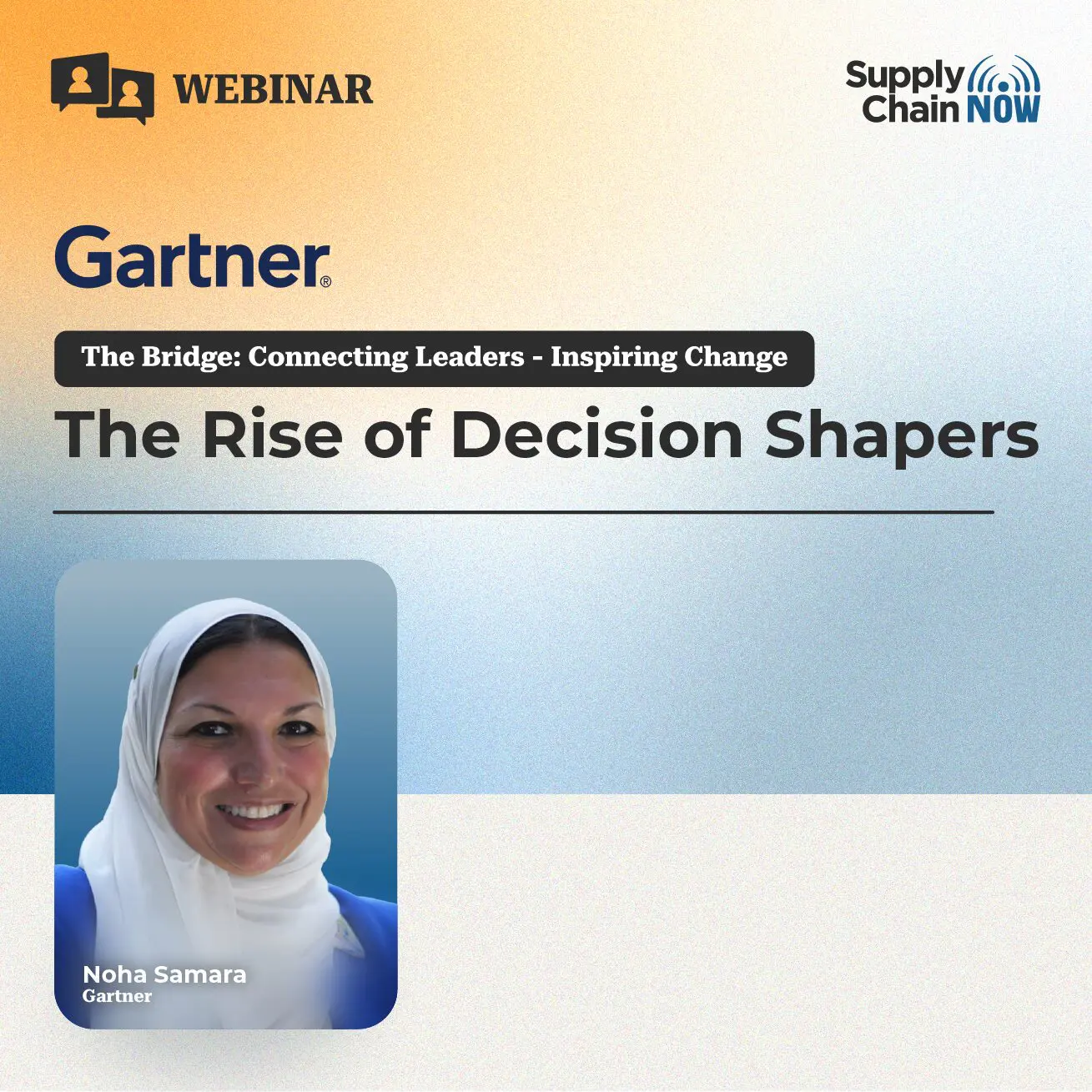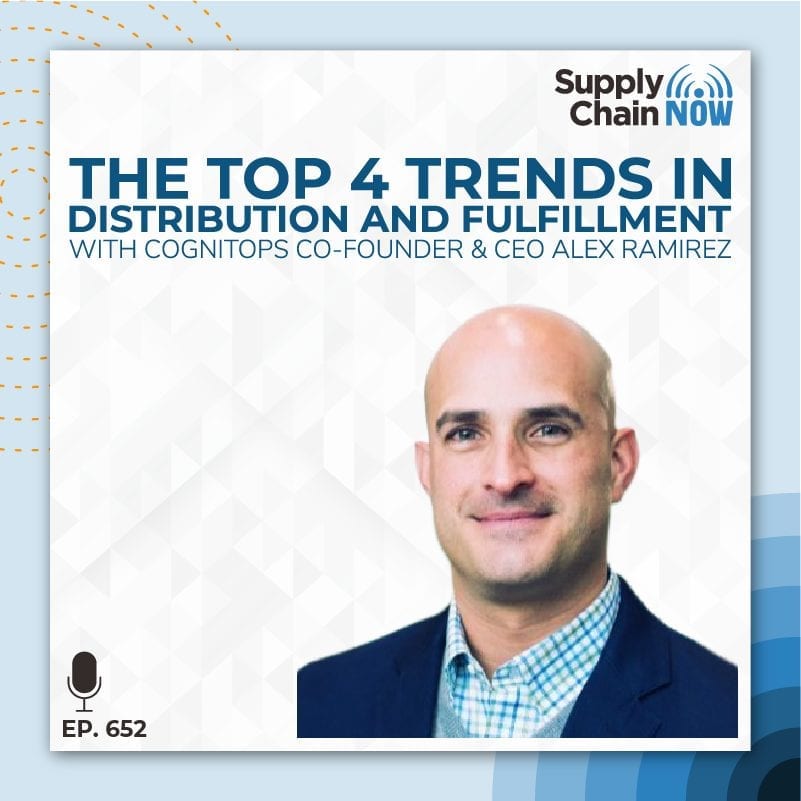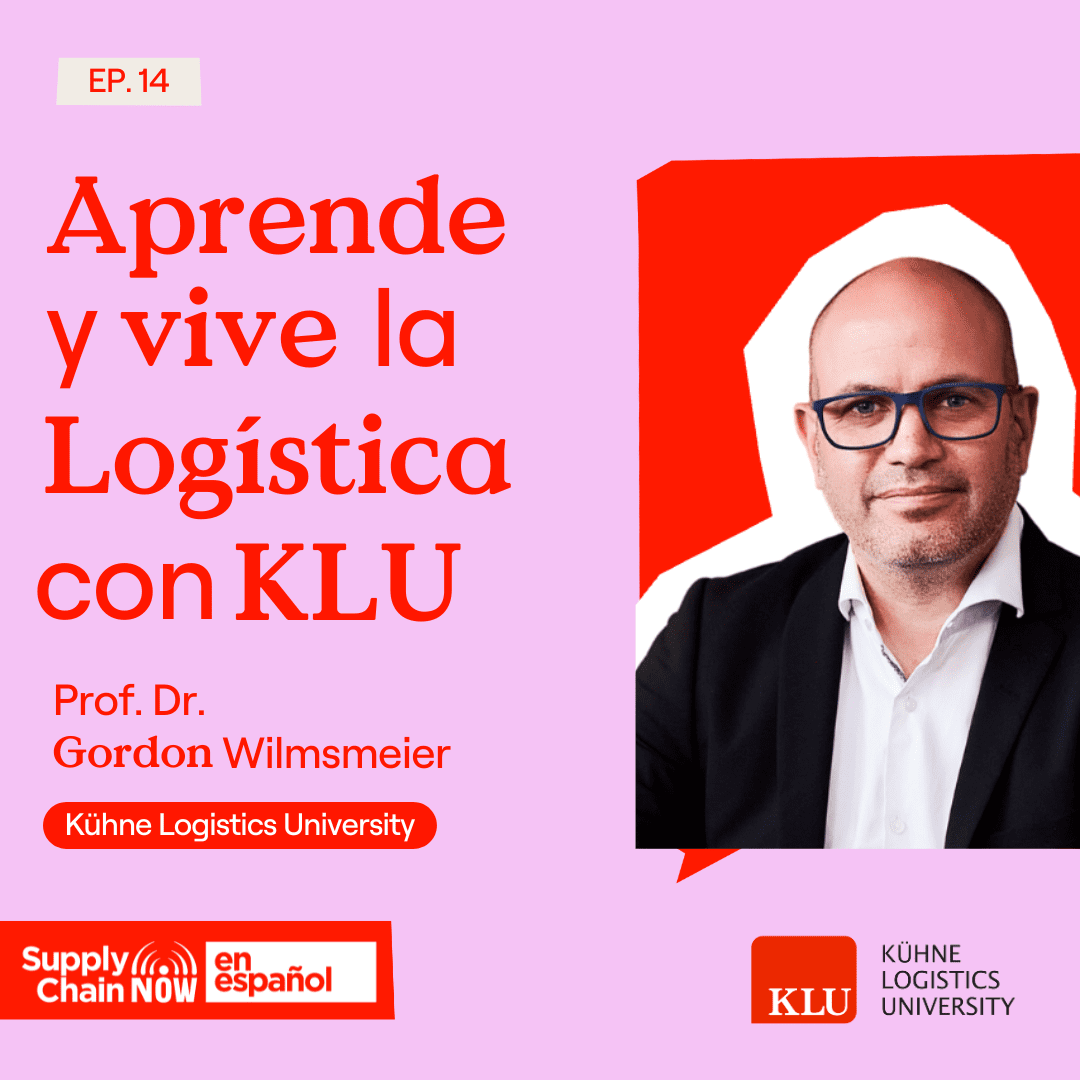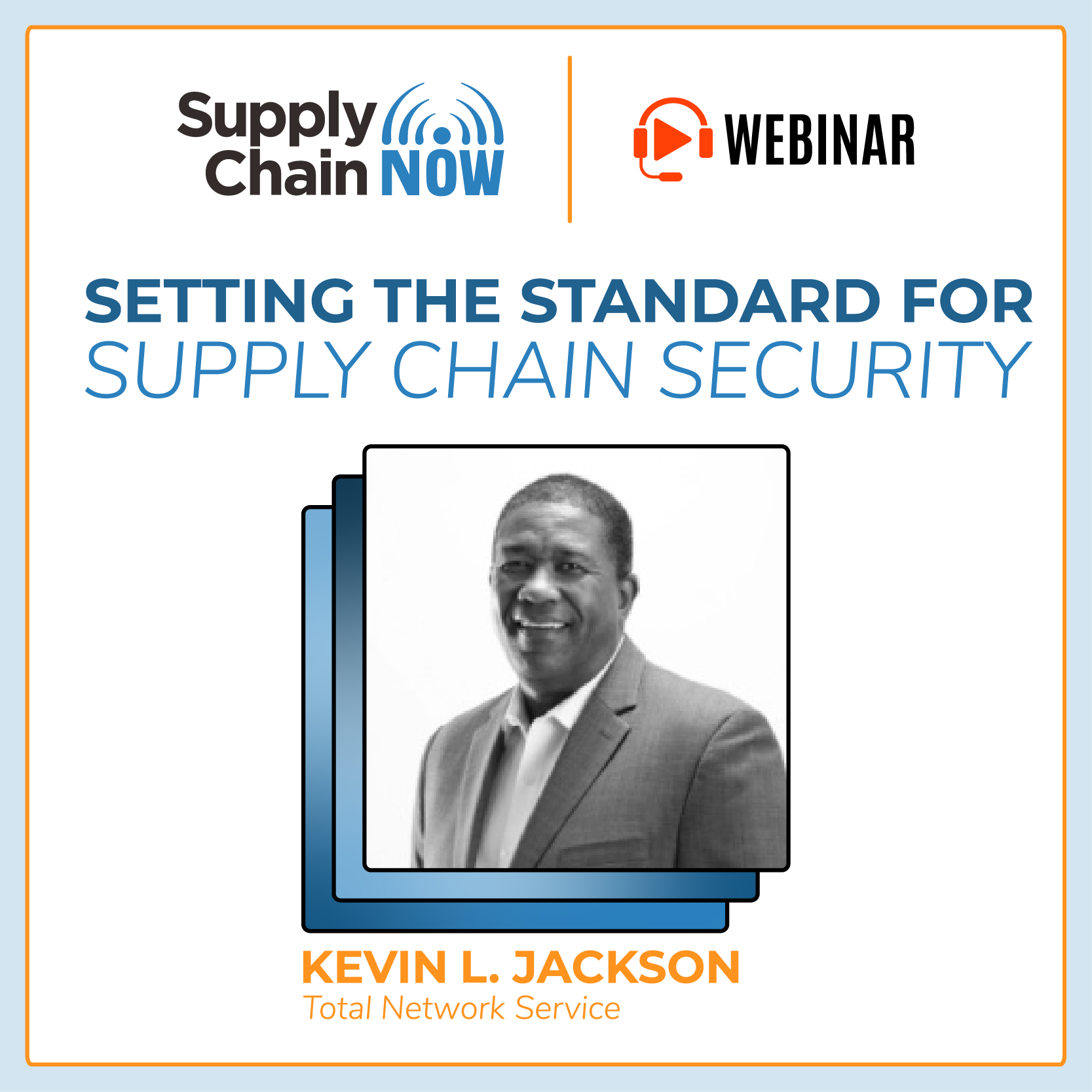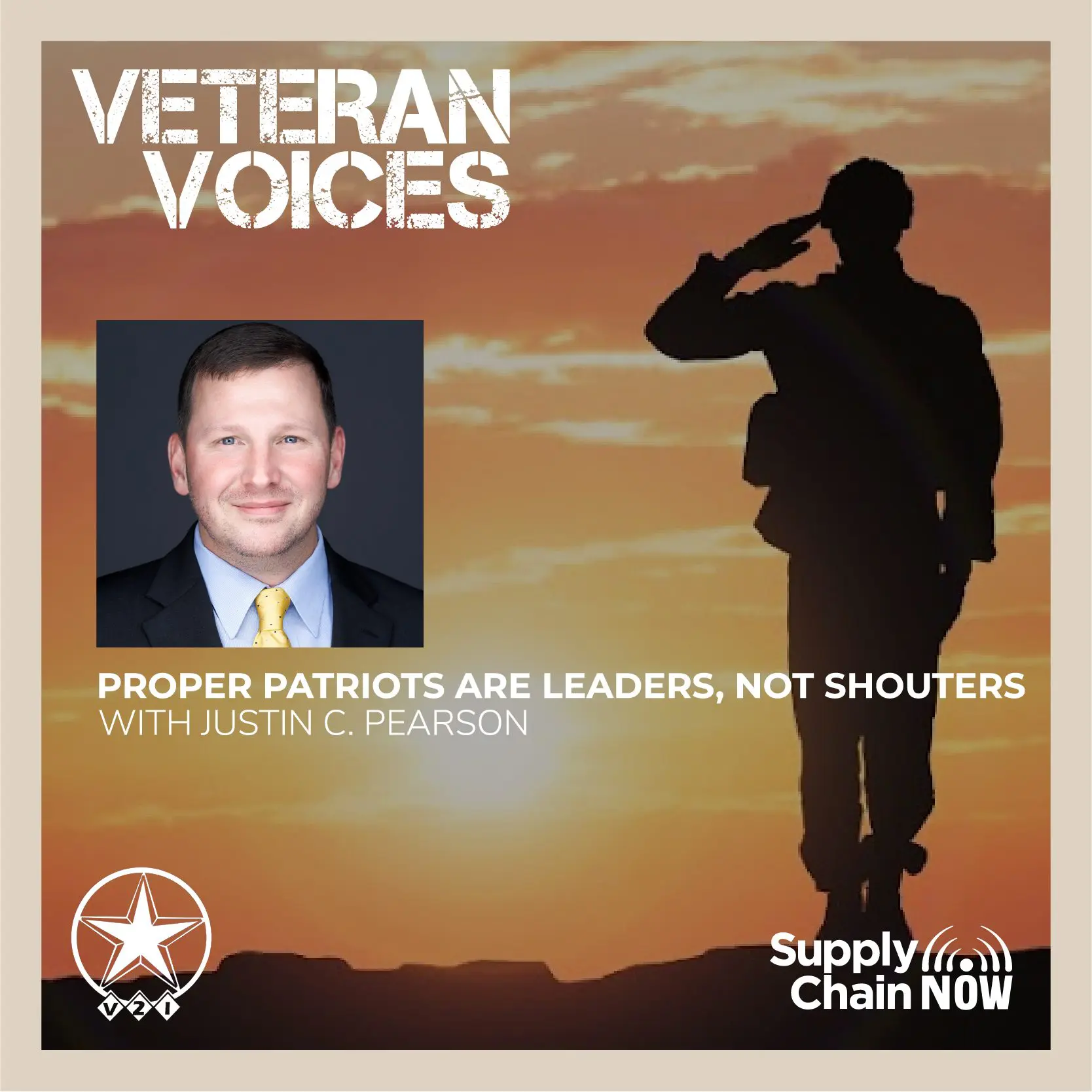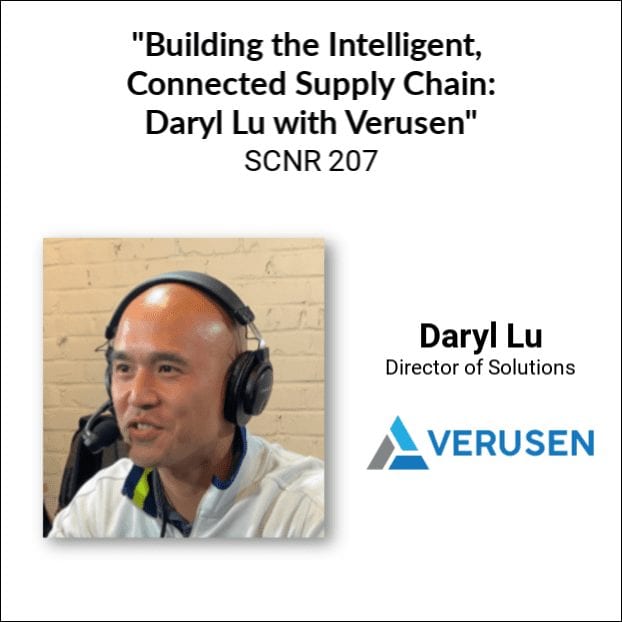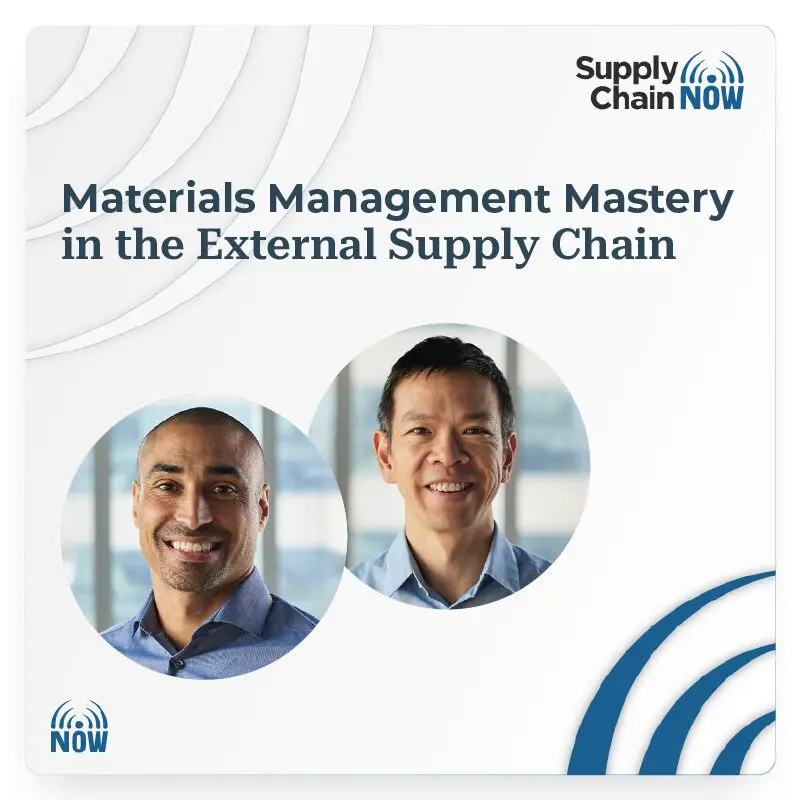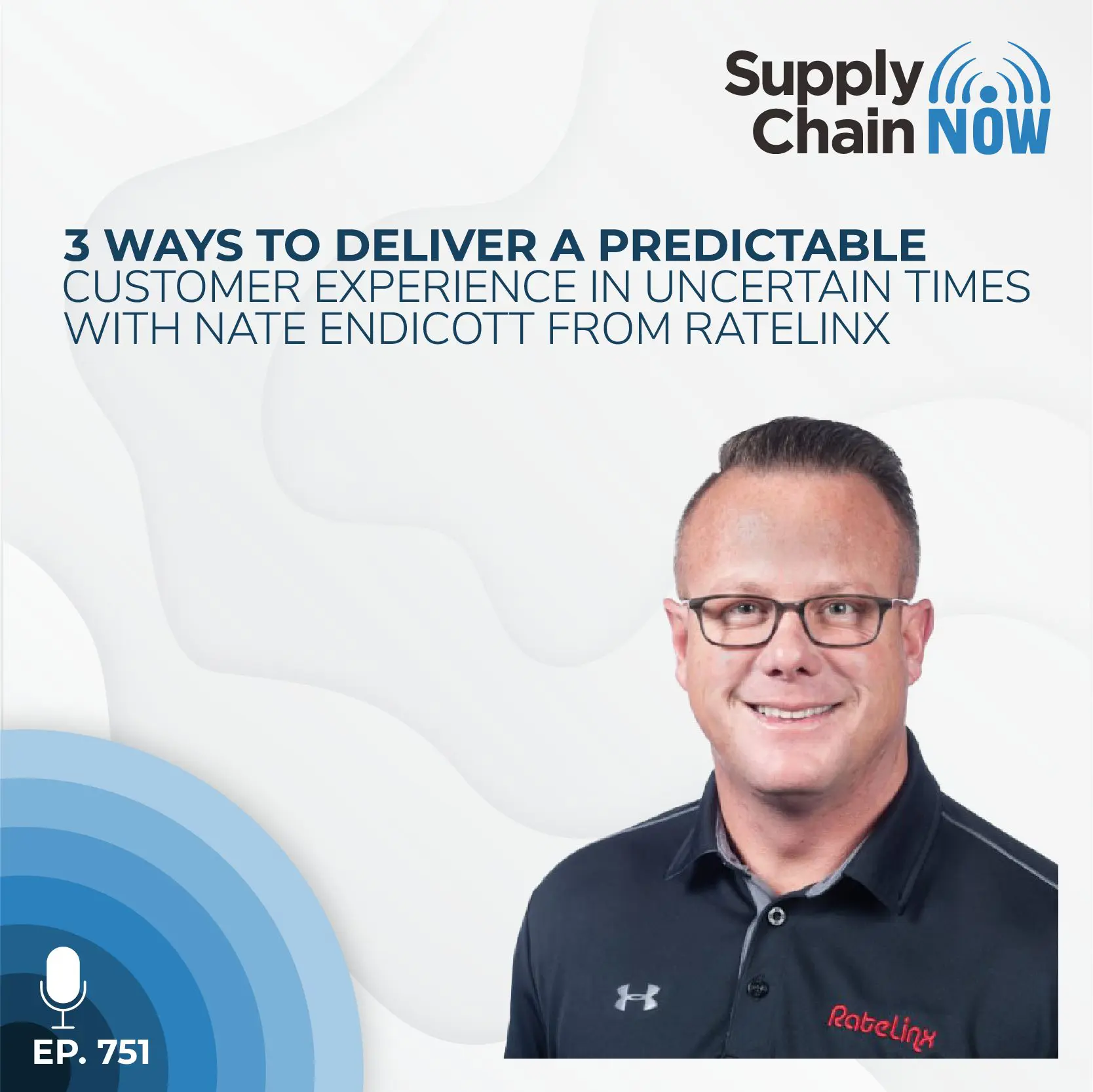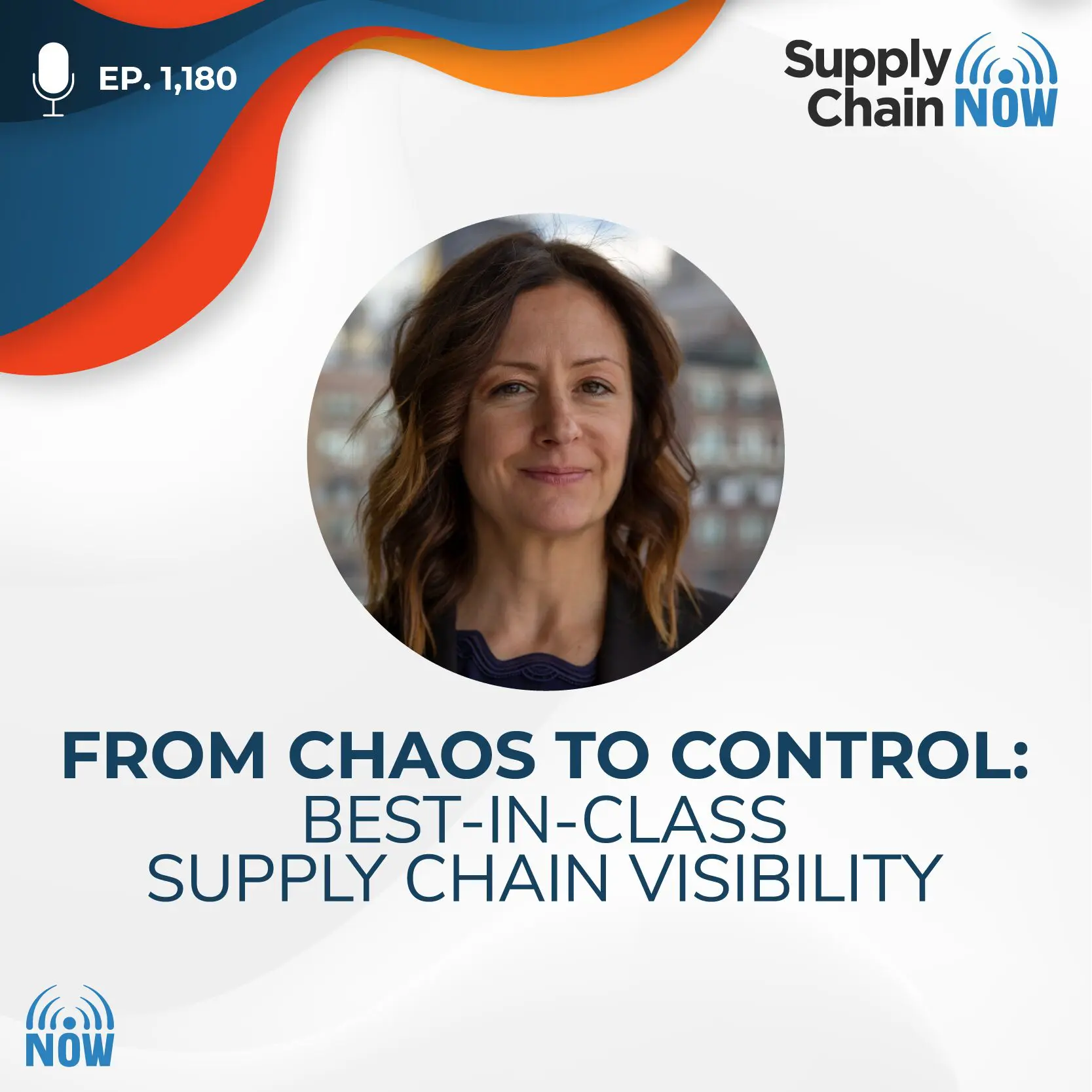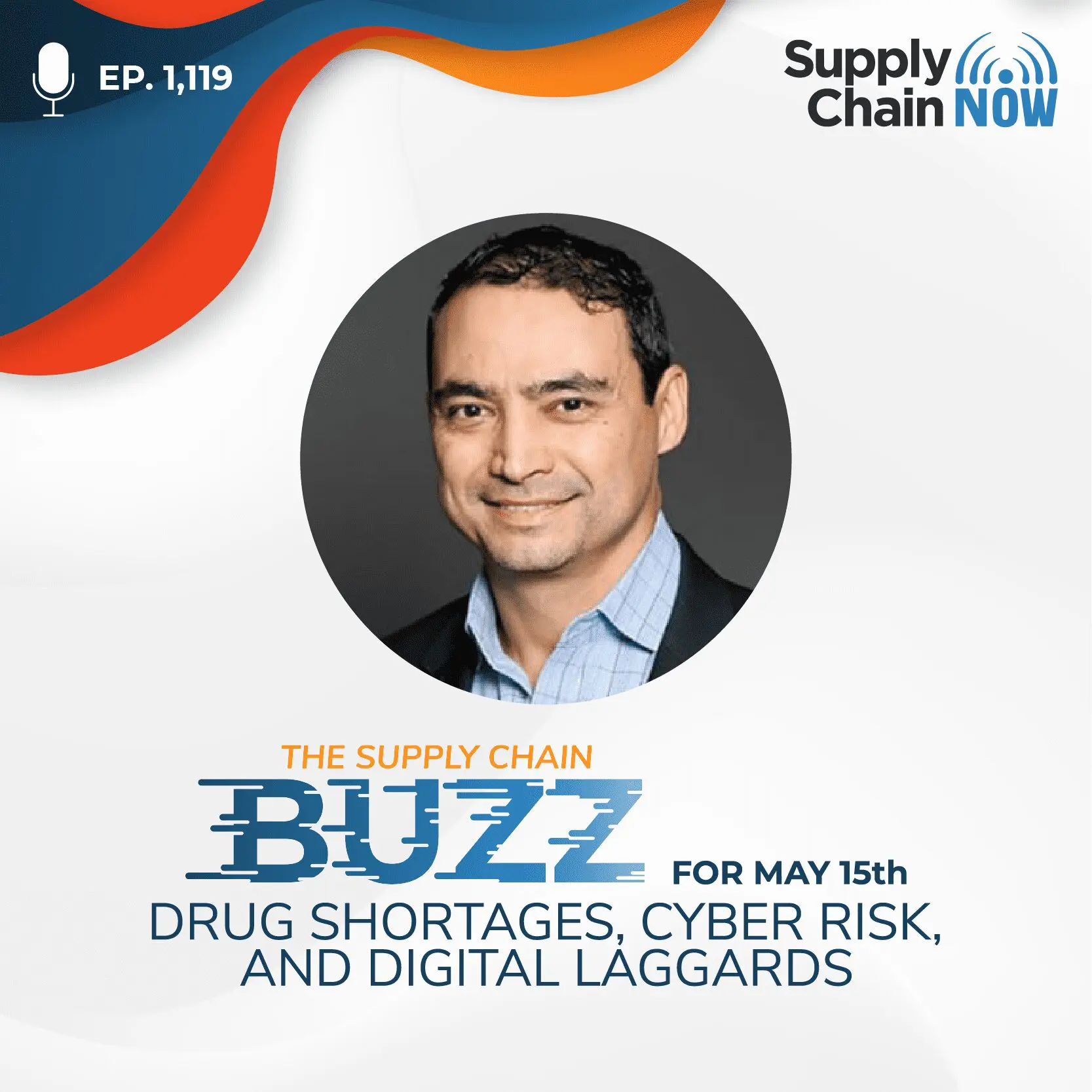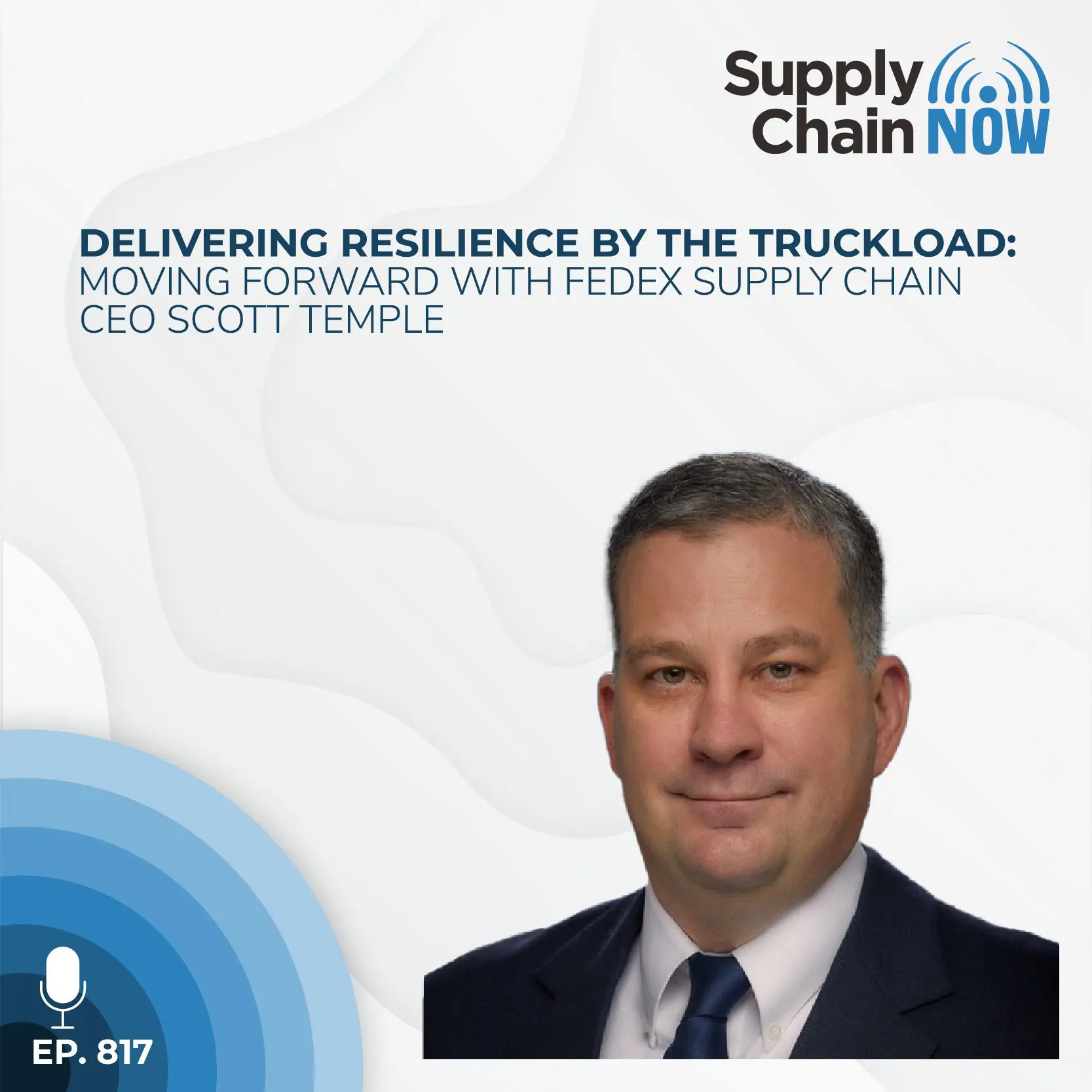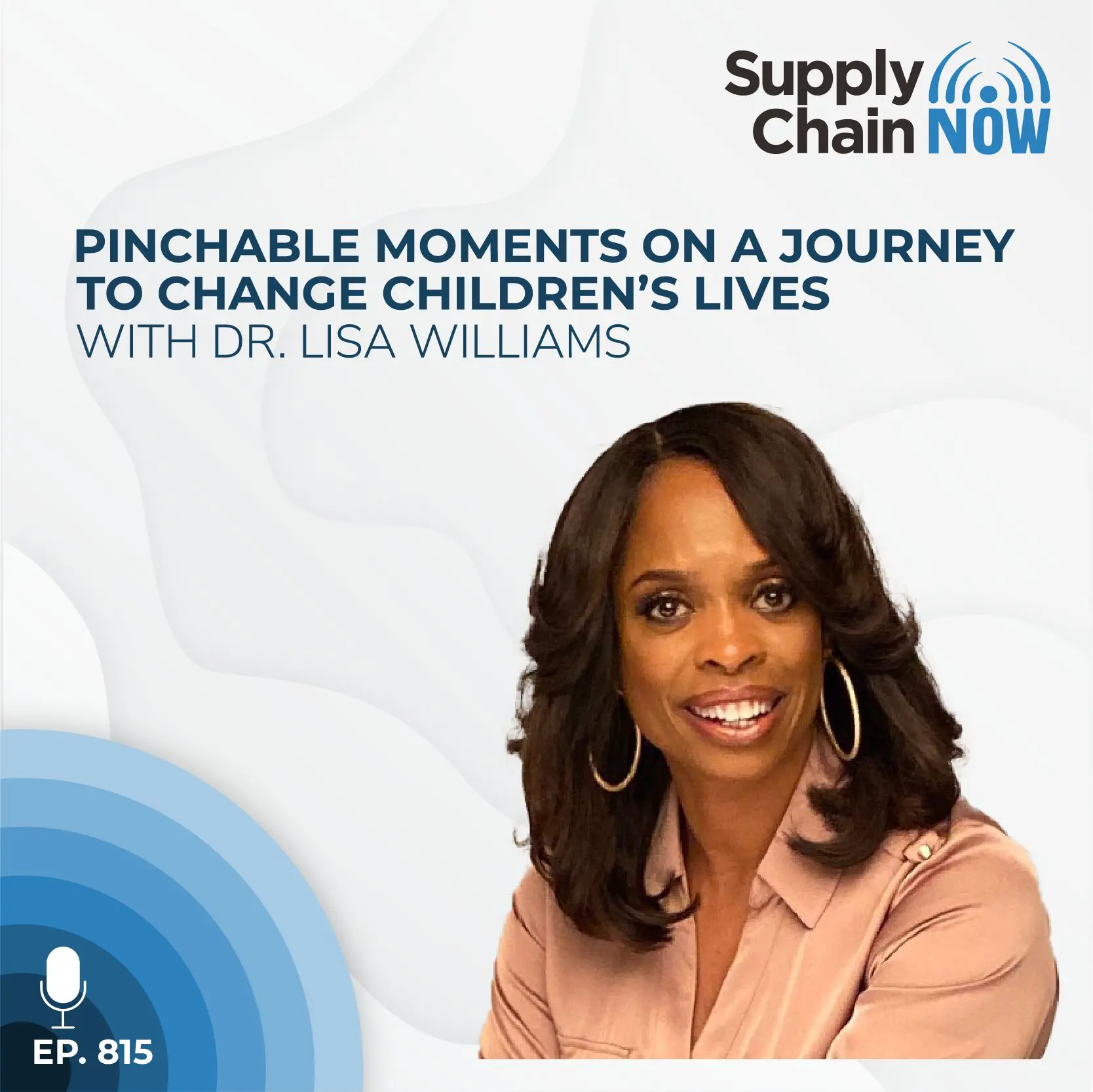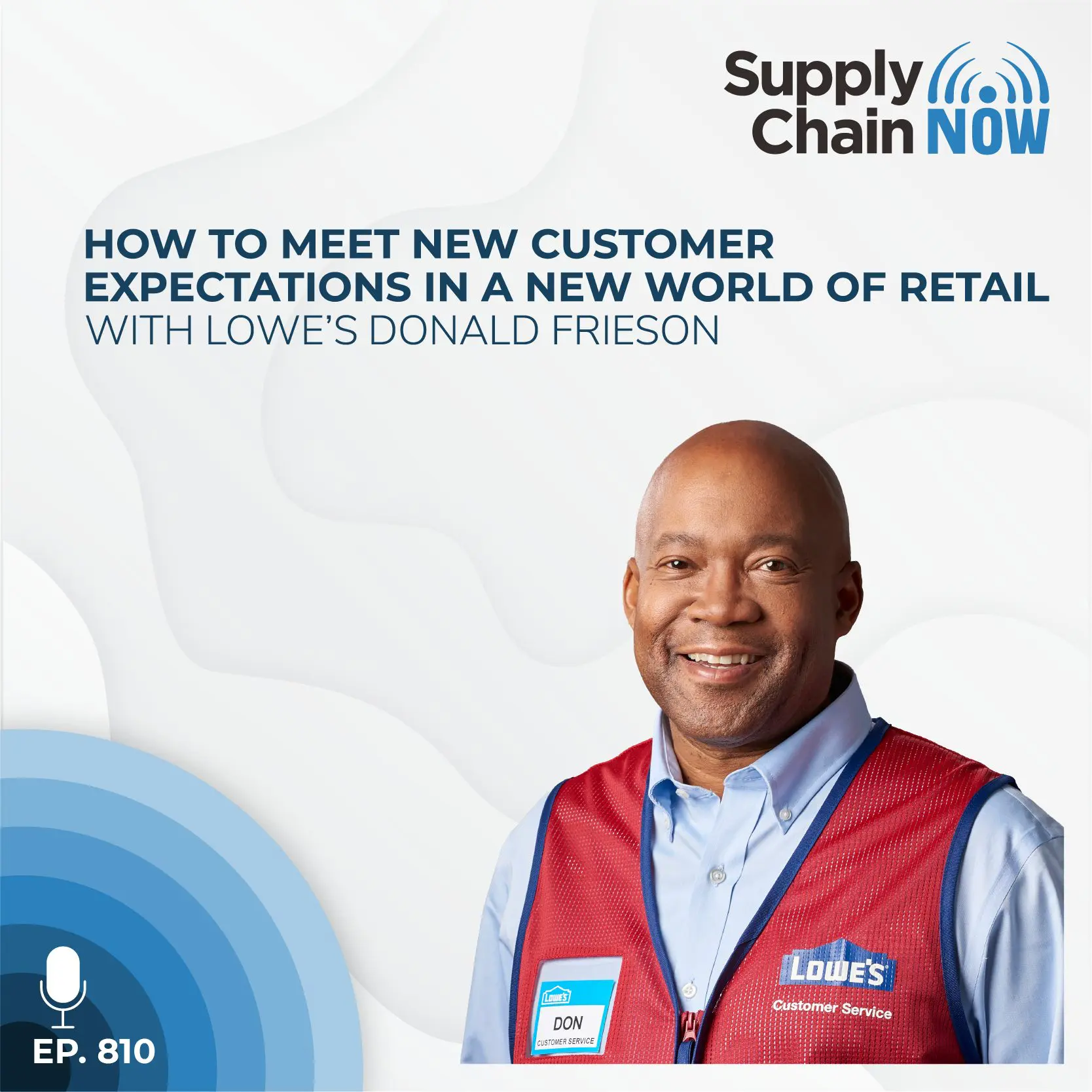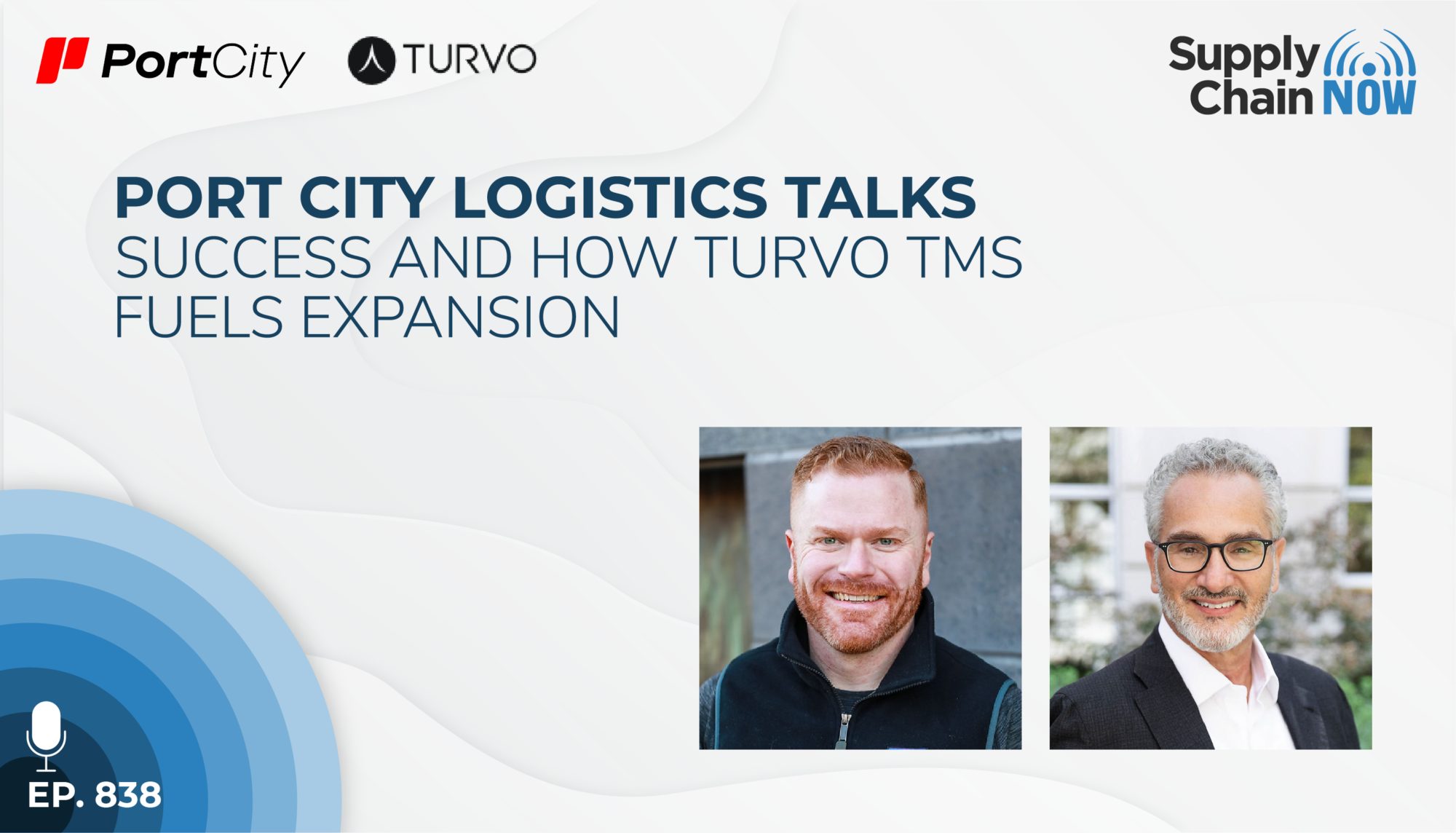
You've got a, an industry that's siloed by nature, whether it's ocean or full truckload or drainage or whatever. And then the tech players have optimized technology around each of those silos. So you've got a siloed market, siloed technology, and, you know, you end up getting what Michael says, people that are not on the same page.
-Luis Pajares, Turvo
Episode Summary
It’s the ultimate supply chain partnership. From 3PL to warehousing and port drayage, Port City Logistics knows how to get goods moving, while Turvo ensures actionable transparency for customers along the route. Now meet two of the minds behind this winning duo, Michael Caney, Chief Growth Officer at Port City Logistics and Luis Pajares, Chief Customer Officer at Turvo. Scott and Greg sat down with them to learn more about how the two companies came together, what truly makes for transparent operations, why dashboards are not enough and more.
Episode Transcript
Intro/Outro (00:03):
Welcome to Supply Chain Now, the voice of global supply chain. Supply Chain Now focuses on the best in the business for our worldwide audience, the people, the technologies, the best practices, and today’s critical issues, the challenges, and opportunities. Stay tuned to hear from those making global business happen right here on Supply Chain Now.
Scott Luton (00:33):
Hey. Good morning. Scott Luton and Greg White with you here on Supply Chain Now. Welcome to today’s livestream. Greg, how are we doing?
Greg White (00:40):
We’re doing great, Scott. It is great to be here, isn’t it?
Scott Luton (00:43):
It is wonderful. What a gorgeous day outside. We’ve got a dynamic story here today, I think, folks are going to get a lot out of. And you’re back from all your world travels.
Greg White (00:52):
Yes.
Scott Luton (00:55):
So, no stories there, clearly. And we may just get an update on the – infamous now – Hilton Head Index. Did you want to wait and share that when our guests arrive or –
Greg White (01:07):
I’m happy to do it now. But it’s interesting that it won’t really be news to our guests because they’re probably providing or constantly monitoring this data. But, yes, so that everyone knows, the Hilton Head Index, the index that assesses the backup at the Port of Savannah, the official global index that assesses the backup at the Port of Savannah. For today, the index is four. There are ships steaming in and out of the Port of Savannah. Just a little shoutout to the Colorado Express steaming at 9.1 knots at 116 degrees on their way out of the port. And then, four ships waiting for their turn to get in there and get offloaded, maybe even by our guest people.
Scott Luton (01:55):
Maybe so. Greg, we’re going to have to send you a videographer down there. We’re going to have to set up, like, a static shot of these vessels coming and going. I love the data you bring to the show.
Scott Luton (02:07):
But speaking of stories and data and information that’s actionable that you got to listen to, today we’re going to be hearing from two companies – Greg referenced them. They’re both on the move. Both are very successfully navigating the current obstacle course that is global supply chain. Greg, remember the good old show Double Dare?
Greg White (02:27):
No.
Scott Luton (02:27):
Double Dare on Nickelodeon. Okay. Well, you’re ruining my setup, man.
Greg White (02:33):
Yes. Yes, Scott. I do remember that.
Scott Luton (02:34):
Everything is a physical challenge it seems like these days in global supply chain. Certainly not [inaudible].
Greg White (02:39):
There’s no question about that.
Scott Luton (02:41):
Yes. Well, today, Greg, we’re going to hear from two companies and two leaders that are making it happen, and doing so very, very well. So, with that said, Greg, with that said, are you ready to welcome in our two guests here?
Greg White (02:56):
I am. I want to know what their take is. Let’s just start with Savannah and then hear about the global state of supply chain.
Scott Luton (03:05):
I love it. And, you know, I love where we’re going to start. We got a story to get to. We got some new innovative best practices and, of course, a partnership we’re going to talk about.
Greg White (03:14):
But first, food.
Scott Luton (03:16):
But first we’re going to start with a really cool – that’s right. Always food here at Supply Chain Now. So, no further ado, I want to bring in our featured guests, Michael Caney, Chief Growth Office with Port City Logistics, and Luis Pajares, Chief Customer Officer with Turvo. Hey. Hey. Luis, Michael, how are we doing?
Michael Caney (03:35):
Hey, guys. How are you?
Luis Pajares (03:36):
Good morning.
Scott Luton (03:38):
It is so good to see you. We had a blast on the pre-show – we’re going to talk about food here in a second – mainly our conversation centered on sneakers. Is that right, Michael and Luis?
Michael Caney (03:50):
Yeah. And a bit of your nostalgia, Scott, which you just kept going with Double Dare. So, I feel like the audience is a little bit nervous missing out on JG Wentworth, Sam Smith, [inaudible].
Greg White (03:55):
Right. Thank, Michael. South of the Border.
Luis Pajares (04:05):
And we have to start with the chat line, everybody’s going to tell us what kind of sneakers Scott’s wearing.
Michael Caney (04:12):
We’ve decided white New Balance. Definitely white New Balance.
Scott Luton (04:16):
Well, you’re so close, Mike. You’re so close. So, folks, if you remembered money day on The Buzz, we had a little challenge with the StreamYard platform, a little challenge with comments that should have been fixed. So, we want to hear from you, weigh in throughout the whole session here today. Luis, I love your direction. Let’s start with your favorite sneaks as a kid or now, you pick.
Luis Pajares (04:36):
Yeah. You know, Stan Smiths, those were the holy grail when I was a kid. If you had Stan Smiths, you were rocking it. And the funny thing about it is that I still have a pair of Stan Smiths and I love my Stan Smiths. So, that was the rocking shoe for me back then. I love playing tennis, if you had the Stans, it was all in.
Greg White (05:01):
That’s true. And they are making a really strong comeback. And by the way, they are great looking shoes. I just happened to dig up a picture of them somewhere and I think they’re perfect. You know how everybody wears tennis shoes with suits now? They wear the leather tennis shoes. Stan Smiths will go with anything.
Luis Pajares (05:23):
And you don’t have to pay hundreds of dollars for them. So, they’re terrific. I recommend them.
Scott Luton (05:30):
All right. And, Michael, I’m going to get your take here in just a second on shoes, of course, since we’ve already opened that and let the genie out of the bottle there. But, folks, I’m getting a little word from our world class production team that the platform still is having issue with LinkedIn comments. So, I see a couple coming in from YouTube. Our team’s going to do what they always do, they’re going to find a workaround. They’ll be bringing those comments in manually. But if you do want to comment and have it be shown, venture over to the YouTube version of the stream and we’ll make that happen. All right. And thank you for the heads up, Amanda. Okay.
Scott Luton (06:03):
Michael, before we talk cookies, because it’s a big international holiday here today, give us your favorite sneaker as a kid or now.
Michael Caney (06:10):
So, I think my current favorite, I’ve been on kind of a Vans kid.
Scott Luton (06:15):
Okay.
Michael Caney (06:15):
We’re talking for the call, like when your kids. Like, I didn’t have a plethora of shoes. You had your play shoes and your school shoes and you had to rotate them. So, I have a habit of just buying any shoe I want now. And I’ve got, like, four pairs of Vans that are on pretty steady rotation.
Scott Luton (06:31):
Man, ask and you shall receive. You left one out though, church shoes with church socks, which are the real slippery thing.
Michael Caney (06:38):
Yeah. There’s that.
Scott Luton (06:40):
When you took those church shoes off, you could do moonwalks down hardwood floors all day long, at least we did in the Luton household. Okay. Let’s see, Tom Zeis is back with us, Luis. Tom was all the rage in the last livestream. He says, “Hello from Denver. Looking forward to hearing Port City story.” We are, too, because Michael and the partnership here has one incredible story. Okay.
Scott Luton (07:03):
But before we get there in welcoming Tom, and Sam, and others, and Jeff Leroy also down there in Savannah, let’s talk food. Because we can’t have a livestream without talking food. So, today, Greg, Michael, and Luis is Tim Tam Day in Australia. I didn’t even know that was a thing, Tim Tam. So, Tim Tam is a popular cream field sandwich biscuit or cookie, that’s clearly the cookie of choice across Australia, really across that region. So, we take that and, of course, it’s Girl Scout cookie season. We just had, in very disciplined manner, passed by a stand last weekend because we are addicted to thin mints around here. And, gosh, you open up the box, it’s gone like that. So, all that aside though, I want to start with you, Michael, what is your go-to cookie and where do you get it?
Michael Caney (07:53):
So, my first question, do you keep your thin mints in the fridge?
Scott Luton (07:56):
No. Never have.
Greg White (07:57):
What? You don’t?
Scott Luton (07:58):
No. Is that a thing?
Michael Caney (08:01):
It’s a must. Yeah. Go now to your kitchen and put them in the fridge. We’ll wait. It’s fine.
Greg White (08:07):
It’s a preservation technique, Scott. It’s really necessary to the longevity of the food.
Scott Luton (08:12):
Well, that’s just my point, they don’t last long. That’s why I can’t buy them because they don’t fit in that New Year’s diet of mine. You know what I mean?
Greg White (08:20):
Try freezing them, it makes it harder to eat more.
Scott Luton (08:24):
Okay. All right. So, clearly we have lots of thin mint fans. Michael, what else beyond thin mints?
Michael Caney (08:29):
I’d love a really good chocolate chip cookie. I’m always kind of on the hunt for a really good chocolate chip cookie. And they are not bought in the cookie aisle. Like, a good bakery.
Scott Luton (08:40):
Home made.
Michael Caney (08:40):
The best one I’ve ever had was from a place in Watersound, and I don’t remember the bakery. But down in Watersound, Florida, man. It was great. I dream about that cookie. It was a good cookie.
Scott Luton (08:50):
Man, you’re making me hungry. I’ll tell you, me and Greg are big fans of chocolate chip cookies. All right. Luis, how about you?
Luis Pajares (08:56):
So, I got to tell you, my wife, Michelle, makes the best chocolate chip cookie in the world. And even better than that, it might be 10:00 at night and I’ll say, “Honey, gosh, you know what? A chocolate chip cookie would be wonderful.” She’ll go make them. And, Michael, next time I see you, I’m going to bring some of my wife’s chocolate chip cookies, and then we’re going to put that test.
Michael Caney (09:15):
I’m already planning it.
Luis Pajares (09:16):
But I got to tell you if I had a go-to dessert, can we audible what it was?
Greg White (09:26):
Yeah, of course.
Luis Pajares (09:27):
Chocolate ice cream with a strawberry pop tart. I would have one of those every night as a kid. And then, I got married and it got cut out. And I could tell you that was my go-to dessert all the time.
Scott Luton (09:41):
That’s a new one for me, Greg.
Greg White (09:43):
The hot strawberry pop tart, Luis? Toasted?
Luis Pajares (09:43):
Hot. Yeah. You put it in the toaster with that chocolate ice cream, but no frosting on the pop tart. Just the non-frosted one. That is still my go-to.
Michael Caney (09:56):
Can you still buy a non-frosted pop tart?
Luis Pajares (09:58):
It’s hard to find. It’s hard to find. Well, I’m not allowed to really eat them anymore, but if I see a box, I’ll take everything they got.
Scott Luton (10:08):
I love it. I love it. We’re going to try that with the kids.
Greg White (10:11):
Michael, [inaudible] to try and dig up some strawberry pop tarts and chocolate ice cream for Luis if he’s going to bring you the best chocolate chip cookies in the world.
Michael Caney (10:19):
Yeah. So, when I come to Dallas, what you’re saying is dessert and coffee is at your house, Luis.
Luis Pajares (10:23):
Absolutely.
Scott Luton (10:24):
Dessert and coffee.
Michael Caney (10:24):
[Inaudible] say, “Where do you want to go to dinner?” I’m going to say, “Well, over by the airport at my friend, Luis’s, house.”
Luis Pajares (10:32):
Finished by that nice cigar.
Scott Luton (10:36):
Yes. All right. Let’s go make this happen this weekend. Really quick, Greg – I promise you, folks, we’ll get into a great story here today in just a minute. But, Greg, you’re the cleanup hitter, talking cookies and dessert, what is it?
Greg White (10:49):
It’s definitely chocolate chip. And not to contradict Luis, but in classical Kansas City and Dallas fashion, we have conflicting views. So, I’m going to say my wife’s are the best chocolate chip cookies. And it’s funny, Luis, because she’ll do the same thing. In fact, she will volunteer without asking. And it became such a tradition in our family that if somebody in the family or close to the family got hurt, they got chocolate chip cookies. I swear my kids would hurt themselves on purpose to get these chocolate chip cookies.
Michael Caney (11:22):
Guys, I’ll have to hang up, I’m texting my wife [inaudible].
Greg White (11:24):
If you will do yourself bodily harm.
Scott Luton (11:27):
All right. So, we got a lot of fact finding to do after all of these claims. We’re going to have get into the true number one. We’ll save that for another time.
Greg White (11:35):
That’s right. We need to have a get together and have a consortium where we do some serious judging here.
Scott Luton (11:42):
Agreed. Due diligence, international consortium, judges, you name it. We got to do it right.
Greg White (11:48):
Scott, don’t let yourself off the hook. Come on.
Scott Luton (11:49):
Okay. All right. So, on that note, freezing thin mint is a thing. We’ll find out that later this week. Warren Chile is saying that Caney is a shoe king. So, we’re learning more about Michael Caney and his shoe collection. Let’s see here, Sam Foley is with us here today, “Looking forward to hearing from Michael and Luis.” I agree with you there, Sam. And, finally, Jeff Leroy. So, Jeff is a supply chain pro and leader. He serves the Savannah chapter, I think, of ASCM. But I think he’s based, Greg, in Hilton Head Island. He’s inviting you to come on down and we’ll watch the containerships roll on in. So, I love that. TSquared, who holds down to fort for us on YouTube, says, “A global supply chain can be best described as largely constipated and in need of various types of enemas.” Goodness gracious. Hey, TSquared, that is quite a visual there.
Greg White (12:45):
Yeah. I did not need that visual.
Michael Caney (12:46):
That’s aggressive
Scott Luton (12:47):
Technological and otherwise. Hey, Tsquared, I hope this finds you well wherever you are. Okay. So, Greg, as we move past shoes and cookies, where are we starting with Michael and Luis?
Greg White (13:00):
I mean, we’ve already talked about two of the most important things in the world, that is food and the Port of Savannah. So, the global Hilton Head Index, I’d love to get maybe a little bit broader perspective. So, what is that you are seeing? We get a lot of input on these shows from folks that see a lot of what’s going on. But considering Turvo, what you guys do in terms of providing the technologies, and, Michael, what you all do in terms of solving the problems with those technologies, I’m interested to hear what you’re seeing these days in global supply chain. So, Michael, you want to go first?
Michael Caney (13:37):
Yeah. Absolutely. So, I don’t want to over talk what’s already been talked about on every show, which is the steamship lines including and running prices up and all those things. So, we mainly deal with the international freight once it gets here. And I would say the majority of what we’re seeing with all the backlogs, and all the delays, whatever, is that, there is a real desire for all the walls to come down.
Michael Caney (14:05):
You know, I’ve been doing this for a while and international was one department and domestic transportation was another department. And I think we’re seeing, “Hey, we all have to kind of talk. We got to stop having separate platforms.” We can’t have the international traffic manager and the domestic traffic manager on two different planets anymore. And they have been. I mean, I’ve got Fortune 100 shippers, like, different spend, different strategy, I got to talk to two different people. And I think the trend is I want a single solution. I think companies are looking to manage their cost more holistically rather than in these kind of siloes.
Scott Luton (14:46):
And more easily. Excellent point, Michael. Luis, what are some things you’re seeing?
Luis Pajares (14:54):
Well, no, I think, the supply chain being siloed has been a condition that has been around for a long time. And I think from a technology standpoint, technology has been built around those existing silo services. So, you’ve got an industry that’s siloed by nature, whether it’s ocean, or full truckload, or drayage, or whatever. And then, the tech players have optimized technology around each of those silos. So, you’ve got a siloed market, siloed technology, and you end up getting what Michael says, people that are not on the same page.
Scott Luton (15:33):
Right. Excellent place to start. Greg, I know you’re itching when we combine supply chain and technology and silos. What are some of the things you heard Michael and Luis share there?
Greg White (15:43):
Well, we hear a lot about these terms, visibility and transparency. And for a lot of different reasons, all of those things are very, very, very important. And I think one of the things you have to recognize is you have to be able to do something with that visibility. And it is, as Michael and Luis are talking about, to break down those silos to be able to collaborate because, if you’re a truckload manager, your job doesn’t end once it goes on an LTL trailer. You still owe something to your company. This is a very simple business supply chain. We do one thing, we deliver. We have all these complications that get in the way or help facilitate lower cost or whatever. But that’s the only thing we do. And anything else that overly complicates that creates a problem and we’ve lived with it for so long. At first, pretty much intentionally kind of the way supply chain came up.
Greg White (16:43):
And then, eventually as supply chain evolved, we did, as both of them said, kind of build technologies and build viewpoints around a specific segment, only LTL, or only truck load, or only ocean, or air, or drayage, or cartage, or whatever. So, now, we’ve seen the impact of that. And I think we knew a couple of dynamics didn’t really exist before. One, we didn’t have the possibility, I suppose, of a real broad view point. And, two, nobody cared because supply chain was those dirty guys and blue shirts that say Lou, who carried boxes and drove trucks. And, now, it’s a much, much more scientific. It’s not a brute force industry now. It is a scientific industry now. And the world has finally started to recognize that after much cajoling from all of us professionals out there.
Scott Luton (17:38):
And a major, major competitive advantage. So, a lot of good stuff there, Michael, Luis, and Greg. Really quick, Tom Zeis says, “Any chocolate is better cold.” I’m learning some new things here. We’re going to try some new things this week. Eddie Herrera says, “Hello from Corona, California.” Good to see you. Jason T. Hopkins, “D.C. resident, Alabama fan,” is tuned in as well. Good to see you, Tom Valentine. Jessica Wash says Savannah has the best food. That is a great, great comment. Arguably, but a great comment. Lori Renzo is tuned in from Pittsburgh. Matt Adler is a big fan of putting chocolate in the freezer. Good afternoon, everybody. Okay.
Scott Luton (18:17):
So, from these initial comments, I want to move into, first, the Port City Logistics story. Michael, we had a great conversation last week as we dove a little deeper to all the cool things you are up to. Certainly, not doing business as usual. So, tell us a few things, what’s the most important aspects of the Port City Logistics story, Michael?
Michael Caney (18:36):
Yeah. I think there’s a couple of things. Most importantly, we’re privately held and we’re a very entrepreneurial business. So, I would say the other thing, the trend we’re seeing is, you know, Greg, you said we do one thing, we deliver, right? And I think shippers, everybody, what they’re really after is two things, “I want my providers to keep their commitments.” Complete whatever you commit to, follow through. And I want it done fast. Like, delays, whatever, we all know that it happens, but keep your commitments, and within your control, do it fast.
Michael Caney (19:08):
So, that’s the interesting thing about Port City is we have a real commitment to deliver, keep our commitments, and go fast. And it was started by an entrepreneur named Billy Robinson – one of my favorite humans on the planet – who was an entrepreneur that just hated his day job. He was a sales guy selling industrial supply and just didn’t like it in the port. You know, he tells the story and says, “I saw the port doing this and figured I needed to get involved in it.” So, he bought a courier business. He had, like, two doors and a couple of pickup trucks.
Scott Luton (19:36):
Really?
Greg White (19:37):
I think we met Billy in Charleston. Is that the Billy Robinson? Didn’t we meet him?
Michael Caney (19:43):
Lots of energy, full of life, one of the nicest guys you ever met, probably
Greg White (19:47):
That sounds very familiar. Did he start it with his brother or was his brother involved at one point? Okay. Okay. I may be thinking of somebody else.
Michael Caney (19:55):
No. But you should come down and meet him.
Greg White (19:57):
I’m going to do that.
Michael Caney (19:58):
He plays a lot of golf now. I work hard so he can [inaudible] and I’m happy [inaudible].
Greg White (20:01):
Definitely going to do it, then.
Scott Luton (20:04):
Clearly, business is good. Business is good. So, very entrepreneurial is one of the things I heard there. Michael, you talked about how that’s kind of permeated the culture, right?
Michael Caney (20:13):
Yeah. So, you know, Port City is going to have three phases, like any startup business, how do you make payroll, how do you get insurance, how do you just say yes to everything. Port City started by going, “We now have a building. We now have overhead. Say yes. I don’t care what the shipment is, say yes.” There’s pictures of when the guys would unload, somebody called and a container of frozen concentrate, like orange juice concentrate, had tipped over. And they pulled it into a warehouse because they just made business, we’ll say yes. And that’s kind of the evolution of Port City. Like, they weren’t warehousing guys. Like, his dad wasn’t in the warehouse business and his Uncle Lou wasn’t wearing the blue shirt, driving the truck [inaudible].
Michael Caney (20:55):
So, that’s not how it started. It was just like, “I don’t want to be a sales guy anymore. I’m going to do something entrepreneurial.” And he built relationships in the city and with the GPA. And so, we figured out how to get it done. So, within Port City, there is no mindset about, “Well, this is just how you always run a distribution.” It just doesn’t exist. Our CEO is a commercial banker before he joined Port City. So, it’s a very entrepreneurial business. People that just love solving customer problems, love the business model, really started out as you get two things, you have storage [inaudible] revenue and real estate and a distribution business. We own a lot of our buildings and develop. We’re very unique in that we actually develop property.
Michael Caney (21:41):
So, a lot of distribution companies, they’re in speculative buildings that have bad yards and they’re built to maximize a footprint, not maximize freight flow. So, we’re unique in that we develop. So, fast forward today, we’ve got three million square feet under management. We’ve got a crew driving up South Carolina right now to open a 220,000 square foot building. And we are a full service drayage, warehousing, and distribution, truckload, and LTL transportation.
Scott Luton (22:13):
All right. So, with that base – and congrats on all the growth – Luis, I want to bring you in. And some of the things that you heard Michael share there, and some of the things that’s like working with a company on the move like that, what else stands out to you about this story, Luis?
Luis Pajares (22:27):
Two things. One is they understand that shippers aren’t looking for the entire service. I think shippers are learning that this fragmented, again, siloed way of doing business and moving freight, it’s not working. And if you think about how terrible COVID has been on a humanitarian basis, what it has done for the supply chain, it has exposed all the flaws and all the traps that are now common use to everybody. So, I think the first point I’m trying to make is that, the shippers are looking for companies like Port City that provide service from A to Z. The second thing is – and Michael started talking about him, but I know him. And I think he’s going to talk about this a whole lot more – about experience. And they think about shippers now realizing that their supply chain does impact customer experience. So, those are the two things that I’ve learned as I’ve gotten to meet the Port City team they’re maniacal about.
Scott Luton (23:38):
And we picked that up earlier and we picked that up in part of the answer there. And, Greg, I’m coming to you in just a second. But whatever it takes, blending digital owned operated assets, partner asset like networks, whatever it is, for a true world class customer experience. And, Michael, we’re going to talk about that in a second. Because as we illustrate some of the work you are doing together that’s enabling that world class service, we got some great examples. And, Greg, I’m going to come to you and hear what you heard Michael and Luis shared.
Scott Luton (24:09):
Really quick, Girdar Ready says, “Supply chain silos and it needs an end-to-end solution.” Excellent point. Something we’re all speaking to. I believe, Dan, going all the way back to food because food is on everybody’s mind, “Chocolate with Belgian [inaudible].” So, beer and chocolate. I love that, Dan. Tim Ingram, he’s teaming it up. He’s back with us here today. He says, “Good morning, guys. It’s been a while.” Tim, hope this finds you well. And then, Tom Valentine, old TV, says, “The supply chain links need to reconnect as one. The problem is there’s no incentive to make it a reality because their profitability is off the charts. No motivation to change.” Okay. A lot of good stuff there. Before we continue on with Michael and Luis, Greg, your comment based on what you heard a little bit about Port City Logistics’s story.
Greg White (24:53):
Yeah. I think it’s interesting that Billy took first a practitioner’s perspective. His frustration with what he was doing with the supply chain and empathy first for those people that are being served by the supply chain and became an expert from a new perspective. And I think there’s more people that need to do that. You know I believe consumer is the beginning and the end of the supply chain. And if we think about it, as they do at Port City, how to serve the shipper’s, the consumer’s purpose, you’ll always win that way.
Greg White (25:27):
And to Luis’s point, I’ve long thought – you know, I’ve been in the supply chain industry more than two decades. I started on the shipper side – we were really good at marketing, and merchandising, and selling product. We were total at doing anything that had to do with logistics. At various companies that I worked with, we had our own trucks, we swung to completely outsource all kinds of variations in between. But the truth is, I think companies are much, much more aware in this day and age of what they’re good at. When you look at some of the new brands that are out there, they don’t even bother to build their own logistics enterprise. They just outsource it to a company, like Port City, and let them handle that. They know they’re terrible at it. And you get great economies of scale by doing it that way. So, I think those are both great awarenesses for these two guys to have.
Scott Luton (26:21):
Agreed. All right. So, Michael, I’m going to give you the last word. I want to get into several examples that really illustrates a partnership and what it’s enabled an organization to do. But as we close kind of the book on the story – and ten minutes doesn’t ever do it justice, especially with the company on the move – what’s one thing that should stick in our listeners crawl about what business is like at Port City Logistics?
Michael Caney (26:44):
Yeah. I think if you’re a shipper, we’re going to get your goods out of the Southeast faster and better than anybody else and you’re going to see everything that’s going on. We’re really transparent. So, we keep our commitments and we’re really transparent. If you’re looking for a place to work, I would say that our executive team and the founders of this company are some of the most genuine and generous people I’ve ever met in my life.
Scott Luton (27:09):
That says a lot [inaudible].
Greg White (27:11):
How are they at golf would you say, Michael?
Michael Caney (27:14):
Well, better than me, which is a very low bar. But they also do enjoy golf.
Greg White (27:22):
I think that’s good. So, they pay if they don’t win. I have a feeling Billy’s working on his game right now.
Michael Caney (27:32):
He is.
Greg White (27:34):
That’s fantastic. I mean, look, I think that one of the things we’re going to see here in fairly short order is we’re going to see the labor situation turn around. And people who are candidates need to be looking for companies like that. They have an outstanding culture. They have a great purpose that have kind of a higher calling.
Michael Caney (27:54):
Yeah. And I think the only other thing I would say, and maybe we’ll get to this a little bit more later, but I think it’s really important that logistic service providers, LSPs – that’s been the fun thing – we’re not just brokers anymore. We’re all brokers, but whatever. LSPs have skin in the game.
Michael Caney (28:12):
Like, look, I came here to build our Asset Lite business. We really wanted to grow that. Everyone knows it’s a good business to have. But you function differently. Like, I mean if you guys want to know what millions of dollars worth of racking looks like, it’s over my shoulder. We have skin in the game. There is a difference in an operating company that is willing to put up four walls, hire truck drivers, which is a different level of risk associated with that. You have a fundamentally different understanding than if you only work in a high-rise building and talk on the phone.
Greg White (28:48):
That’s a big commitment. All of that physical infrastructure is a huge commitment. And with great power comes great responsibility. You’re like the Spiderman of logistics.
Michael Caney (28:59):
All the nostalgia today.
Scott Luton (29:02):
All right. So, if I can butt in just for a second, supply chain super comics and superheroes, I love it. I really want to keep playing that thread out. But really quick, Tim Ingram says, “My perspective on visibility in improving silos within healthcare supply chain, medical supplies, PPE, for example, need a specific priority.” Excellent point, Tim. And Tim is a big healthcare supply chain pro. Sylvia – I love Sylvia’s comment here. We’re going to have to get a little horn with StreamYard. But Sylvia says, “Excellent POV. We now wear our blue collar with pride. And that would be Sylvia instead of Lou there.” So, Sylvia, hope this finds you well. Thanks for connecting by the way with Brendan, which is a coast guardsman. He’s about to retire and looking for a job in supply chain. I really appreciate that, Sylvia.
Scott Luton (29:46):
Okay. So, let’s get back on track. Now, that we’ve kind of gotten a taste and a feel, and, gosh, if you could just put your finger on the screen and feel Michael’s passion that make up the culture there at Port City Logistics. It’s very palpable. Luis, we talked about that last week. Let’s really focus on three aspects of this partnership, because great organizations that are on the move have got to have great business partners and suppliers, especially technology partners. And I think the Turvo-Port City Logistics partnership, obviously it’s fueled growth and success and innovation. And I picked up this quote from Michael last week, “It’s allowed Port City Logistics to say yes, and deliver that world class customer experience.”
Scott Luton (30:28):
So, let’s pull that green curtain back and see what’s behind that. So, starting with Michael, you mentioned earlier in our earlier conversations how you’re able working with Turvo to leverage all three of your business units with the customers. And – get this – it allows your customers to use Turvo with a single pane of glass. Speak more to that.
Michael Caney (30:49):
Yeah. So, you know, when I came here – we kind of talked about it – I said, “You know, the last thing the world needs is just another broker.” And my experience also in being an operator for close to 20 years and being a broker for warehouse companies and contract warehousing managers, is that, they don’t operate transportation businesses very well. Like, something is always sucking the attention, especially in an asset business. That PNL just kind of sucks the life out of everything else, typically.
Michael Caney (31:21):
But what we said at here, you know, our vision was we’re going to build a great end-to-end customer experience. We’re going to be the fastest out of the port. We’re going to reduce the dwell time for customers. We’re going to get it through a building. And we’re going to get it to the middle mile faster than anybody else. So, I started looking for technology to do that. And the gentleman that leads our technology business, I would argue that is probably one of the best in the space. He has built TMS’s, has built software from the ground up. And we selected Turvo. And so, one of the things that we looked at was we wanted a great public API. And we wanted something that we could extend to customers in a fashion that wasn’t just a portal. Like, don’t say that you have customer visibility if you just skin a portal. That’s stupid.
Scott Luton (32:00):
And we’re going to talk about that next because I loved your commentary last time around that.
Michael Caney (32:04):
Yeah. So, basically, that was Turvo. We’ve got disparate systems, just like everybody else. We’ve got tech debt, just like everybody else. Everybody’s lying when they say that they don’t. We’ve got off the shelf stuff, and there’s nothing wrong with that. There’s nothing wrong with owning off the shelf. But what Turvo allows us to do is tie all of those disparities in not a dashboard. It’s actionable. So, we stood up a warehouse, we stood up 500,000 square feet of warehouse space in seven days, for a customer that needed to clear a 1,100 container backlog. And we stood it up. We have their inventory in there. They can see things in Item Master. So, we’re not just punching truckloads through.
Scott Luton (32:48):
So, Michael, really quick, seven days, that seems extremely quick. What would you say is the average time out in industry? I mean, seven days, man, you’re moving mountains.
Michael Caney (32:58):
A long time. Well, again, I think that’s why it’s important you work with a business that understands. When you’re talking about, first, the middle mile, there’s multiple phases. It’s not just getting somebody to pull a box. You have to have a building. You have to have a transit facility. You have to have truckload carrier. All that kind of stuff. You know, for us, when we operate, we’re focused. Like, you’re not going to see me put a building in Long Beach.
Michael Caney (33:19):
We know the Savannah market. So, we knew where subleases were. We knew where we could go figure out space. We took down the last available space in Savannah at that time period, because we knew people. We can execute leases quickly. We’re talking about speed, we don’t have seven attorneys that read leases here. We just don’t. We make a decision and we do it. So, we can say yes. We make real estate commitments quickly. We have our own trucks. So, a combination of all that together, you can say yes and go fast.
Scott Luton (33:50):
All right. So, I want to circle back over to Luis. And we’re going to talk about visibility next, some interesting insights there. But, Luis, talk to us about this single pane of glass. What do you mean by that?
Luis Pajares (34:02):
Yeah. When we started the company back in 2014, it was clear that – again, earlier on, I talked about how technology was optimized around a monolithic function. And, today, look at us, we’re collaborating via this platform here – collaboration didn’t exist in the supply chain. And if you think about supply chain, there isn’t an industry that requires more collaboration to put perspective on it. If you’re a shipper, 70 percent of the people that move your product to your customer don’t work for your company. So, think about 70 percent of those people that you have to organize and bring them together.
Luis Pajares (34:56):
And Turvo started with this idea of how do we help our customers plan, execute, and settle – and this is what makes us special – with this layer of collaboration that allows companies, like Port City, to differentiate their 4PL service, provide a better experience, and grow like wildfire. That’s what we saw and that’s what we’re executing on today.
Scott Luton (35:23):
I love that. Wildfire, hot cakes, those analogies, I love them moving. It’s all about moving and moving fast. Greg, based on what Michael shared and Luis has shared about lightning fast collaboration, what do you hear there?
Greg White (35:40):
Yeah. I think that we said it a little bit earlier, something more than visibility is required. Visibility is great but it’s not enough. And I think what Turvo and Port City are doing is they’re creating actionable insights and recommendations. To Michael’s point, a dashboard is just a report. It just tells you how fast you’re going or what gear you’re in. It doesn’t help you make a decision necessarily there. And portals are even less so, that’s just static data that somebody posts up there for you to look at. With the real time impact of real APIs, these live real time interconnectors between systems, it allows you to make decisions to choose how you want to see the data, to interpret that data, and then take action. And that’s what increases the speed.
Scott Luton (36:38):
Right. Well, that, and the fact there’s not an army of attorneys, as Michael said. And we love attorneys around here. But speed, speed, speed.
Michael Caney (36:45):
[Inaudible].
Scott Luton (36:48):
Really quick. Vajid has a great comment – and, again, folks streaming our platforms got a little tech glitch. We’re not able to pull in comments like we typically do. But y’all keep them coming, we’re going to refactor those into the conversation. Vajid says, “Putting all effort into building an excellent customer journey will always pay off.” And if there’s anything I’m taking away from Michael and what the culture is at Port City Logistics, it’s like, “Mr./Ms. Customer, whatever you want to get done, we’re going to do it, we’re going to do it fast.”
Scott Luton (37:15):
All right. Let’s talk about visibility. This is going to be my favorite par of this conversation. So, Michael, let’s dispel that tired old lip service definition of visibility. What is non-blue dot visibility at Port City Logistics?
Michael Caney (37:31):
Look, I’m going to just say this, we’re not 100 percent there, where we want to be. I mean, Luis and I talk a couple of times like, “I need it to be able to do this. We need to be able to do this.” But when we talk about visibility, what carrier did I use? What did it cost? Where’s your style? Where’s your inventory? When did it get here? When did it leave? When a customer logs into [inaudible] tenant, their instance, whatever, we want them to know everything that’s going on with their shipment. We want them to be able to collaborate. We want them to be able to message us in the platform.
Michael Caney (38:02):
Now, look, it’s really important, I think, for anybody that’s trying to go down that visibility path to understand that it takes a team. Turvo is not a magic bullet. It’s like you turn Turvo on and everything works. And I’ve got crack guys that are working through, you know, ASNs and EDI this. I mean, we’ve got more initialisms and acronyms around here that I have to keep up with. And so, it takes work to get the data together. I mean, we had a customer accidentally build a shipment that we covered the other day. Because you got to train people. It’s not like it’s not safe. They don’t know what they’re doing. They’ll mess something up when they go in there. But it’s great.
Michael Caney (38:40):
So, if I can, I’ll tell a story. We just did a 4PL. We weren’t a 4PL when I got here. But I had a customer call and say, “I got a problem. We’re going to market with a new product. The manufacturer was going to do the fulfillment. I don’t know that that’s going to work. I need space somewhere.” “Where’s the manufacturer? Let me draw a circle. What’s a good distribution point?” I know a guy. I have a friend that’s a CEO that runs another warehousing company. I said, “Hey, man. I need 100,000 feet. Do you have it?” So, we put a solution together in another state where we don’t have an operator. My team put all the requirements together, built all the technology requirements, did the whole thing. We got on a conference call every morning with the customer, the provider, and my team. And it’s all in Turvo. They can see all the inbound from the manufacturer. When we suck the inventory in from the third party warehouse into Turvo, they know where everything is. It’s a complete transparent relationship. I think we put that solution together in, like, three or four weeks.
Scott Luton (39:40):
Love it. Living and breathing solution, as you put it. And it’s not just that blue dot visibility. Luis, I want you to weigh in on what Michael shared there. And then, Greg, I’m coming around to get your one only take. Luis, what would you hear Michael say?
Luis Pajares (39:57):
Yeah. I mean, visibility is the symptom. The blue dot is the symptom. The root cause is, again, your data on every segment of every load is in different places, in different systems, whether they’re ERP or TMS or WMS. All that data is fragmented. And, again, if your approach is you architect the ability to collaborate – plan, execute, settle, collaborate – all your data is in one place so it becomes easy.
Luis Pajares (40:29):
The other point is, I know when Michael and I have talked, he says, “Hey. I went to go visit a prospect. And I showed them how we would support their supply chain. And I showed them Turvo. And it was like the light came on.” And it has to be intuitive. It’s got to be really simple for your customers and your carriers to work with you. Because that’s the complexity, you got to get that out of the system.
Scott Luton (41:01):
Greg, I love this embedded element of the relationship I’m hearing that Luis share. And, gosh, can you imagine, getting presented or pitched by Michael and Luis? That is like a one-two punch. We can do whatever you want us to do. Greg, your take?
Greg White (41:17):
Well, I mean, I think they’re doing a great job of leveraging technology to get to that yes, and get there quickly. But I think one of the points that really jumped out at me is what Michael said earlier, and that is, it takes commitment on the side of whoever’s implementing technology. You can’t just plug it in, “This is the technology paradox.” People think they plug in a new technology and all their problems are solved. A new technology does what you want done faster, more effectively, with greater precision. But you have to know what you want done. And you have to come to that conclusion.
Greg White (41:55):
And that’s where I think this collaboration comes into play is because they can help them define what their goals ought to be, not what their actions ought to be, and then work backwards into the actions that reach those goals. And when companies take that perspective of communicating their goals, rather than communicating the how, communicating the what, the outcome they desire, they are a lot, lot more successful and a lot more quickly. And that’s exactly what Luis and Michael are talking about right here.
Scott Luton (42:25):
Well said, Greg. And, you know, it’s not transactional. It is a living and breathing that embedded, and maybe there’s a better word, but that’s what comes to my mind. You know, whatever it takes are kind of attached at the hip. And as Michael said, there is no such thing as a finish line in just by anything these days. So, it’s that living and breathing element based on what the needs of the business are. I love that. I think that’s where some of the best relationships and partnerships are and where they live.
Scott Luton (42:50):
All right. We got to keep going because, for the sake of time, I want to get to this third element, and then we’re going to get into a look ahead. So, I think, Greg, you referenced on the frontend, it is a war for talent. And that phrase was used prior to the pandemic and it has only gotten more challenging. So, Michael, if you could, last week in our pre-show conversation, I wrote down and circled three times when you said Turvo is easy to work with. What does that mean for hiring?
Michael Caney (43:20):
I mean, literally, it’s easy to train people. They have a great knowledge center. Well, somebody will send off in Microsoft teams like, “Hey, do you know how to -” and I’ll go to the Turvo Knowledge Center and, “Let me Google that for you.” And so, it really is easy. It really is easy. It’s easy to train people. We figure out where everything is. The thing about Turvo is it’s not a load board. I have to tell people this that call me and go, “Hey, we’re looking at Turvo.” “Okay. Well, don’t log in looking for your load board with six colors on it.” The intuitive thing about Turvo is it puts the work in front of you that needs to be done. So, you don’t go in and build some stupid pick list and organize your loads. Turvo does that for you. You put your business rules in and it puts the work in front.
Michael Caney (44:03):
The other thing I’ll say too is, technical talent likes working on Turvo. So, if you’re an operator and you’re still running AS400, no developer wants to work on that. They don’t want to work on old tech.
Greg White (44:17):
Most of them aren’t even still alive.
Michael Caney (44:21):
So, when you have an aging tech stack – like, every company’s a technology company, right? It doesn’t matter. You have to be – developers don’t want to work on your stuff. They want to work in modern web applications. And so, we have old stuff, but we have Turvo, too, and Web Hooks. And, again, I’m getting into all these initialisms that I don’t understand. But they like working on it.
Scott Luton (44:44):
Me and you both.
Michael Caney (44:45):
Yeah. But they like working on it. They enjoy the experience of working with an in Turvo, because they can produce a result. They’re not just propping up a dinosaur.
Scott Luton (44:56):
Right. Right. All right. So, it becomes an advantage in that war for talent. Really quick, I want to share some of these comments. We got some great comments. And, Luis, I’m going to come back to you because I want to hear what other folks you’re working with, what some of their feedback has been along these lines. Peter Stangland – Greg, good old friend, Peter Stangland – says, “Great topic. Interesting experts. Supply Chain Now, another interesting topic could be an update on port congestions in the U.S.A .and the driver shortage.” Peter, excellent point. We talk about that a lot. We look forward to reconnecting with you soon.
Scott Luton (45:25):
Tom Valentine says, “Great POV. Data drives decisions.” And we all know how fast Michael and the team is driving. You can’t drive a Ferrari at the speed it’s built for without great data. Let’s see, Sylvia Judy – get this – says, “Greg White’s ‘portals are just static data’ spot on.” She says, Greg, “The agility of information that makes the difference.” Excellent point, Sylvia. We got to have Sylvia back on.
Greg White (45:52):
Sylvia is very precise. Yes, I really appreciate that feedback. Thank you. And her jams and jellies.
Scott Luton (46:02):
That’s right. Michael, we got to hook your team up, because Sylvia is based in Charleston. She is the Eastern Seaboard Queen of Jams and Jellies. We’ll have to make that connection. Okay. Luis, we were talking about the impact on hiring, as Michael said, technical talent likes working on Turvo. What else are you seeing out there? How are you seeing other organizations benefit perhaps from the same thing?
Luis Pajares (46:30):
I think you have to double click on being able to recruit world class talent. And if you’re working on green screens, it’s going to be difficult to do. I’m going to tie it back to when Michael and I first met, it was in July, I think, Michael. And we talked about having to go live in September. I mean, that’s pretty different than what this industry has ever seen being able to stand up an entire technology stack transportation management system and do it in six weeks. The important point that I want to make there is that, if your business is not able to be nimble and adapt to your customer’s need, and your technology is a drag that every time you see an opportunity in your business, and it’s going to take you six months or a year to adapt, you’ve got the wrong technology. And I think that point is, is that, as an operator, you’ve got to not only be able to be nimble, but you have to be evergreen. And that really is going to help in the quality of the people that you hire. And, again, it goes back to that experience that you’re going to be able to give your customer and be able to say yes.
Scott Luton (47:48):
So, not only – I’ll add – you have the wrong technology, but you’re not going to get the right people. And you’re going to certainly be missing business opportunities along the way. So, Luis, great commentary there. Really quick, Tim Ingram says, “Information is okay. But if you can’t make decisions from it, it’s just eye candy.” Excellent point.
Scott Luton (48:09):
So, Greg, it’s Throwback Wednesday. That’s not a thing, but we’re going to make it a thing. We got the Rock ‘n’ Roll Express here. They’re the Intercontinental tag team champions, Michael and Luis. And, Michael, you know what I’m talking about, Ricky Gibson and Robert Morton I think is the right names. Greg, talk to us – you got to be a wrestling fan, I guess, to get that one – of what you’re hearing here.
Michael Caney (48:33):
I think you reached pretty far back there.
Greg White (48:36):
That was pretty far back.
Michael Caney (48:39):
These are like Road Warriors, Legion of Doom.
Scott Luton (48:41):
Oh, that’s a good. Road Warrior Animal and Hawk, right?
Michael Caney (48:45):
Yeah. Like, I could have gone with you, but I have no clue who you’re talking about.
Scott Luton (48:48):
Rock ‘n’ Roll Express. Really? Man, y’all are blowing my mind. We’re going to have talk wrestling on a later show. You know, this is the second time we’ve had Turvo on with someone they’re working with, but common threads are the same, you know, it’s a very practical partnership focused on the things that matter. But what’s your take here, Greg?
Greg White (49:11):
I think they aimed squarely at the problem. Look, I’ve been a shipper. I remember in 1992, when I looked at green screens in 1992, and I thought, “What in the hell is this? A James Bond movie?” I had no idea that people still used green screens 30 years ago. And, here, we are talking about it still. I think that’s utterly ridiculous. I worked with a company that operated on AS400s and I had forgotten that. Literally, I don’t know who still writes RPG anymore. And I remember those scary terms.
Greg White (49:49):
But aside from the modernity of the technology, I think one of the things that both Luis and Michael had touched on here is that, simplicity is what matters. I remember the feeling when I saw green screens and when I saw newer technologies, I didn’t care how it worked. I just cared that it worked. And that it worked meant that I didn’t have to do a lot. Computers did their computer things. I was able to do my human things. And we got the result that we wanted.
Greg White (50:20):
And having been a technologist, as many of our audience know, I can tell you that it is incredibly complex to create a solution that is so sophisticated, that it seems simple to the user. And that’s a critical aspect of what we’re doing because these generations that will come in and replace the 3.6 million baby boomers who’ve left the workforce in the last year, they don’t care how it works. They just care that it works. And it works means it essentially does it for you. And once you’ve got a technology set up like that, and once you’ve got it built to a certain level of sophistication, it can do that. And we’re talking about things like predictive or prescriptive analytics here. We’re talking about the solution, telling you what needs to be done, not just showing you what went wrong. And I think that’s an important aspect of how companies in this industry, people in this industry, need to change their perspective to expect that. I mean, that is what’s giving Michael and the folks at Port City Logistics such a huge advantage, is, they can expect it and they can get it.
Scott Luton (51:29):
All right. We got a bunch of comments coming in. A bunch of comments from Pastor Greg White, First Church of Supply Chain. You’re baptizing folks here. Let’s see, Sam says – and I can’t remember if Michael or if Luis said this – “We’re not propping up a dinosaur.” That’s such a powerful thing. And especially if you’re hiring talent, doesn’t want to prop up a dinosaur is one of y’all talked about. Tom Valentine says you’re all awesome. Sylvia says, “Cobalt and Pascal – oh, my God – I’m dying here.”
Greg White (51:58):
Oh, my gosh. Yeah.
Scott Luton (52:00):
Michael Avery says, “If the people can’t/won’t use it, then it’s not worth the investment.” Excellent point, Michael. Hope this finds you well. Okay. We’ve gotten into so much. We’re almost out of time. We’ll have to have y’all back on. Really quick, Michael, if you know what Reader’s Digest is, in a nutshell, really quick, what’s next for the partnership? Because I want to get to a resource we got. And then, folks, I want to make sure they know how to connect with both of y’all. So, what’s next?
Michael Caney (52:29):
Yeah. I mean, I think the next things for us is, we’re going to just continue to iterate, Luis alluded to we’re young in our relationship and we’ve done a lot in a really short amount of time. We still have a long way to go. I mean, I think for us, everything is about collaboration. We’ve got a team that builds a lot of our own automation around Turvo, because we can. And Turvo allows us to be able to do that. So, we have proprietary business rules and things that happen that have nothing to do with Turvo. But everything for us is about using Turvo to build external visibility and transparency for our customers and give them a good experience.
Scott Luton (53:05):
Love that. And I was referencing the six weeks, six weeks, at the frontend of y’all’s relationship. Especially considering the scope, three million square feet, holy cow, moving mountains for sure. Okay. So, with the comments not working, and, again, we’re going to get on the horn of StreamYard. We’re going to figure that out. But we love all the comments that have come in. A lot of good ones here. Amanda, Clay, you name it, Chantel, Catherine, thanks for what you’re doing on the production side. We’ve got a great resource that we want to drop in there, the Logistics Success Playbook from our friends at Turvo. We want to make it really easy for folks to access that with one click and then be able to download that. It’ll reiterate some of the things we’re talking about here today. And it should be a helpful resource as we’re all navigating this obstacle course that is global supply chain here in 2022. Okay. So, let’s make sure, Greg, folks know how to connect with Michael and Luis, the Rock ‘n’ Roll Express of global supply chain. I’m sticking with it. I’m sticking with it.
Greg White (54:05):
We’re all going to Wikipedia after this, I guarantee it.
Scott Luton (54:08):
All right. Fair enough, Michael, how can folks connect with you and the organization that’s on the move, Port City Logistics?
Michael Caney (54:16):
Yeah. portcitylogistics.com. I give all of my hot sports opinions on freight technology and operating companies on Twitter, follow me there. And LinkedIn as always.
Scott Luton (54:27):
It’s just that easy. And the URL, because my hunch is y’all doing a little bit of hiring. What’s the URL for folks to learn more about the organization?
Michael Caney (54:34):
portcitylogistics.com.
Scott Luton (54:36):
It’s just that easy. I mean, we’re going to make it one click away in the show notes, folks. And definitely, I’m telling y’all, what you see here is the real deal. The behind the scenes conversations are the same way, you want to be around people that tell it like it is and be frank. And, hey, I do all these shows with no one sitting beside me, so it changes your perspective on life, for sure. So, make sure you connect with Michael and follow him there.
Scott Luton (54:58):
All right. Luis, I tell you, you’ve got to have one of the best jobs in the world because you’ve got something that your customers are singing praises of and helps fuel their growth. And it’s very competitive times. So, how can folks connect?
Luis Pajares (55:12):
I’m very, very fortunate. I never forget that. Yes. Please, visit Turvo at www.turvo.com. And to connect with me, I’m on LinkedIn. And I really appreciate, you know, the time that we’ve had today.
Scott Luton (55:27):
I have too. Greg, I enjoyed the pre-show conversation. I got a lot out of that. I got a lot out of what they shared here today. We got a great job, too, don’t we, Greg?
Greg White (55:38):
We sure do. I mean, we get to meet people like this all the time, right? People who are really solving problems in supply chain, I got to tell you, can empathize with where Luis is. I always felt really good as a technology provider. I could sleep well at night knowing that we were delivering for our clients. Luis, I’m sure sleeps well at night because, obviously, they’ve helped Port City rapidly expand and build this business and serve the customers that they are so dedicated to. Thanks.
Luis Pajares (56:08):
Greg, I don’t sleep well at night because I’m usually worried about my customers.
Greg White (56:15):
As I was saying that, I was thinking, “What if he is somebody who doesn’t sleep well?”
Scott Luton (56:19):
Well, let’s flip it. Let’s flip it.
Greg White (56:22):
But you could sleep well if you would.
Scott Luton (56:23):
Luis’s customers sleep well at night.
Greg White (56:27):
There you go.
Scott Luton (56:28):
And Michael’s customers, I bet, sleep well at night. So, you heard the real deal here today.
Greg White (56:33):
I’m sleeping well at night.
Scott Luton (56:35):
That’s right. All right. We’ve been chatting with Michael Caney, Chief Growth Office with Port City Logistics, and Luis Pajares, Chief Customer Officer with Turvo. Big thanks. We hope to have y’all both back with us again soon. Thank you, Michael. Thank you, Luis.
Greg White (56:49):
Thanks.
Luis Pajares (00:56:51):
Thank you. Thank you, Michael.
Scott Luton (56:53):
So, that’s the first time I think the swoosh was fooled there. Greg, I think the swoosh was fooled. It waited on one last word from Luis.
Greg White (56:59):
Yeah. I think we waited for thanks for coming, Michael.
Scott Luton (57:02):
Absolutely. It’s important. The swoosh is a conscientious, very kind and considerate mechanism, isn’t it, Greg?
Greg White (57:09):
Well, it’s AI. It knows when somebody has something important to say, actual intelligence.
Scott Luton (57:15):
All right. So, folks, working our way through that conversation. And, again, I love it whether we’re, you know, on a livestream or a podcast or webinar, whatever live, where the world can see us. And it’s the same conversation that we have outside of that, where it is just breaking bread with folks or pre-show, you name it, it’s the same deal. You spoke a little bit to it, that transparency, that level of authenticity, that is what’s fueling companies that are doing supply chain different in this day and age. Would you agree?
Greg White (57:52):
Yeah. I mean, it’s really easy to be authentic when you’re actually delivering results. I mean, having been in technology – I feel like I’ve said way too many times in this episode – for a long time, it was easy to tell when someone was comfortable that they were going to deliver the result that they promised and when they weren’t. And we were always a hundred percent comfortable. You can tell that Luis – even though he doesn’t sleep well, but I’m sure somebody can help him with that – that he is 100 percent comfortable that he’s delivering. And, obviously, Michael is. I mean, he gave us so many stories about the great things that they are doing for their shippers in such a short period of time. It’s unbelievable, 500,000 square feet in seven days. I mean, it’s incredible.
Scott Luton (58:40):
It’s remarkable. So, folks, you’re going to want to connect with Michael and Luis do that and also their organizations, portcitylogistics.com and turvo.com. Excellent episode, Greg. Man, we had a dynamic panel here today. Three folks that tell us it like it is. Greg, it’s always a pleasure to have these conversations with you. Big thanks again to our production team, Amanda, and Chantel, and Catherine, and Clay. And, folks, thanks for all the comments. We’re going to be on the horn with StreamYard, we’re going to get that worked out so we’re back to normal. But I really appreciate all the comments that came in from the sky boxes. Greg, we’ll look forward to having Michael and Luis back with us.
Scott Luton (59:15):
But, hey, if folks take anything away from this conversation, Scott Luton challenging all of y’all, do good, give forward, be the change that’s needed. And on that note, we’ll see next time right back here on Supply Chain Now. Thanks everybody.
Greg White (59:26):
Thanks.
Intro/Outro (59:29):
Thanks for being a part of our Supply Chain Now community. Check out all of our programming at supplychainnow.com, and make sure you subscribe to Supply Chain Now anywhere you listen to podcasts. And follow us on Facebook, LinkedIn, Twitter, and Instagram. See you next time on Supply Chain Now.
Featured Guests

Luis Pajares is the Chief Customer Officer at Turvo. He ensures a deep understanding of each customer’s business to best serve them with appropriate solutions that fuel success. Luis previously served as the Chief Revenue Officer at Turvo, where he led the growing sales and marketing teams. Luis Pajares has a proven track record of success with over 30 years in software and Saas solutions in both large publicly traded and pre-IPO companies. He served as Group Vice President for Oracle Communications and was a senior member of the management team responsible for strategy and execution. Prior to Oracle, Luis led the transition of Tekelec, a telecommunications company, from a publicly-traded company into private equity, later culminated by the Oracle acquisition. Additionally, Luis led worldwide sales for Airvana, a provider of mobile IP solutions, where he helped take the company public in 2008. From 1999 to 2003, Luis was Sr. Vice President at Inet Technology, a provider of business and operations management solutions, where he managed the Company’s sales, consulting, customer service, product line management and marketing organizations. Luis helped the company grow sales to over 500+ customers on six continents. Prior to Inet, Luis held a general manager role overseeing product development, finance, and customer functions at Alcatel where he responsible for Alcatel’s business in Japan, Taiwan, Korea, and Canada. He came to Alcatel as part of the DSC acquisition where he was Vice President of Mobile Networks. Luis began his career in communications at Texas Instruments where he was responsible for negotiating defense contracts. He then moved to NEC America where he held various sales and management positions responsible for selling to enterprise, education, and service provider customers. Luis holds a B.A. in Economics from the University of Florida and an MBA from the University of Dallas. Luis lives in Dallas, Texas. Connect with Luis on LinkedIn.
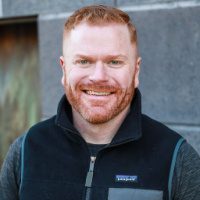
Michael Caney is the Chief Growth Officer at Port City Logistics in Savannah, GA where he is responsible for driving the Company’s growth initiatives, focusing on geographic expansion and overall growth strategy. In this role, he oversees the Technology, Customer Experience, Business Development, Integrated Capacity Solutions, and Freight Operations teams. Michael is passionate about bringing together freight, freight technology, and logistics leaders to grow the 3PL market. Michael began working in the Supply Chain & Logistics industry in 2004 and has held several executive and senior leadership roles where he has been able to achieve success in revenue and profit growth. Connect with Michael on LinkedIn.
